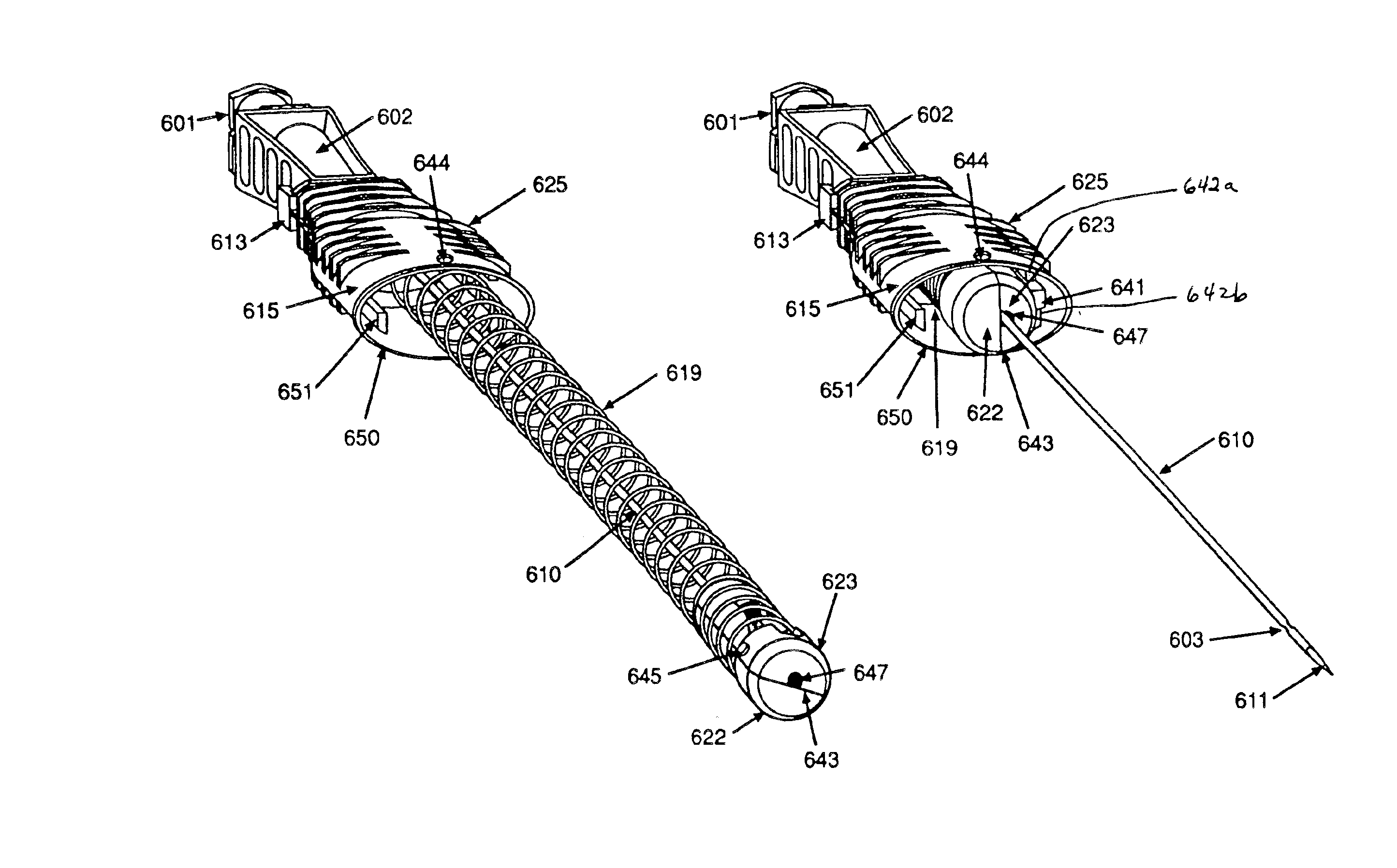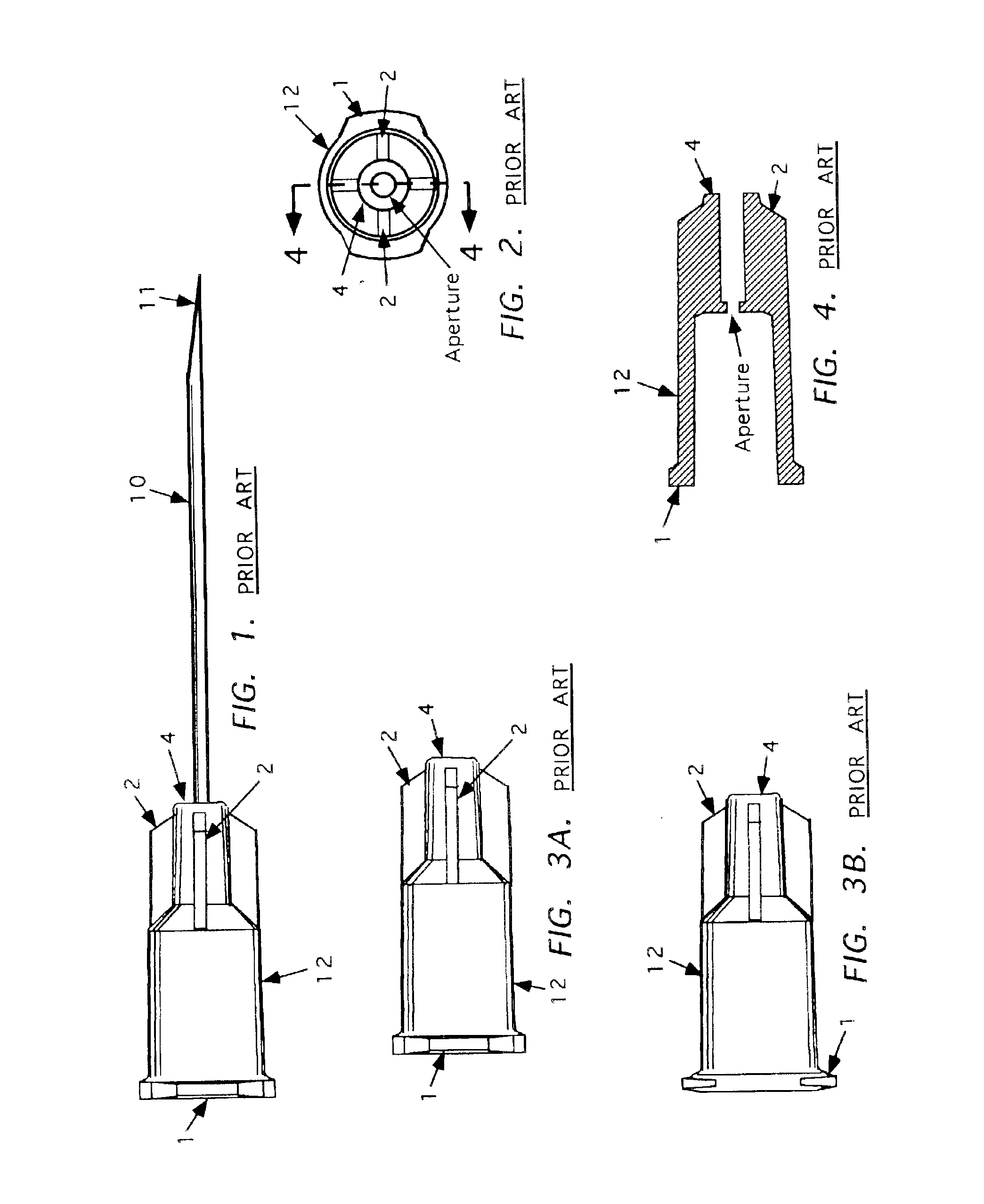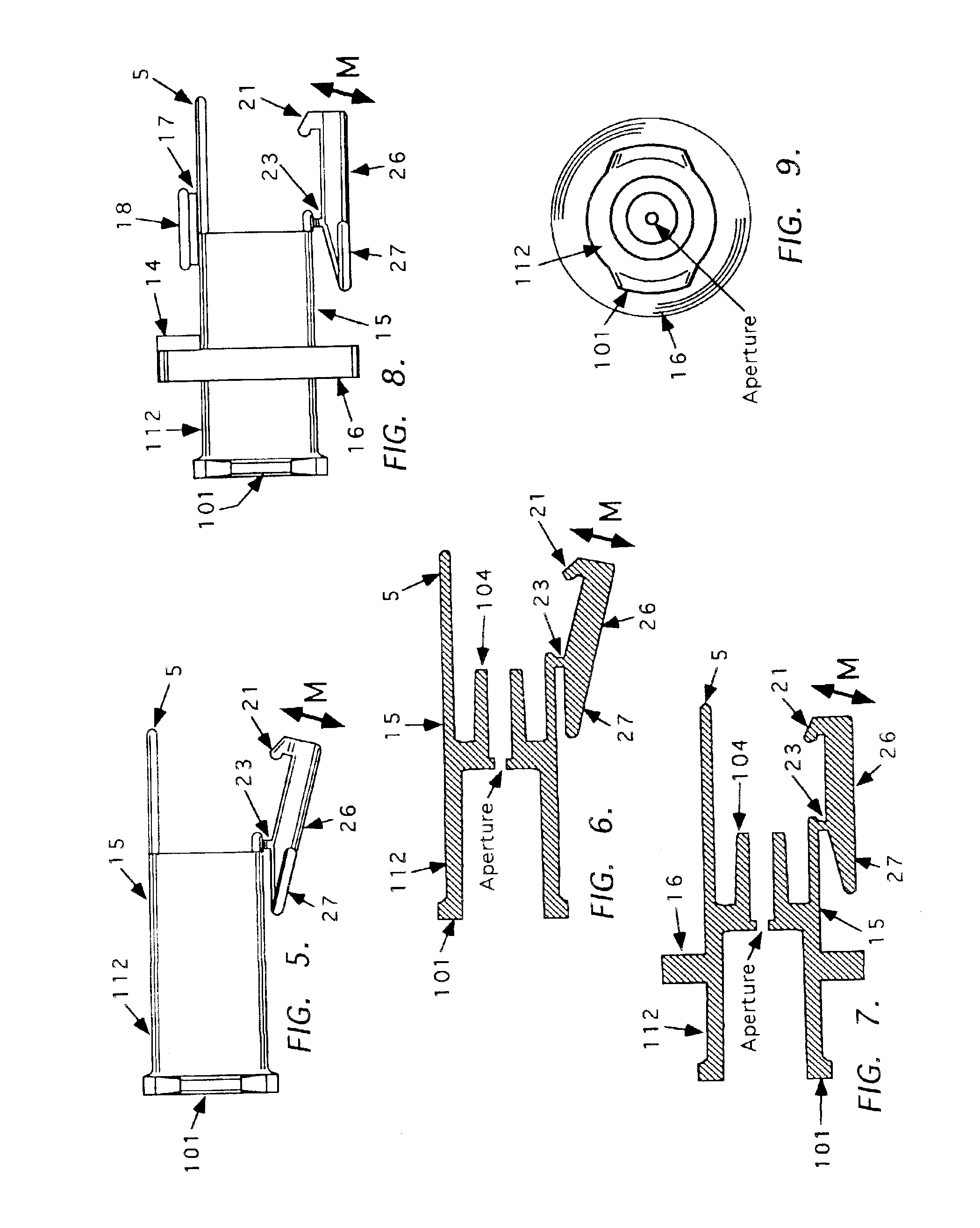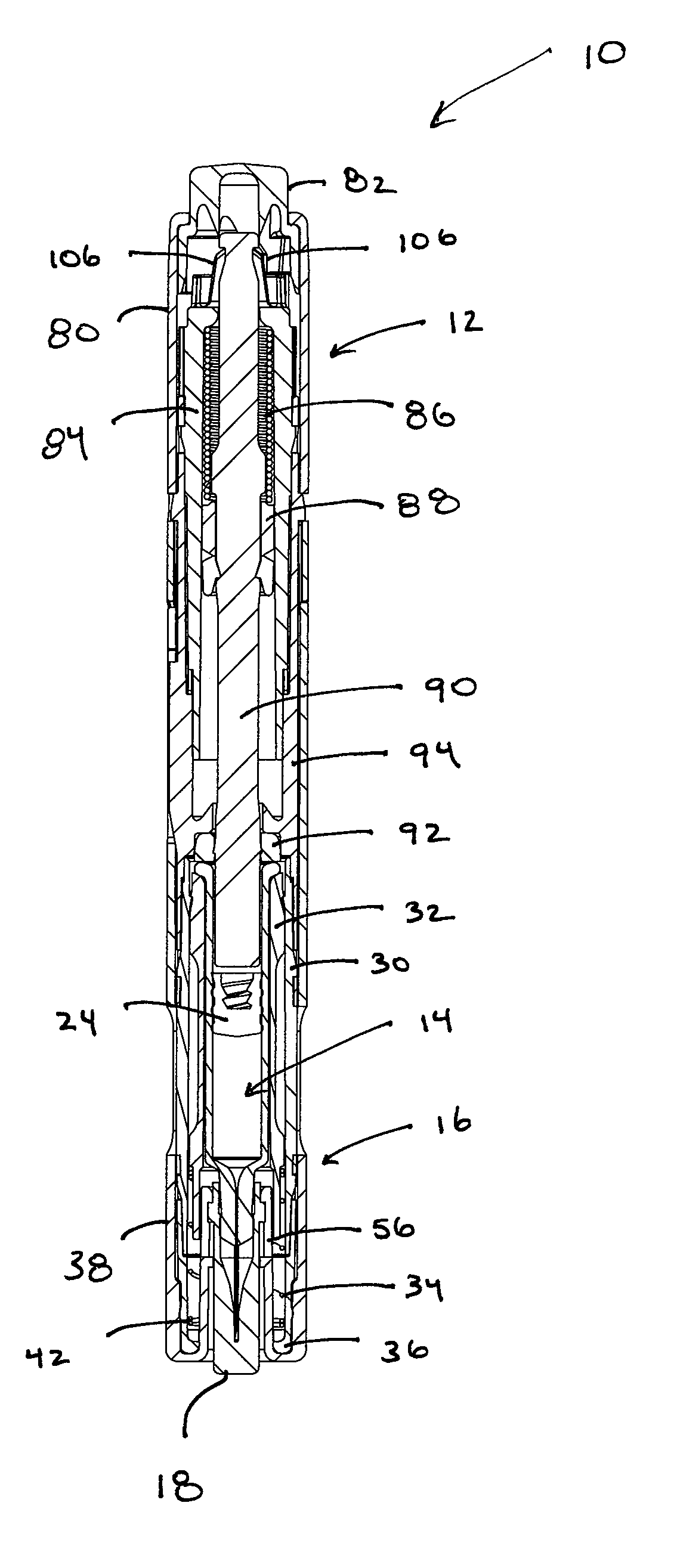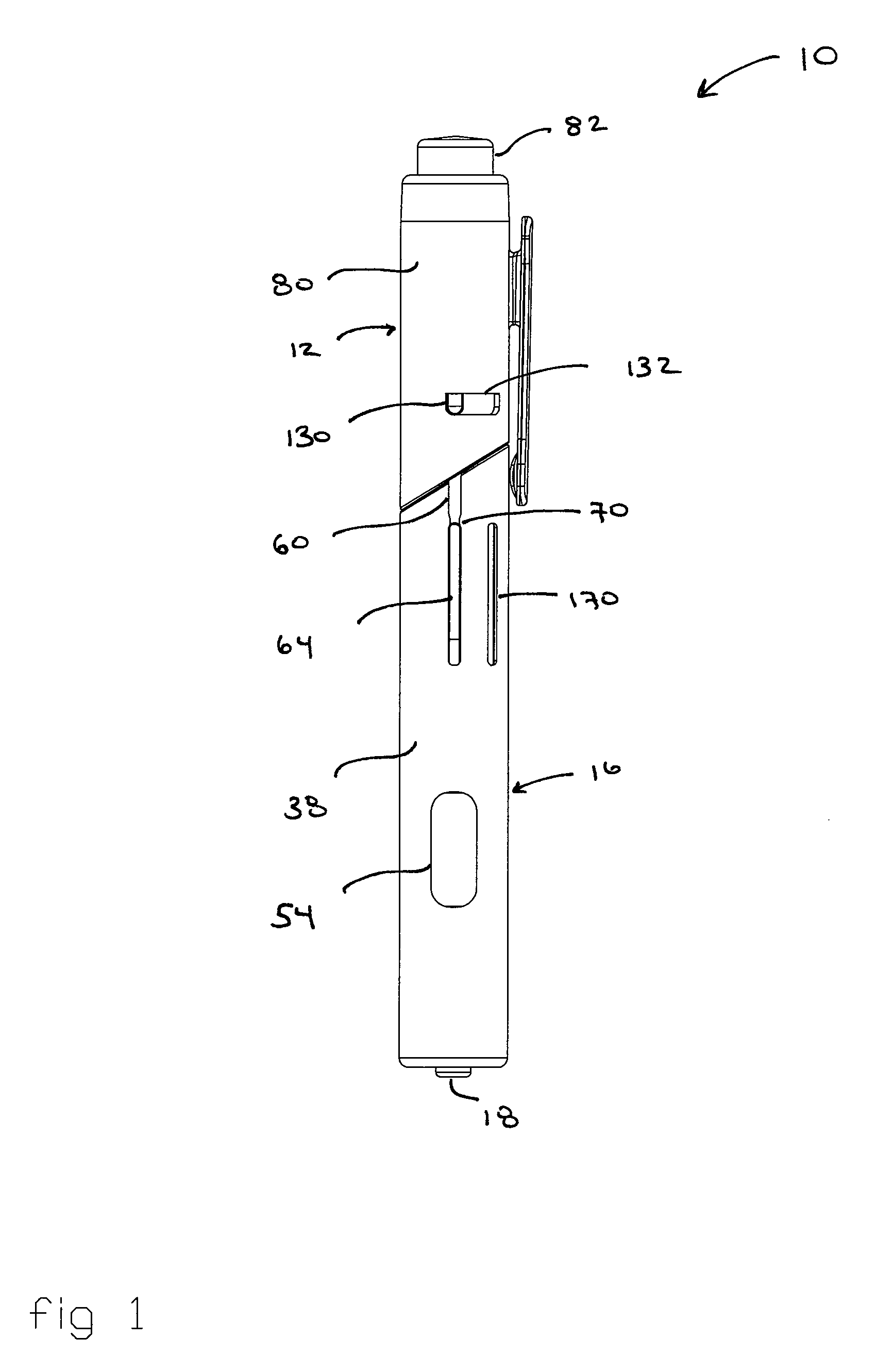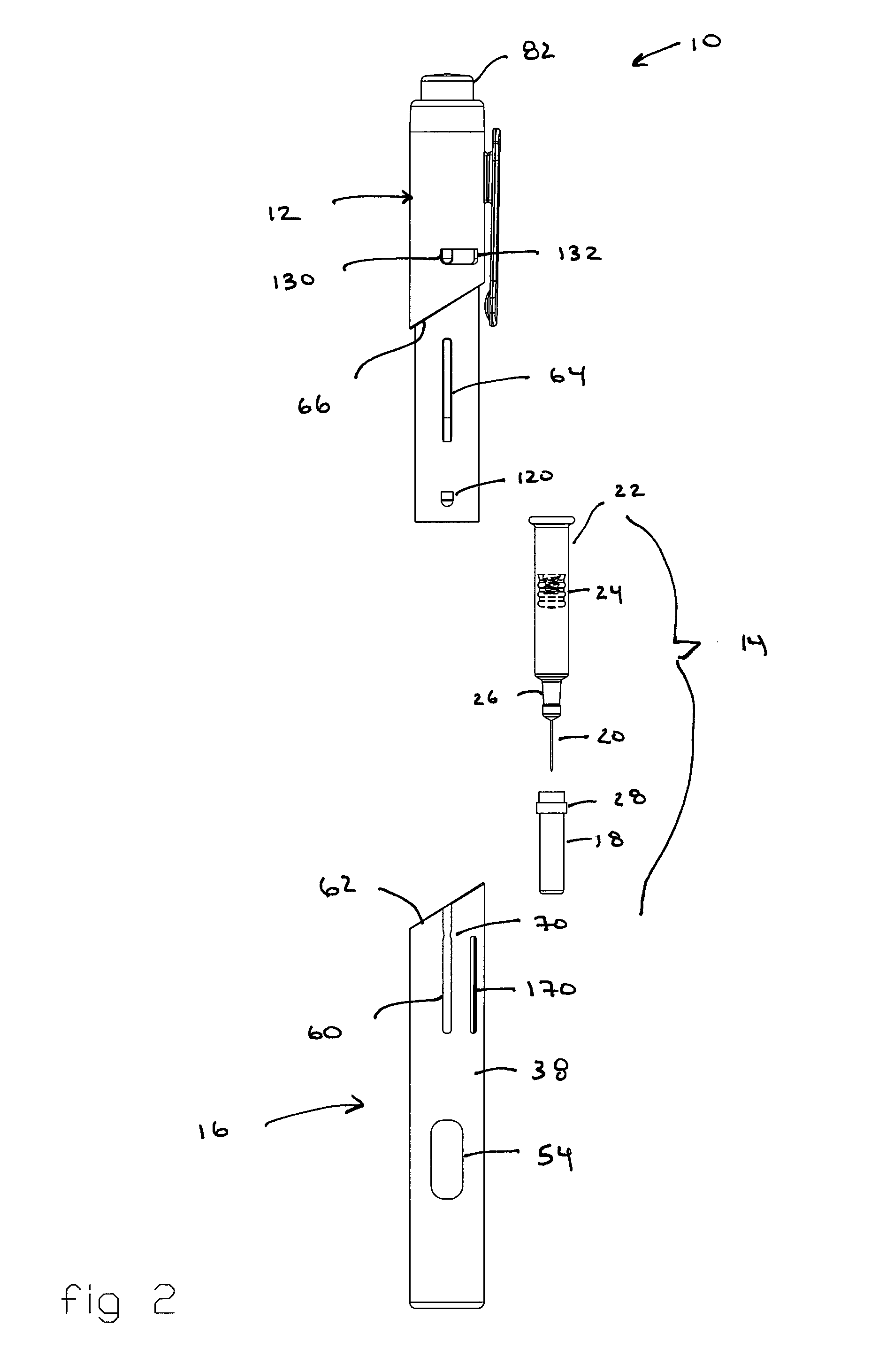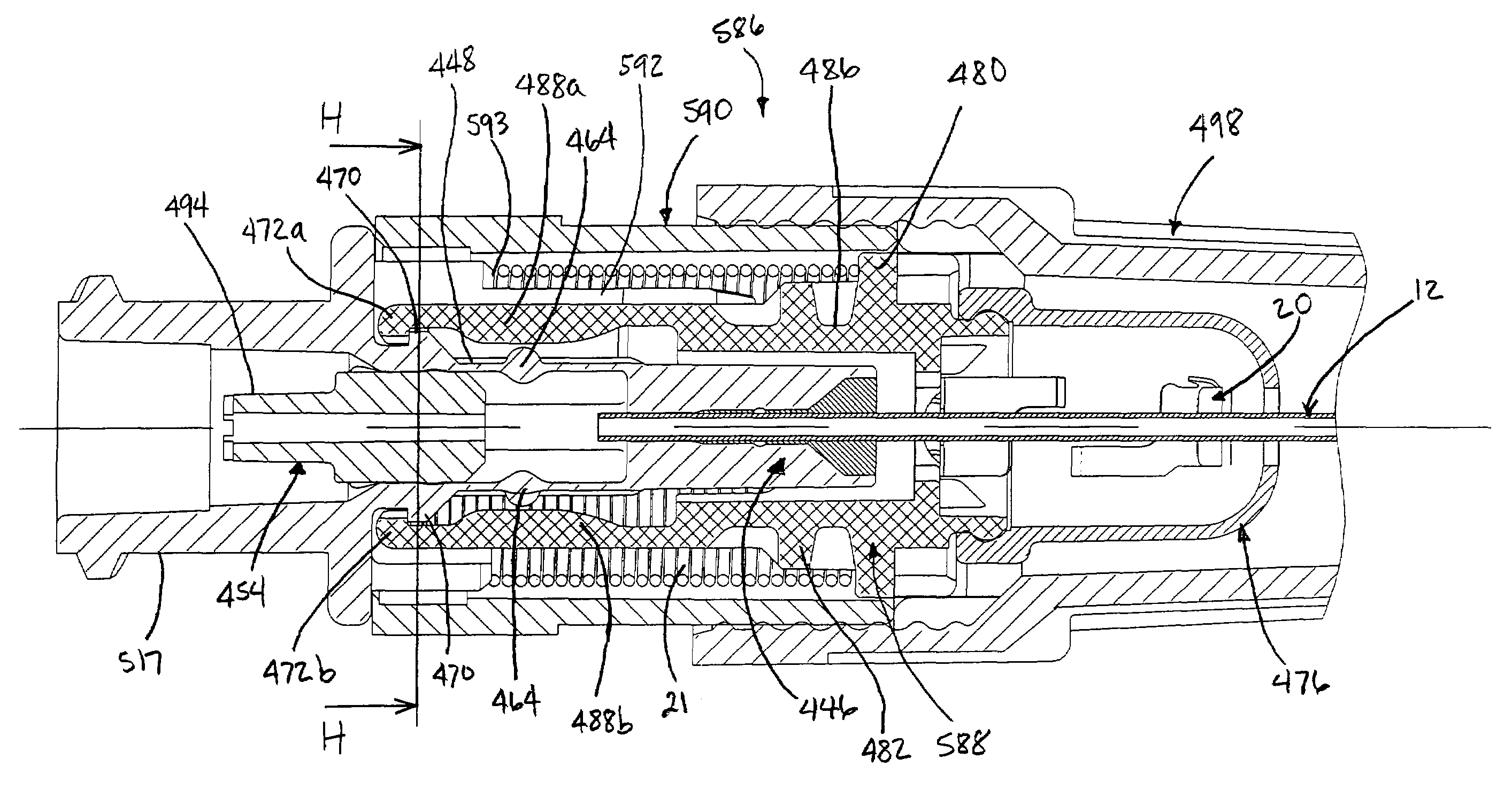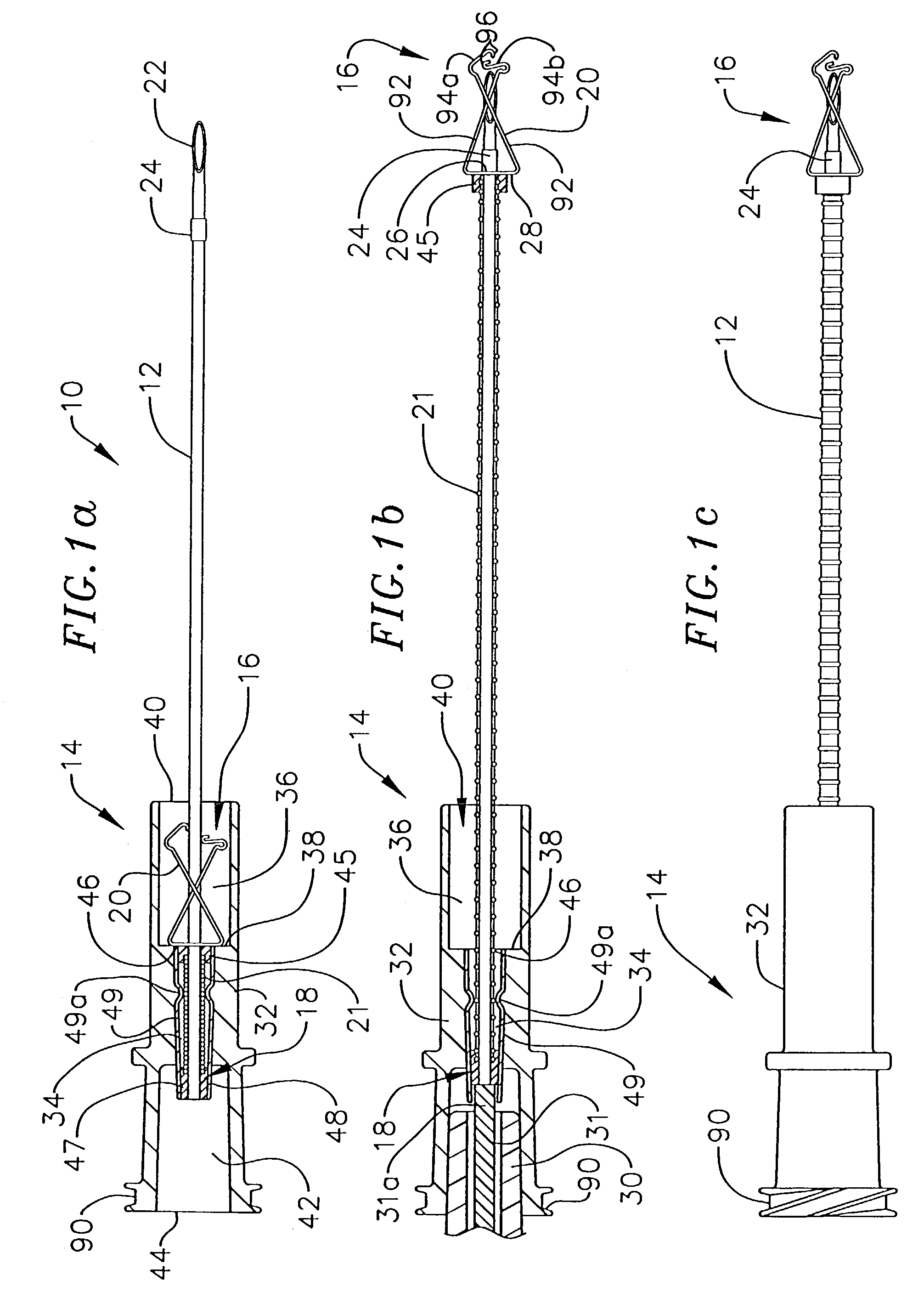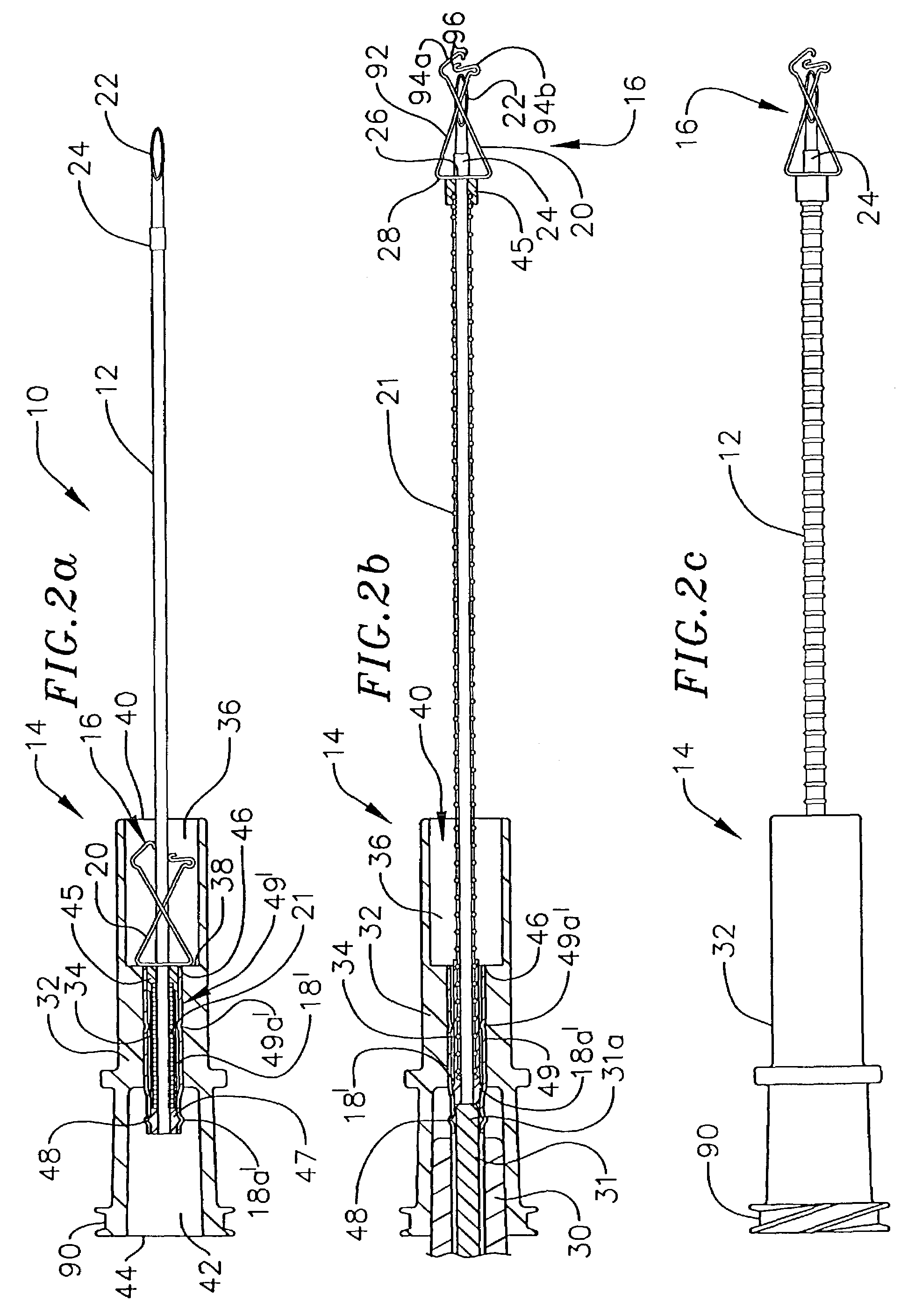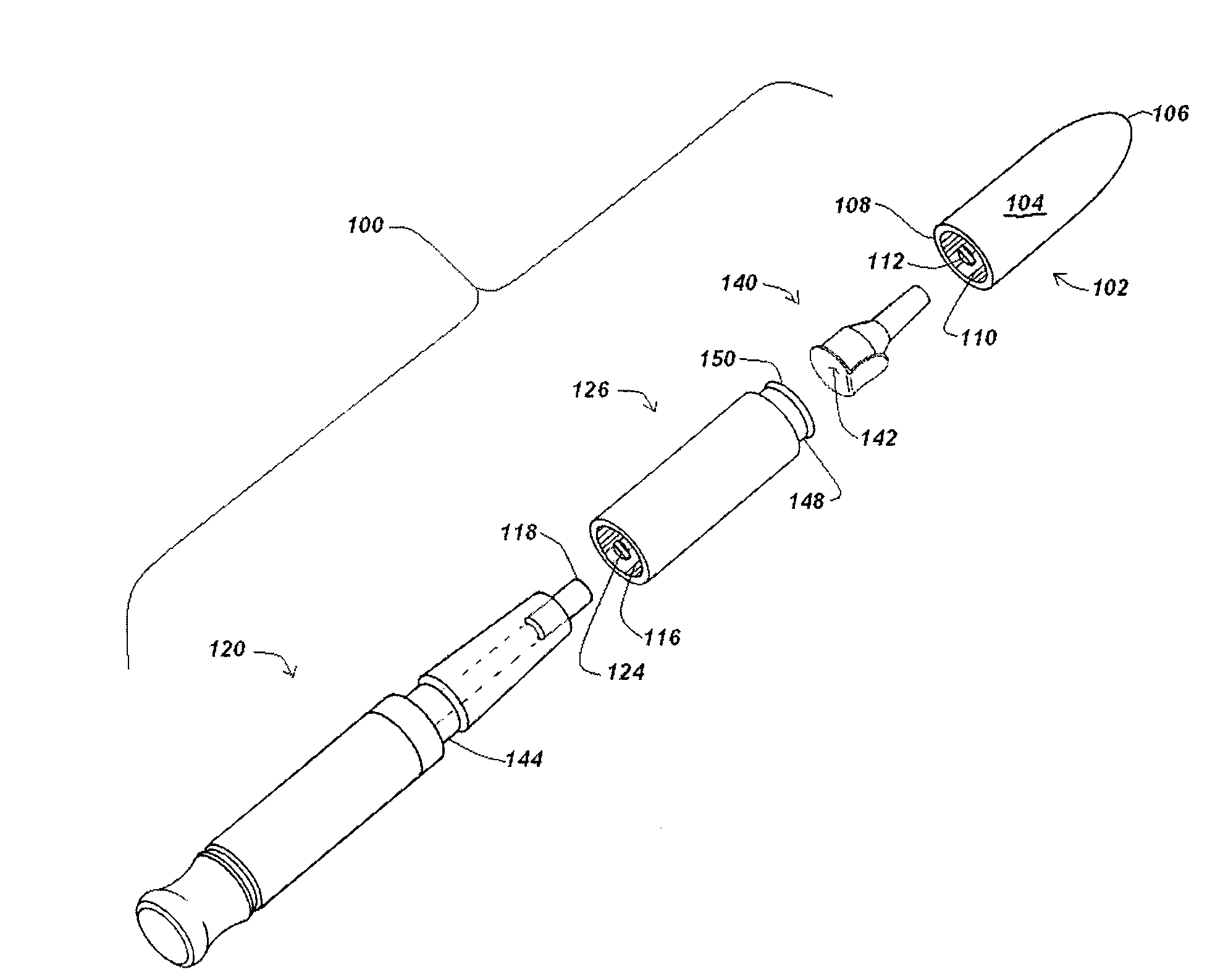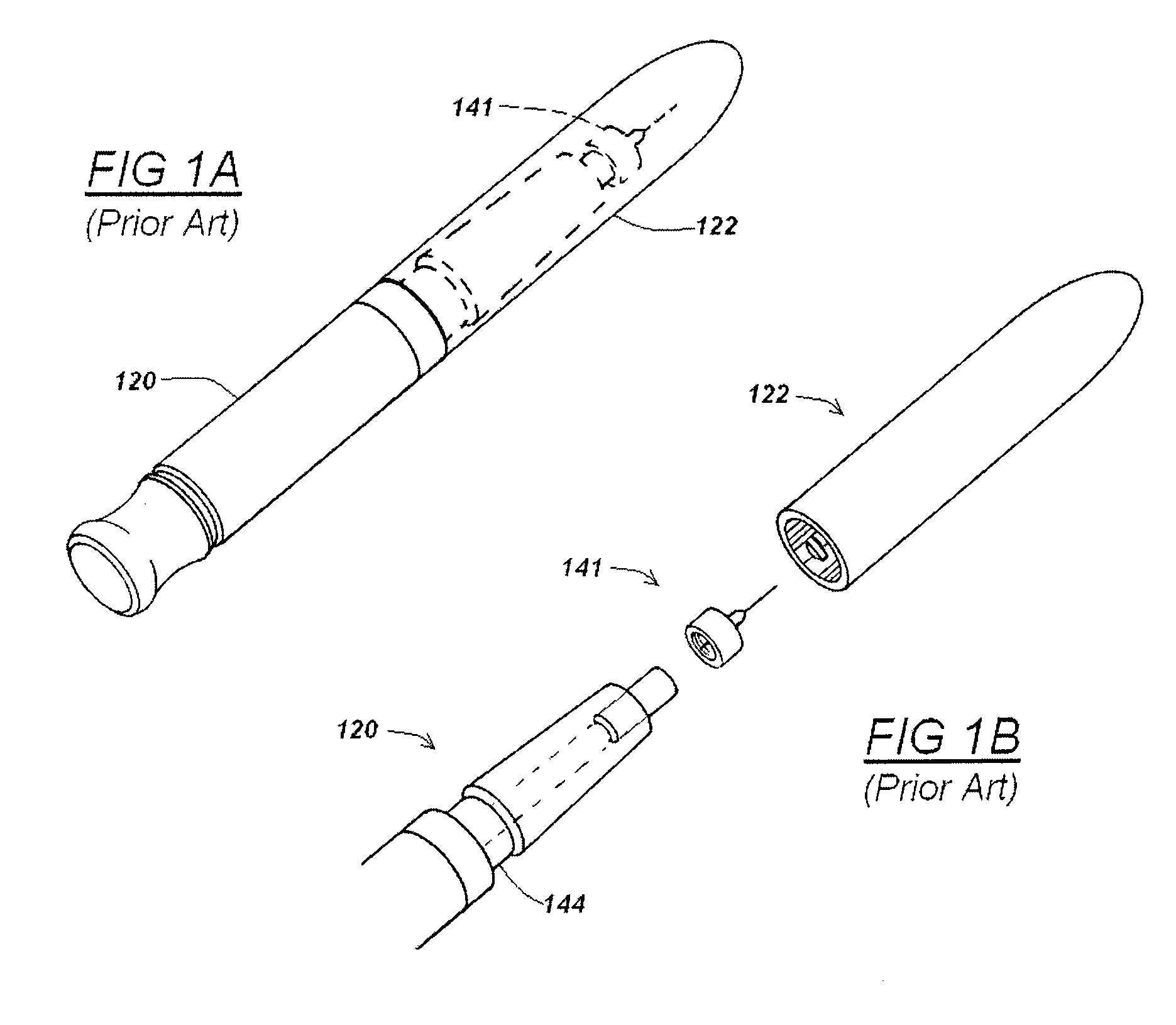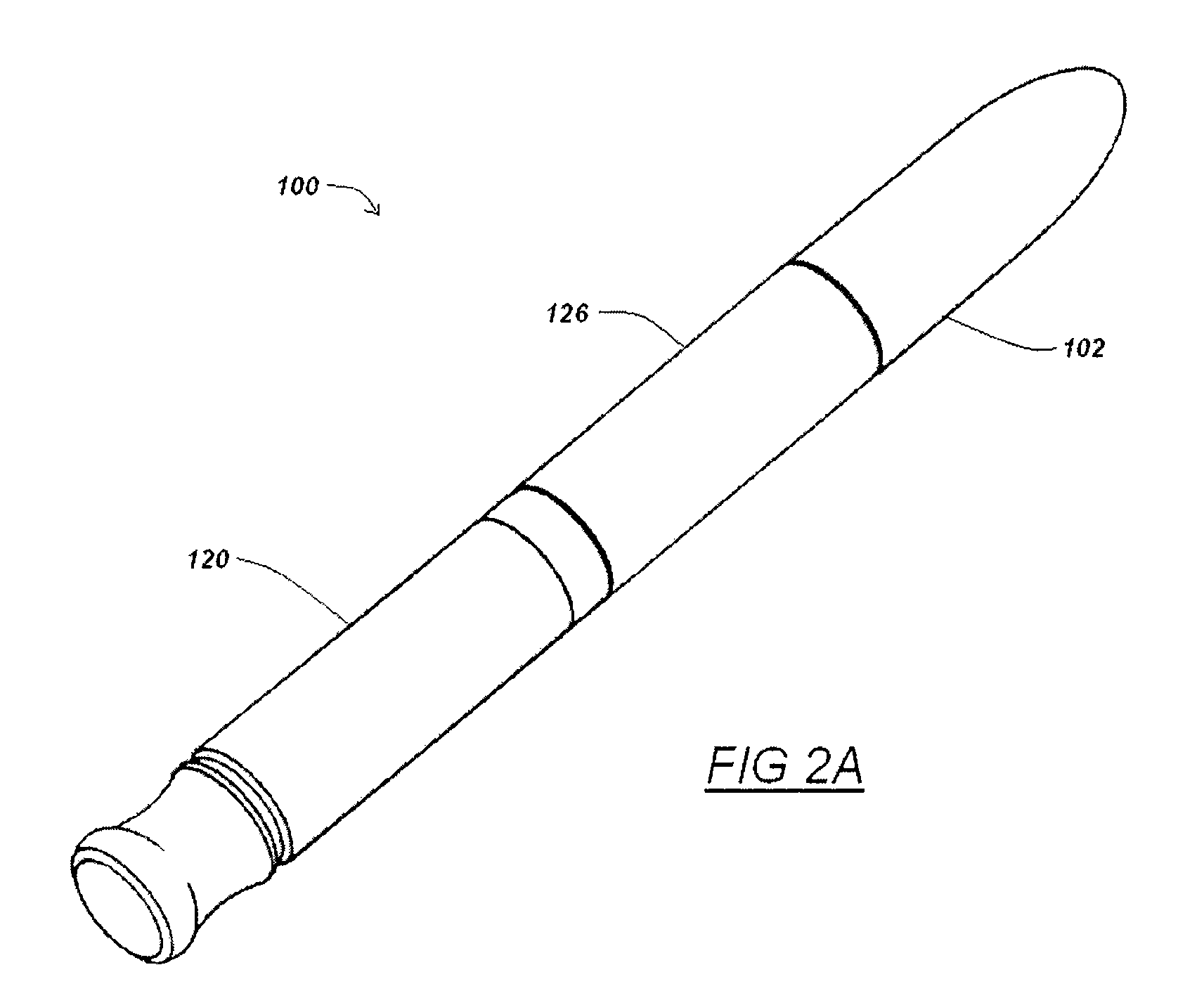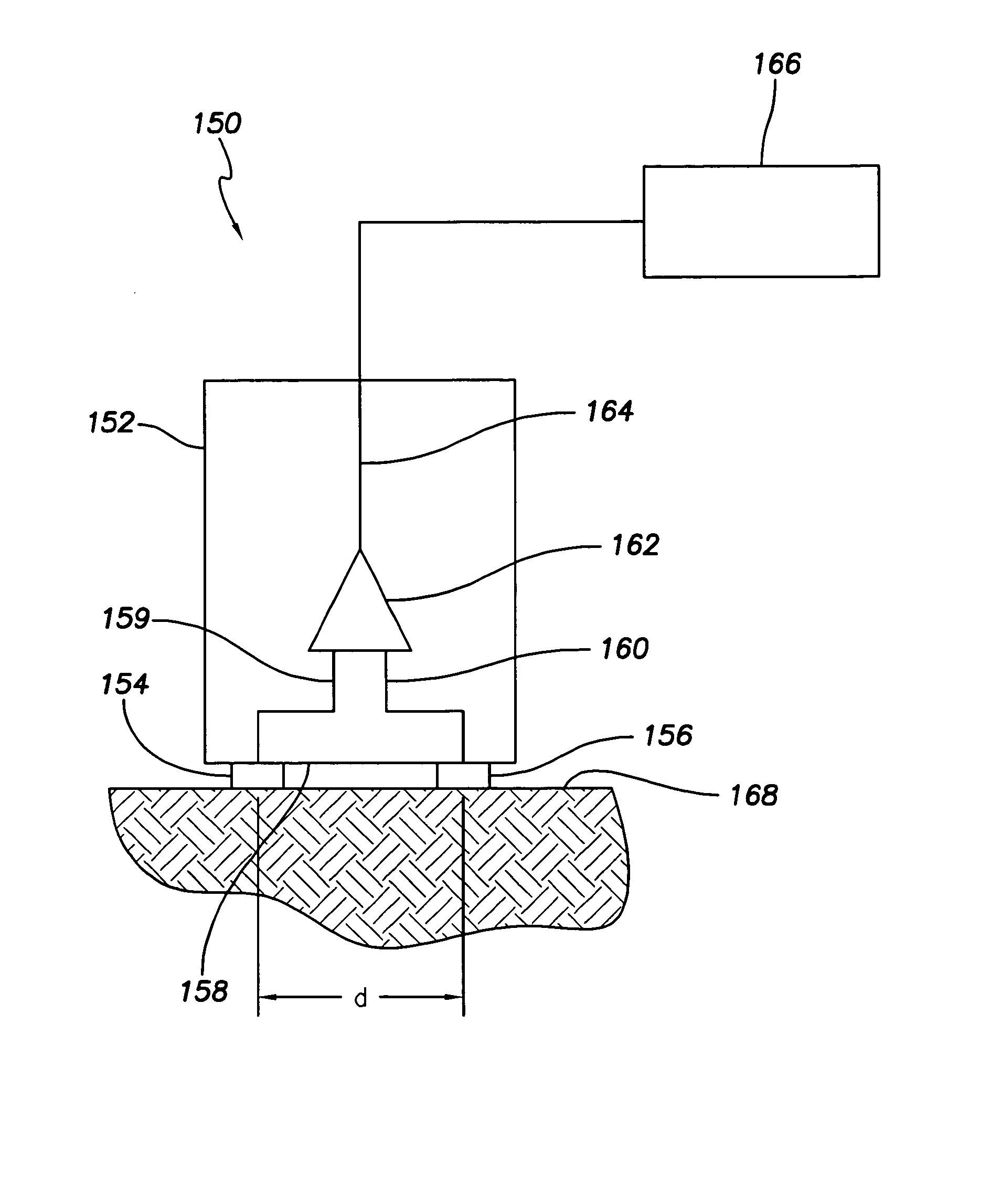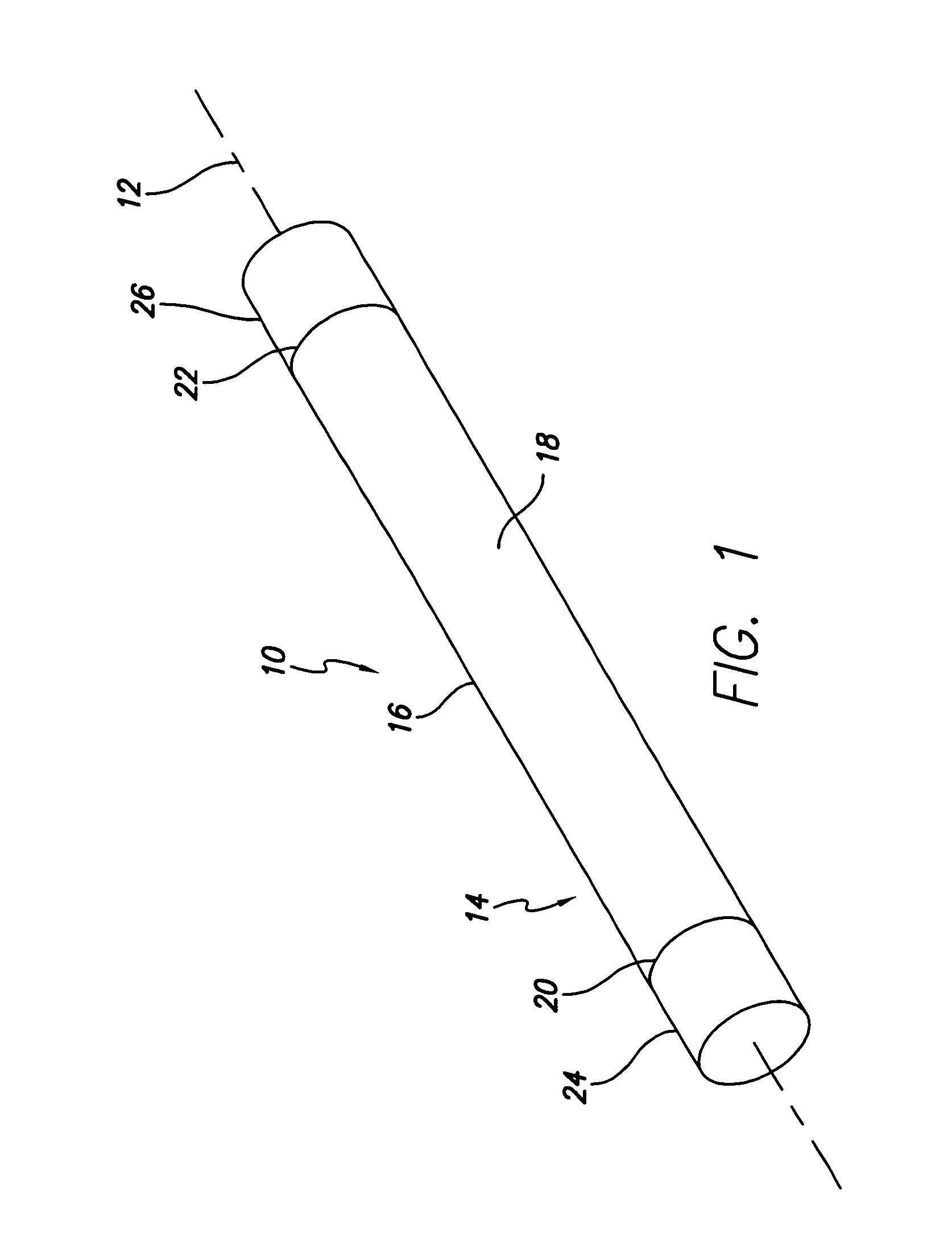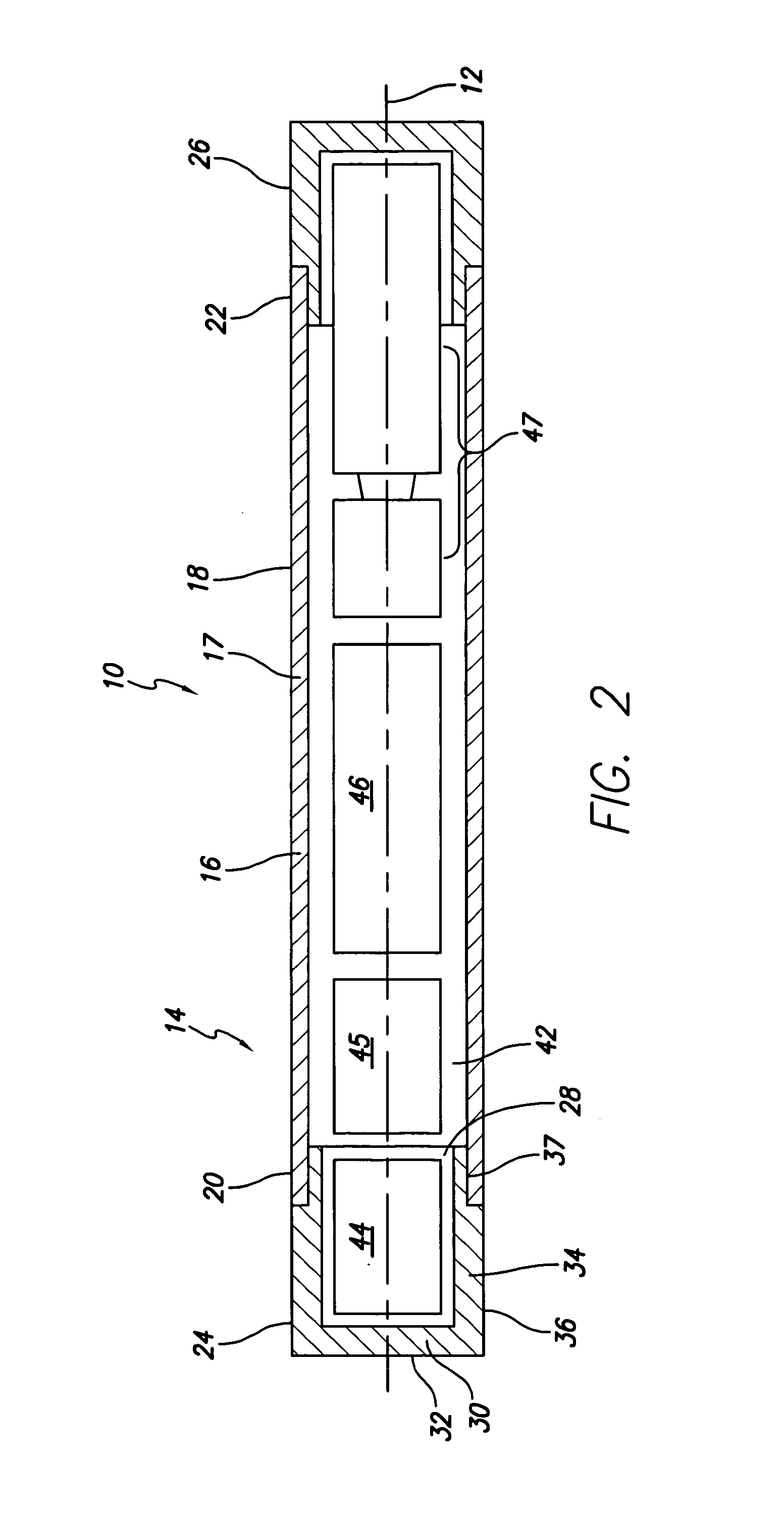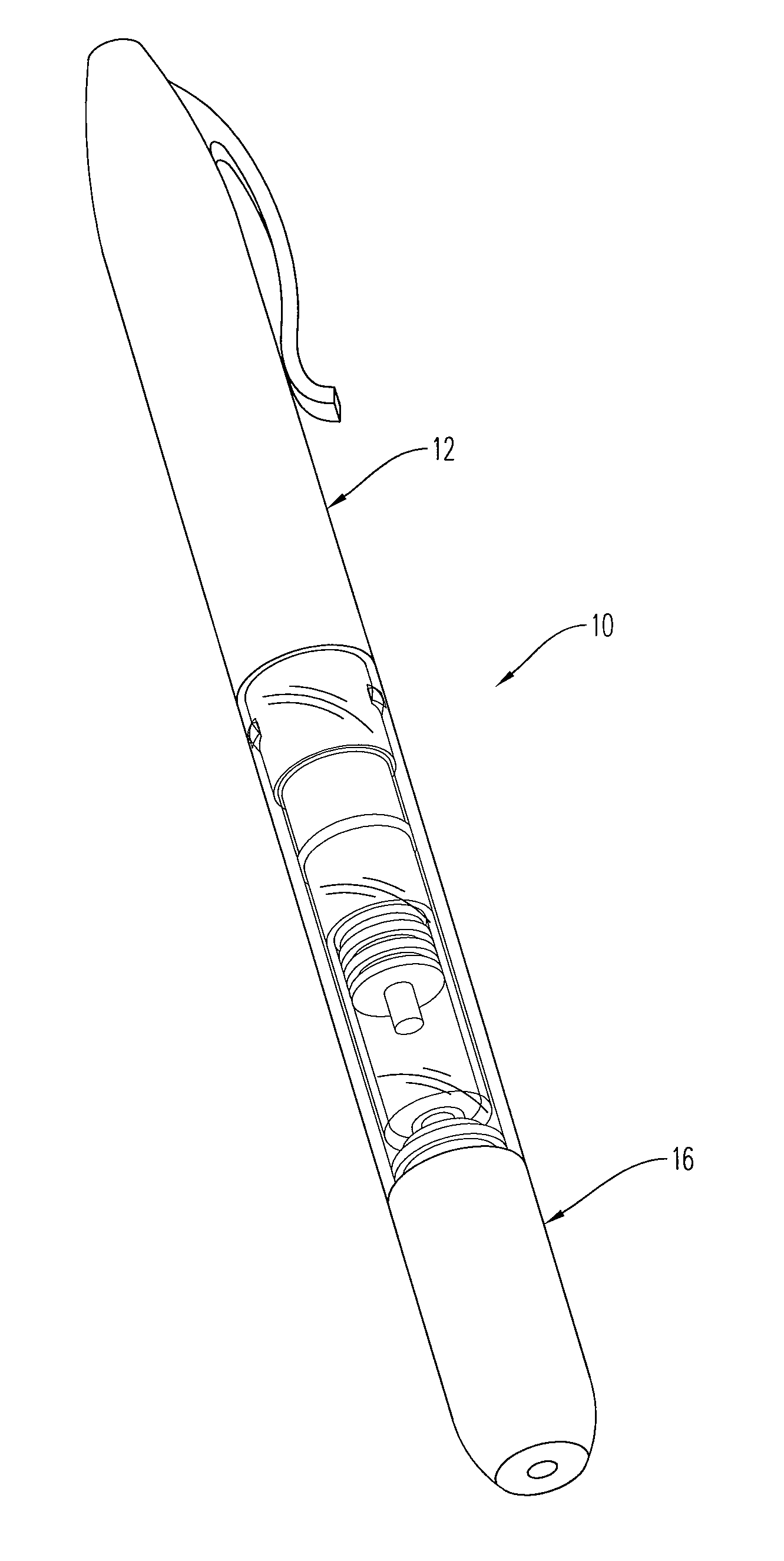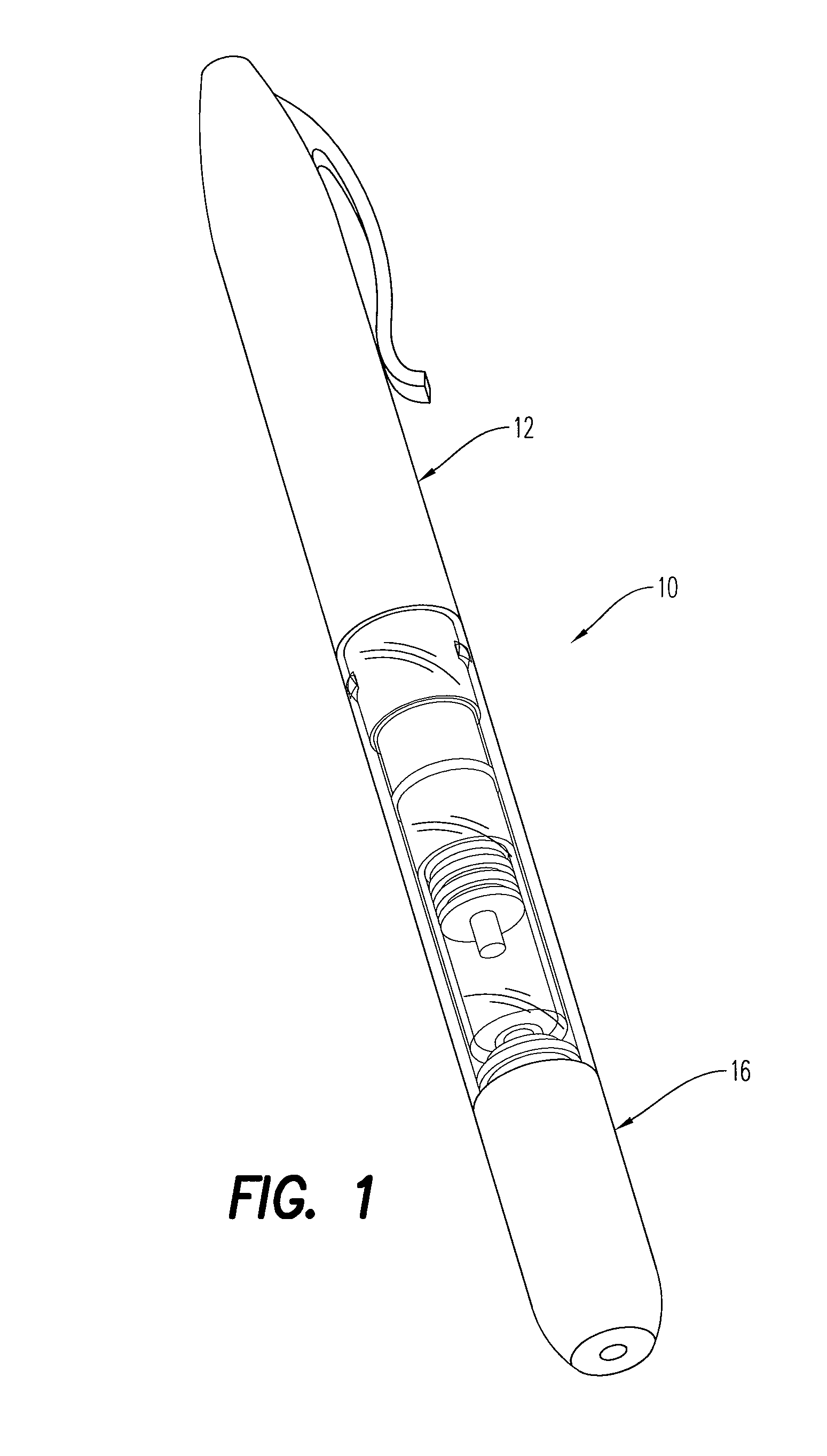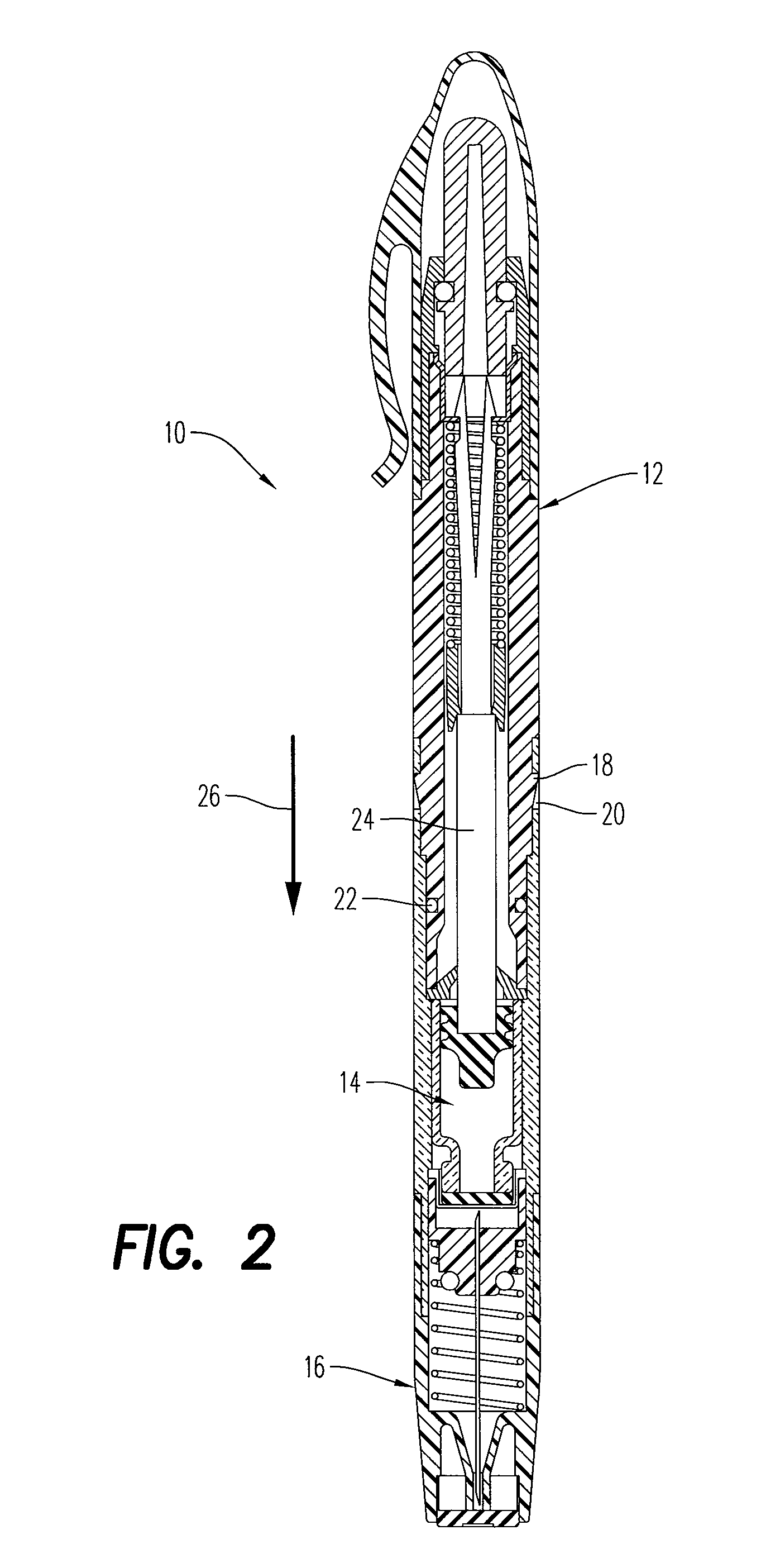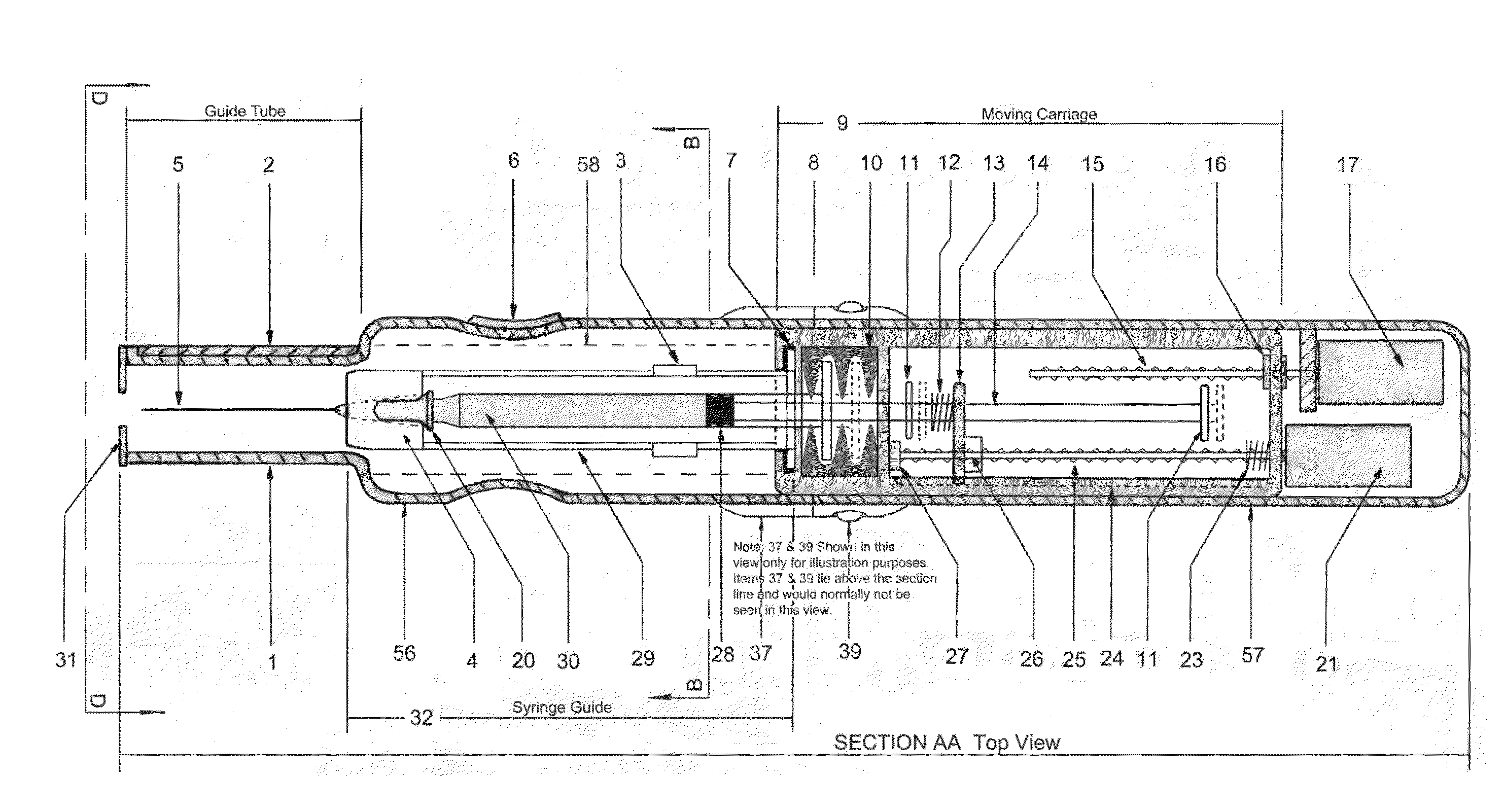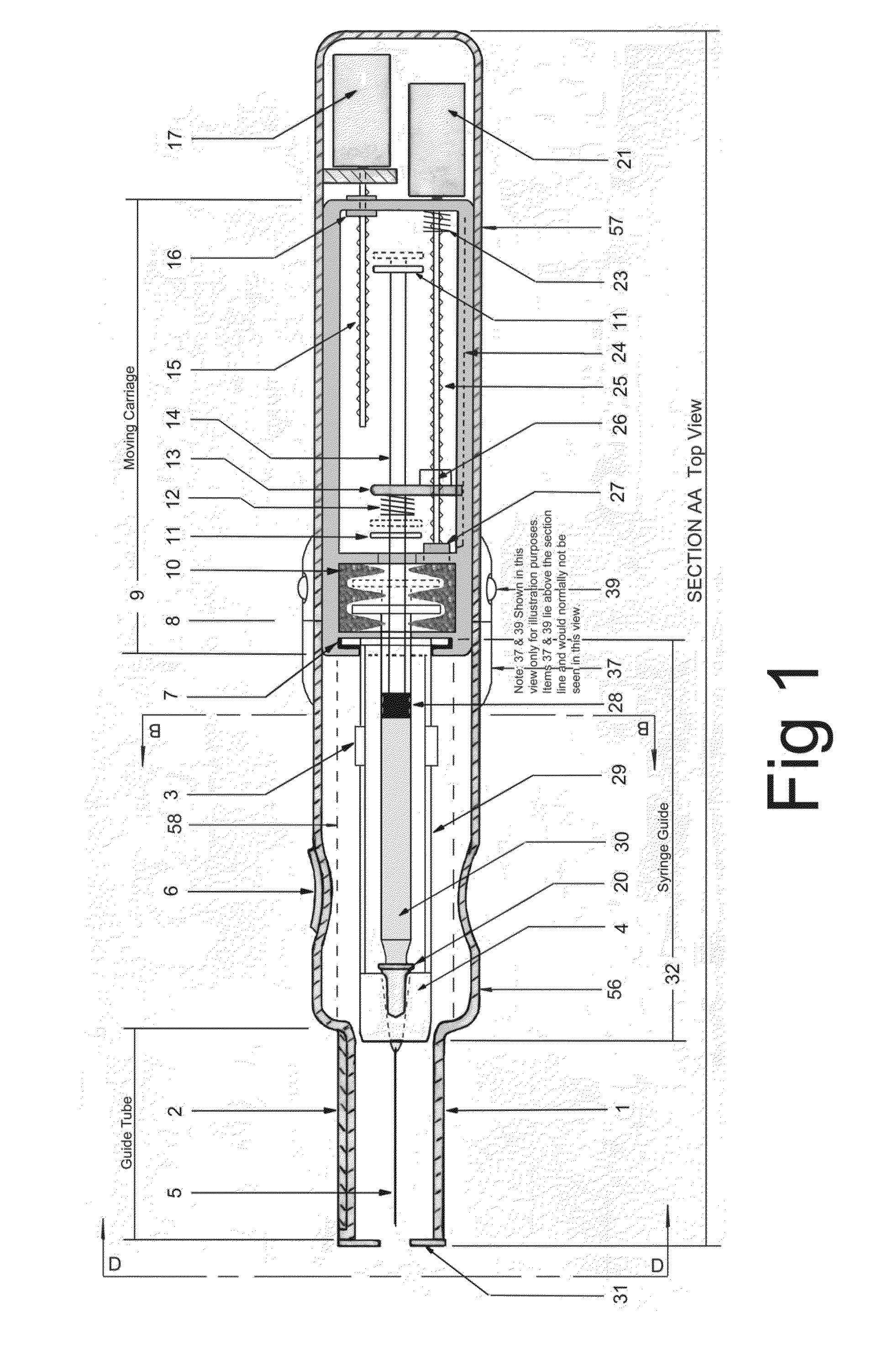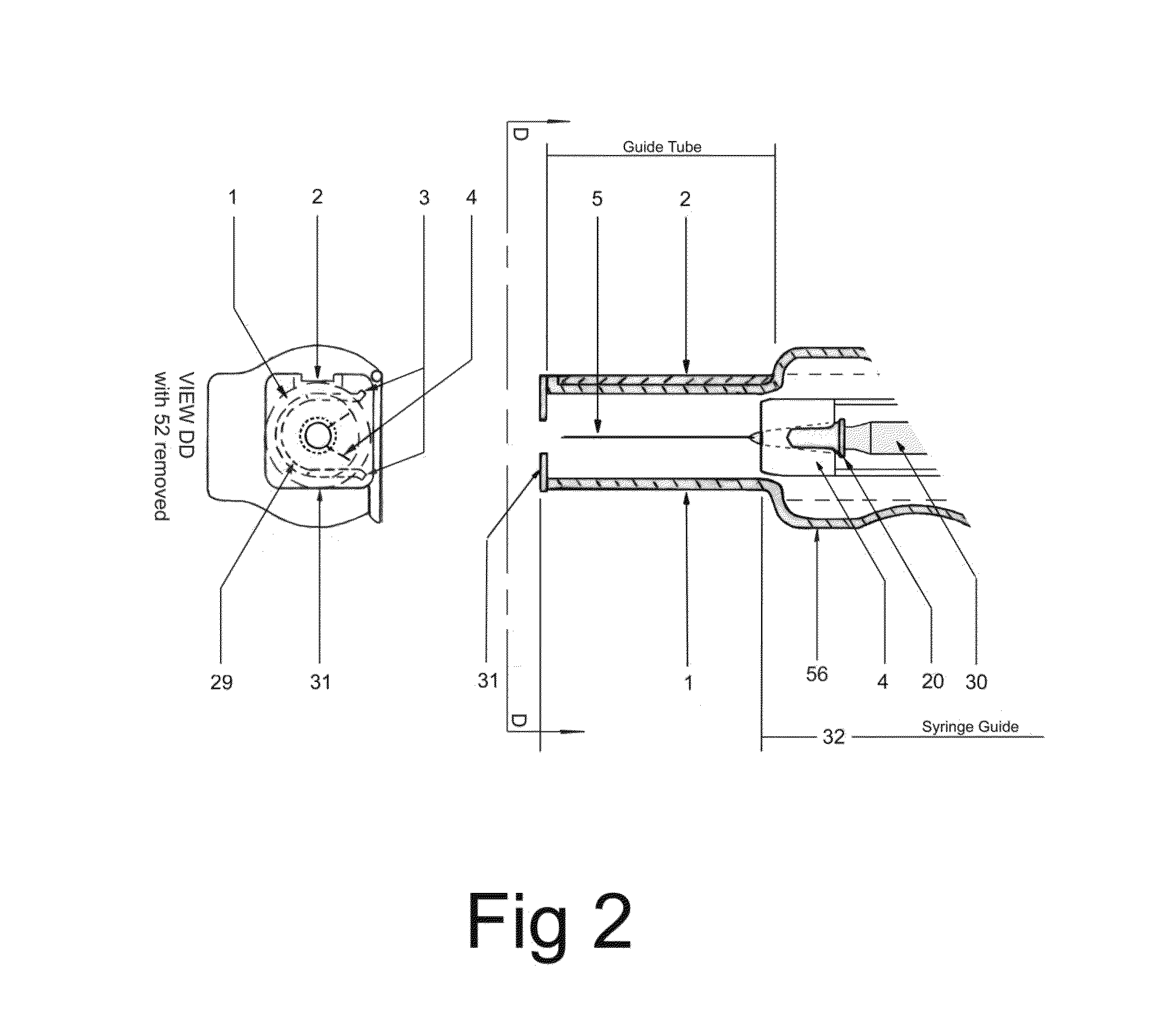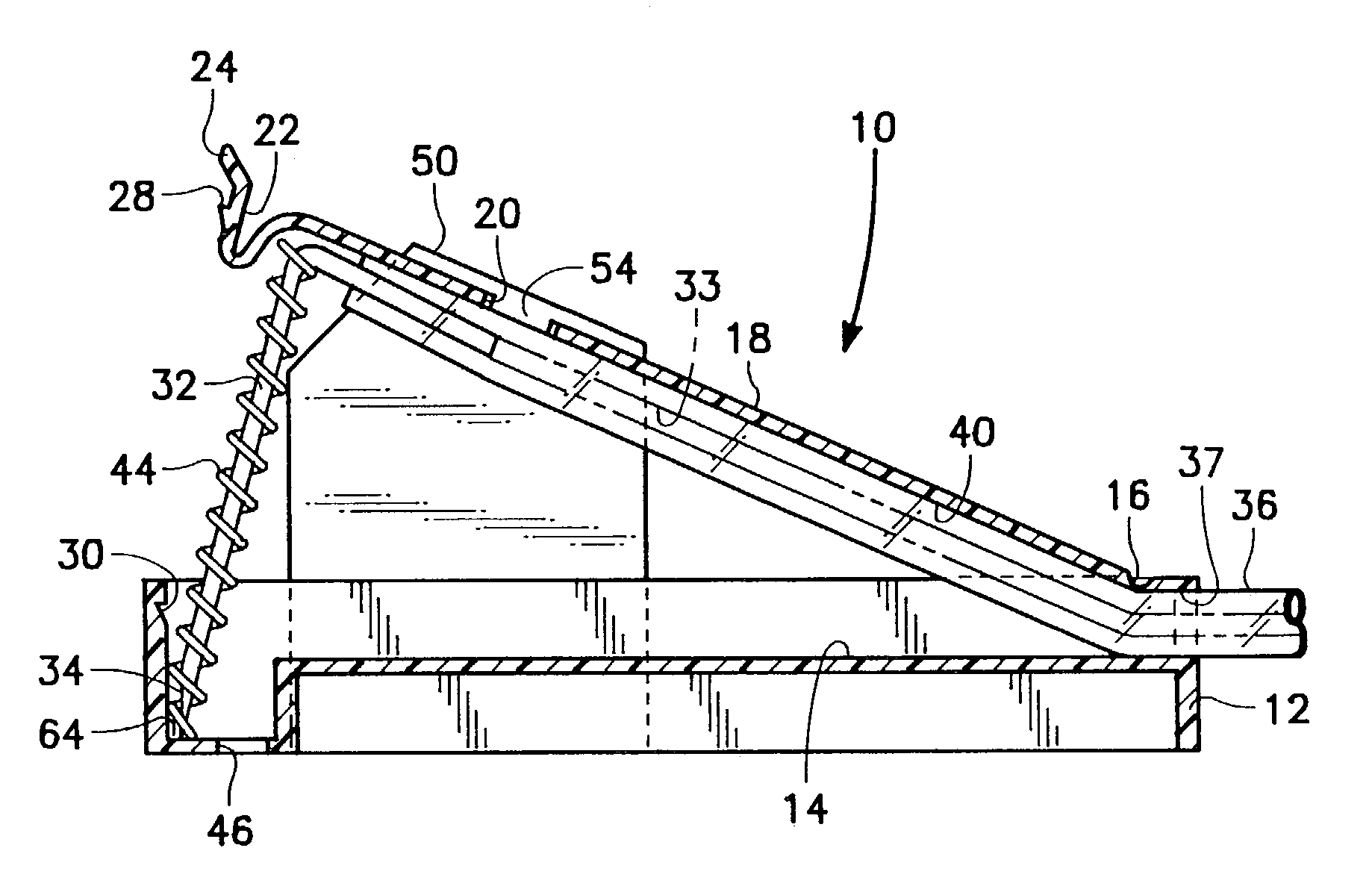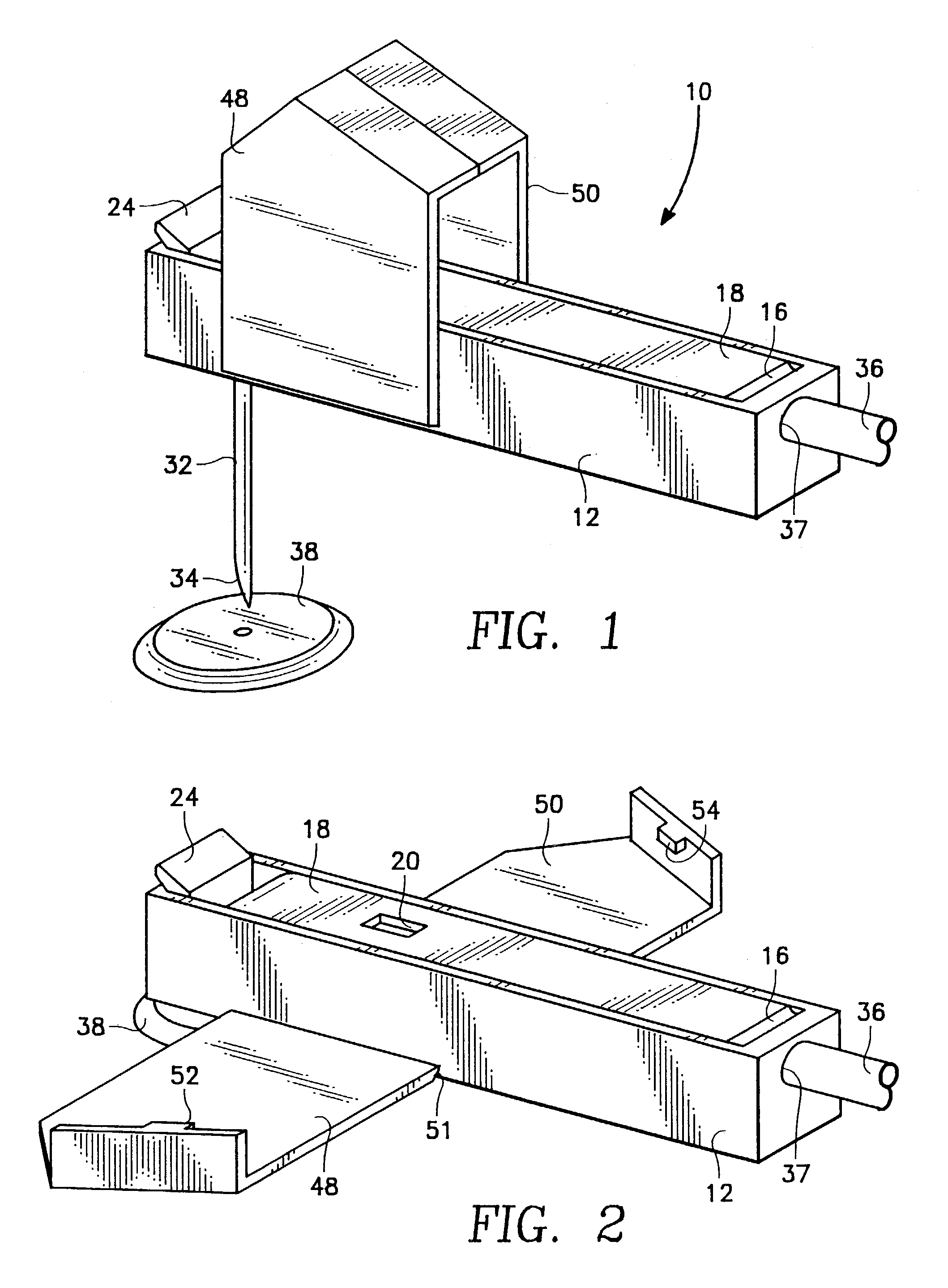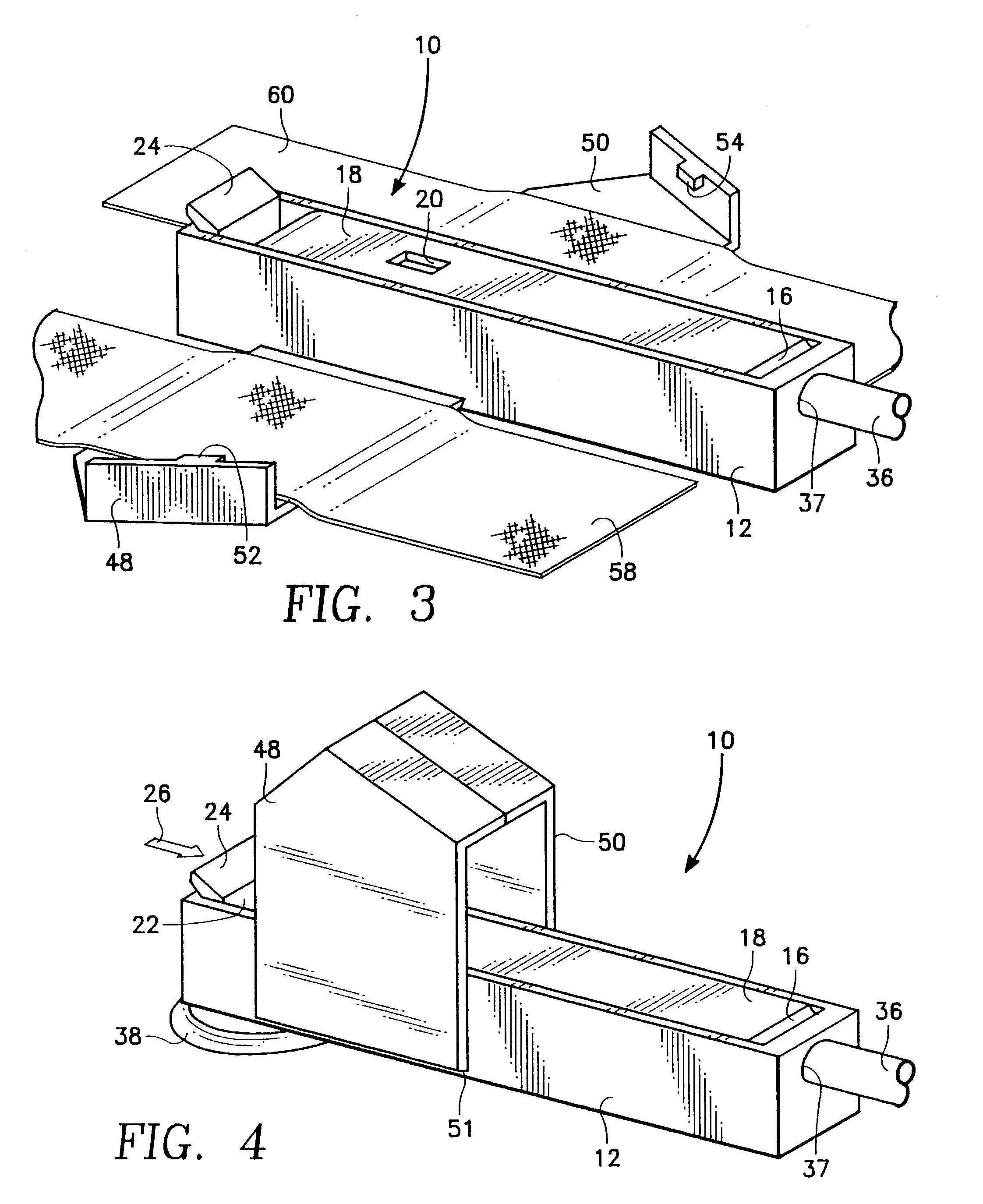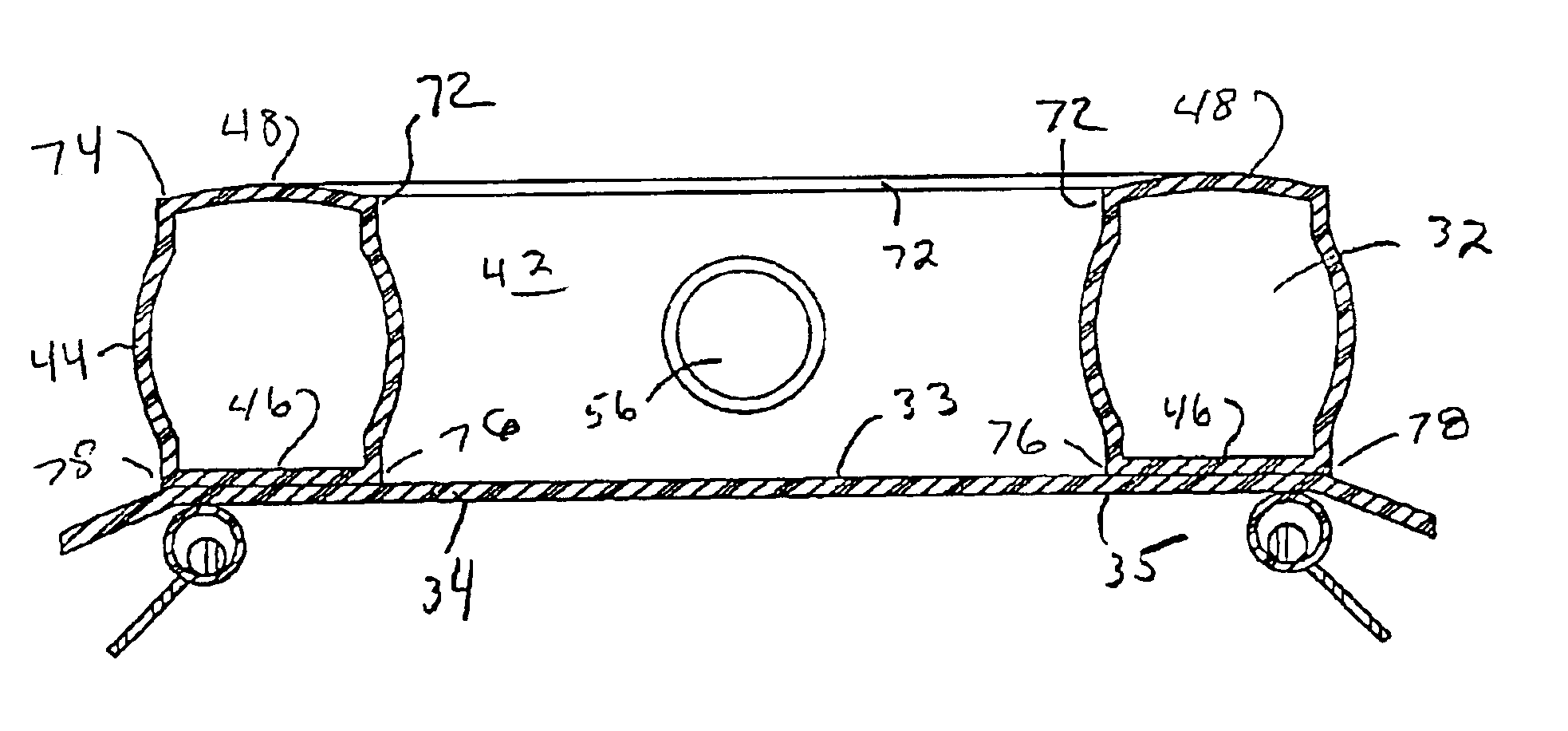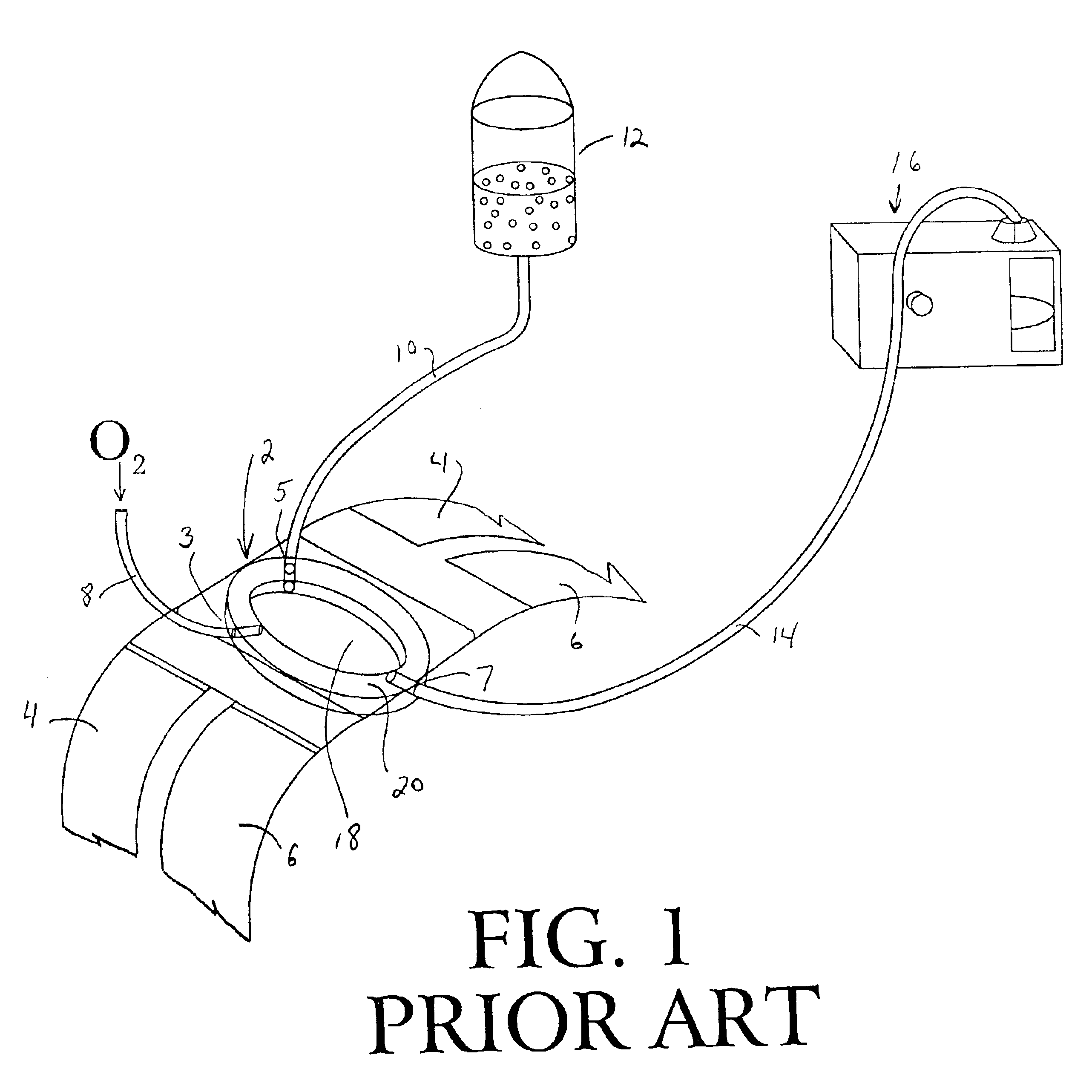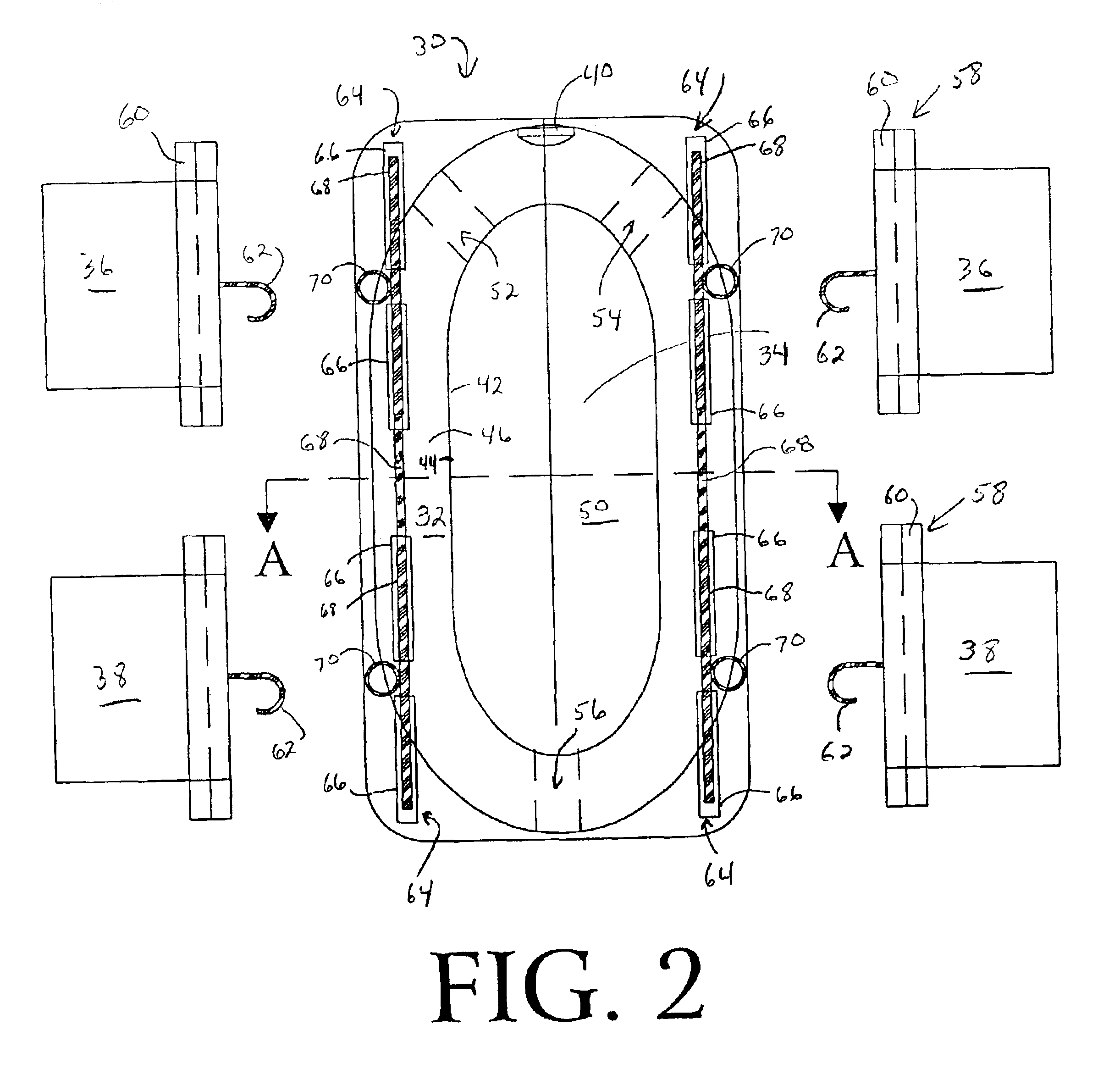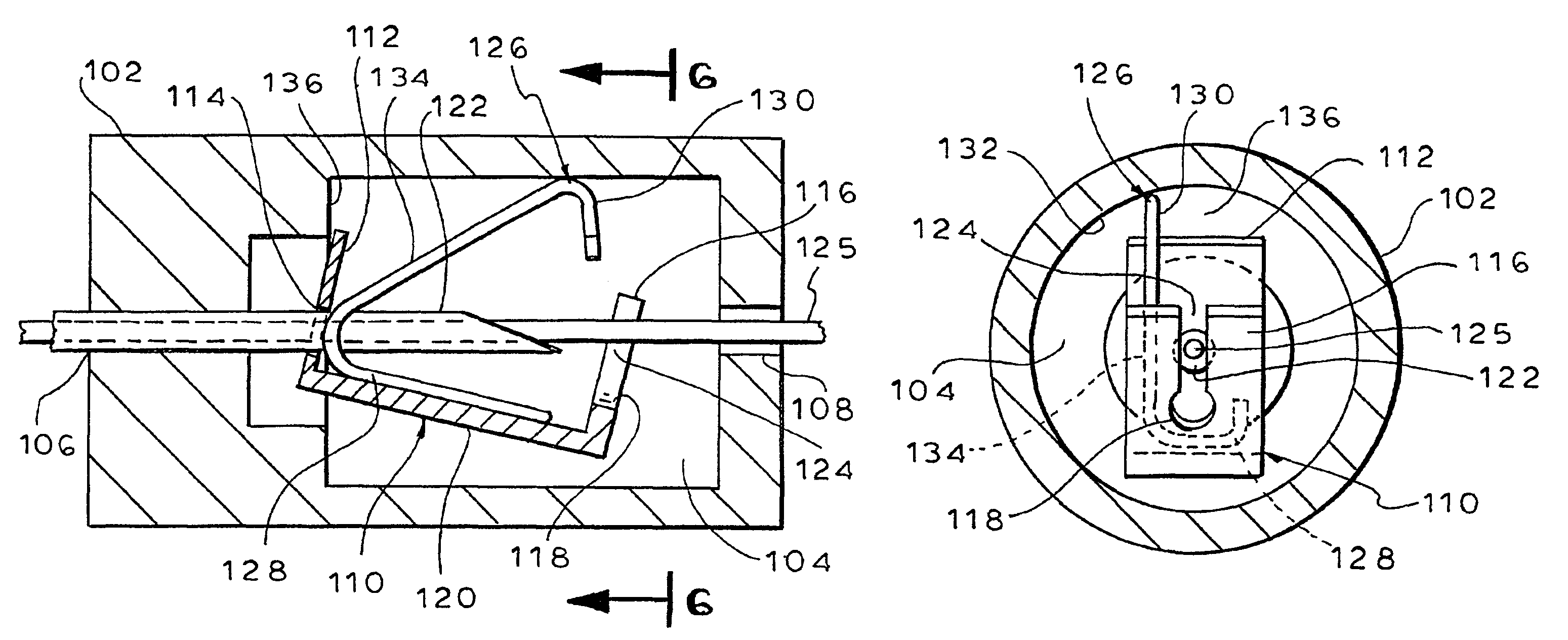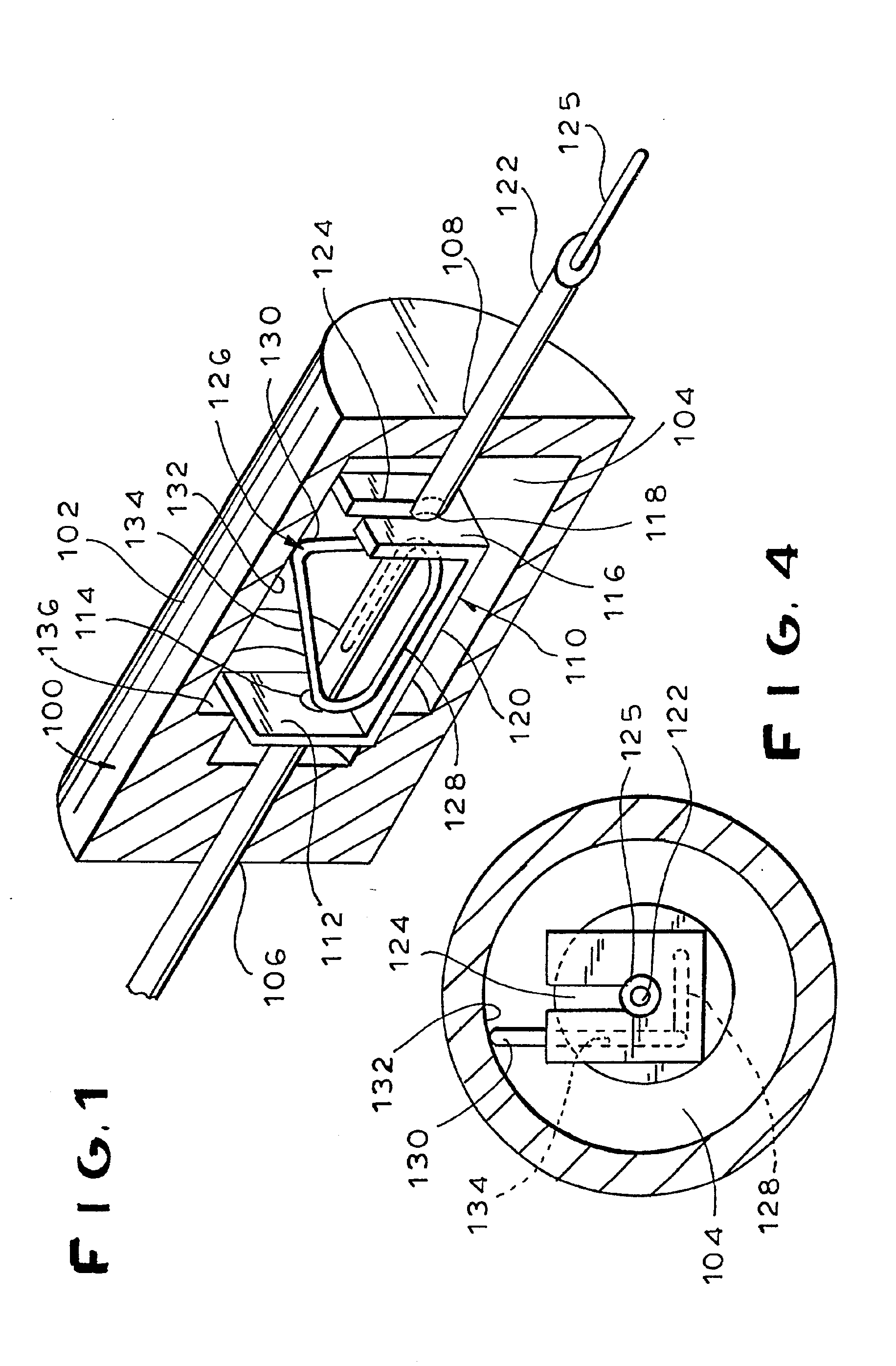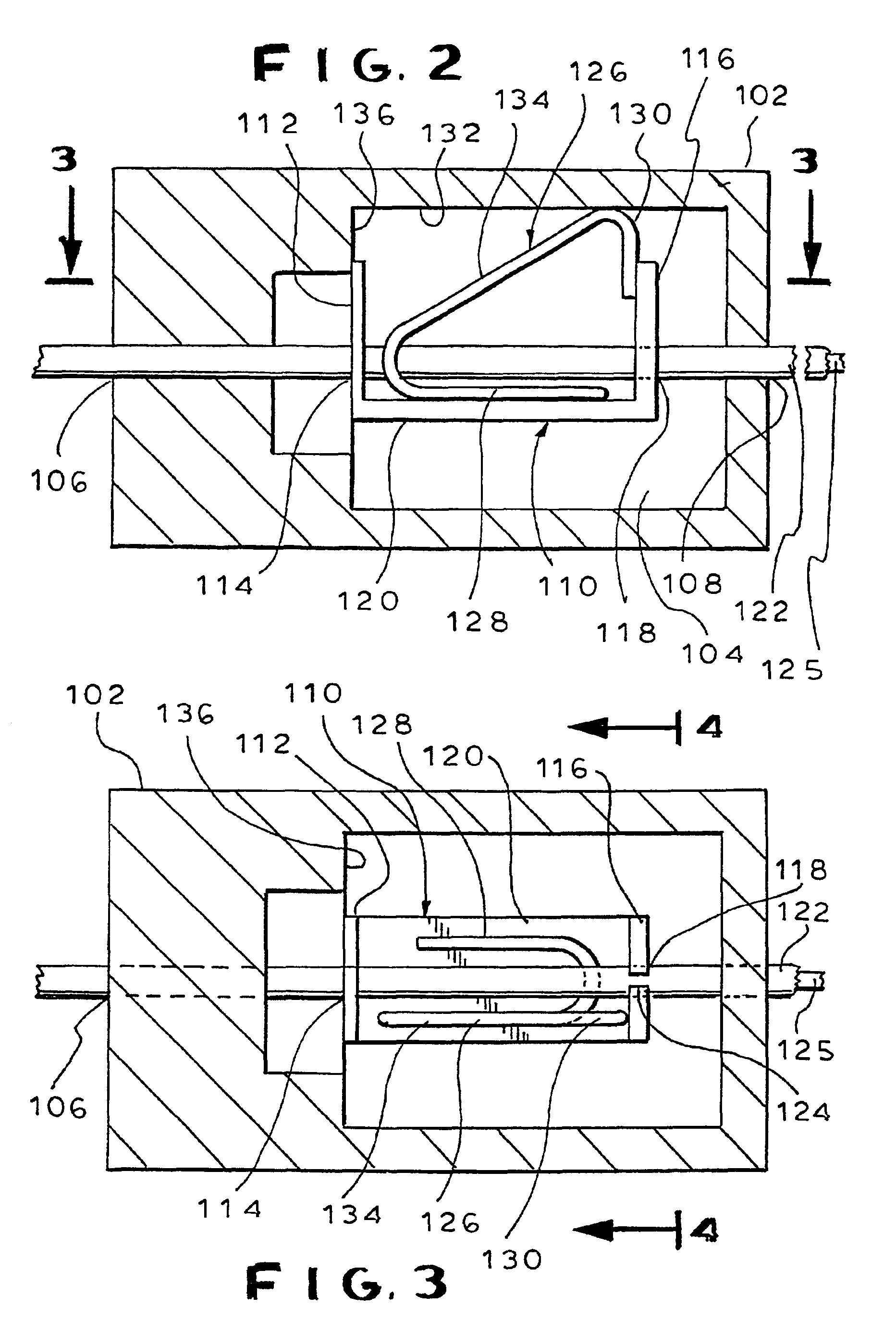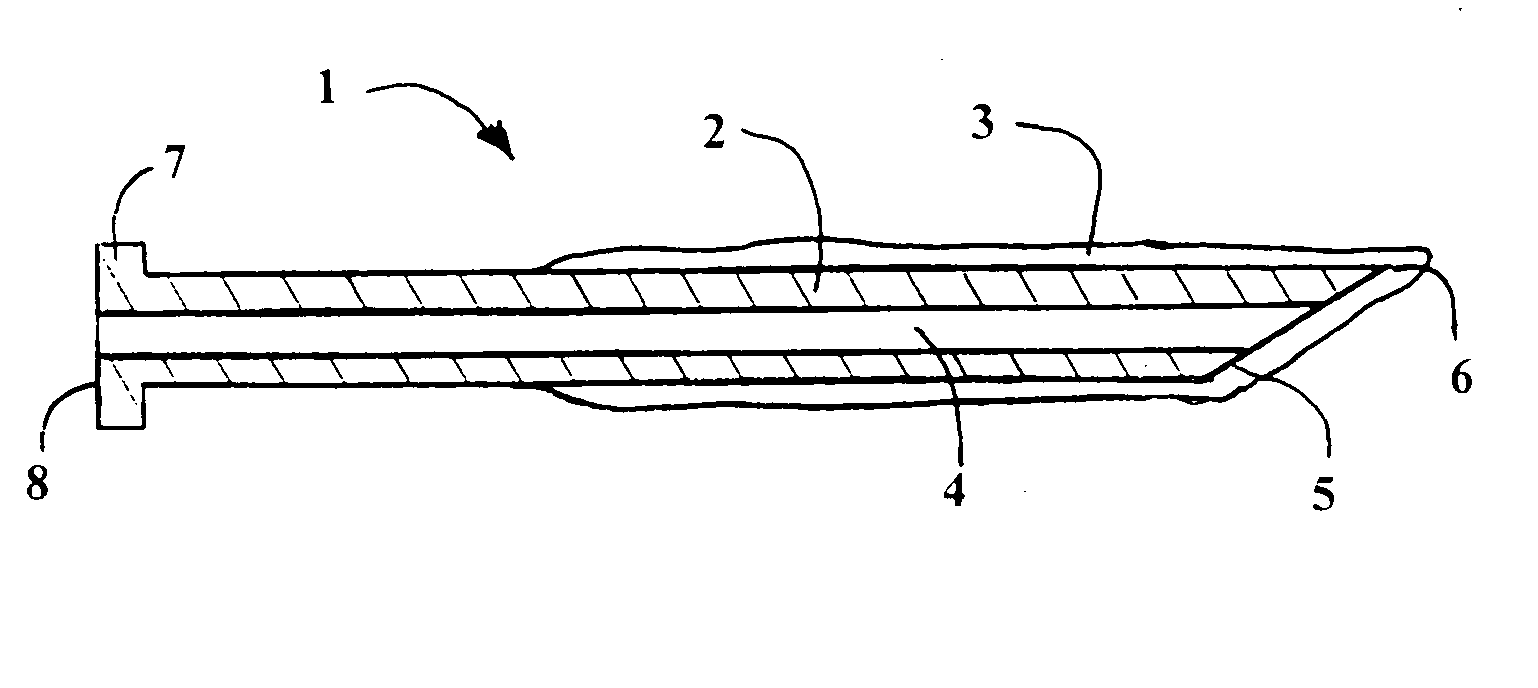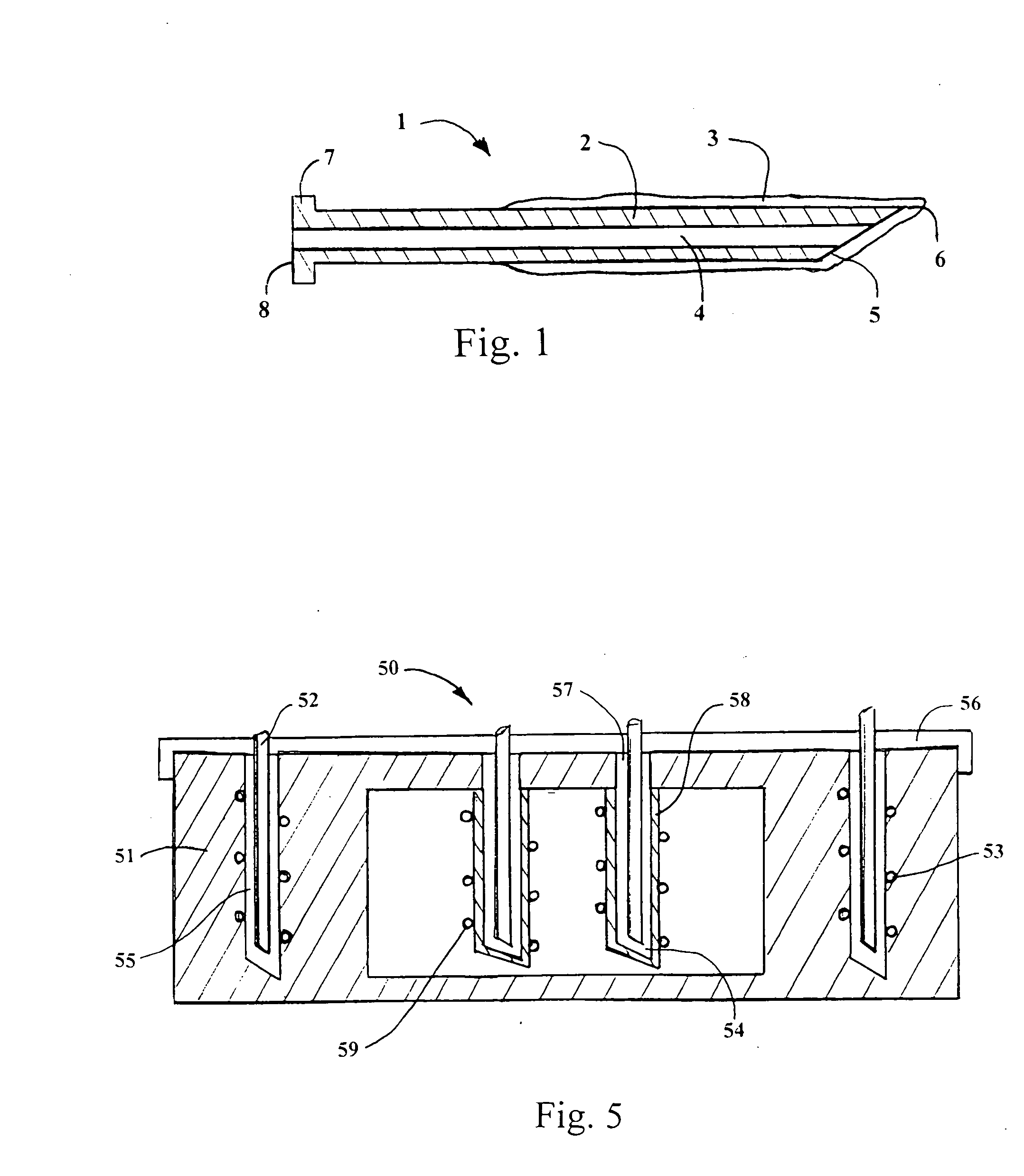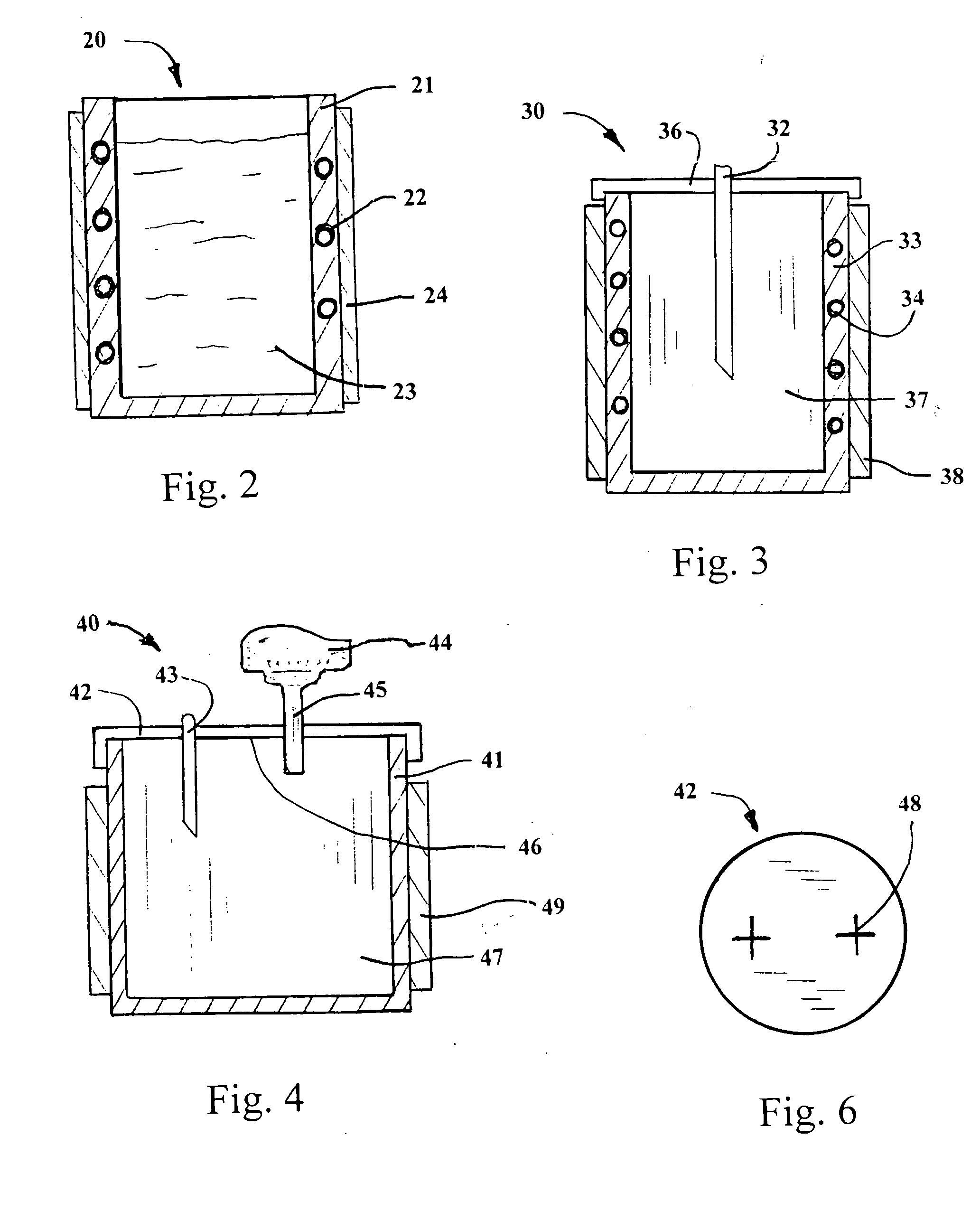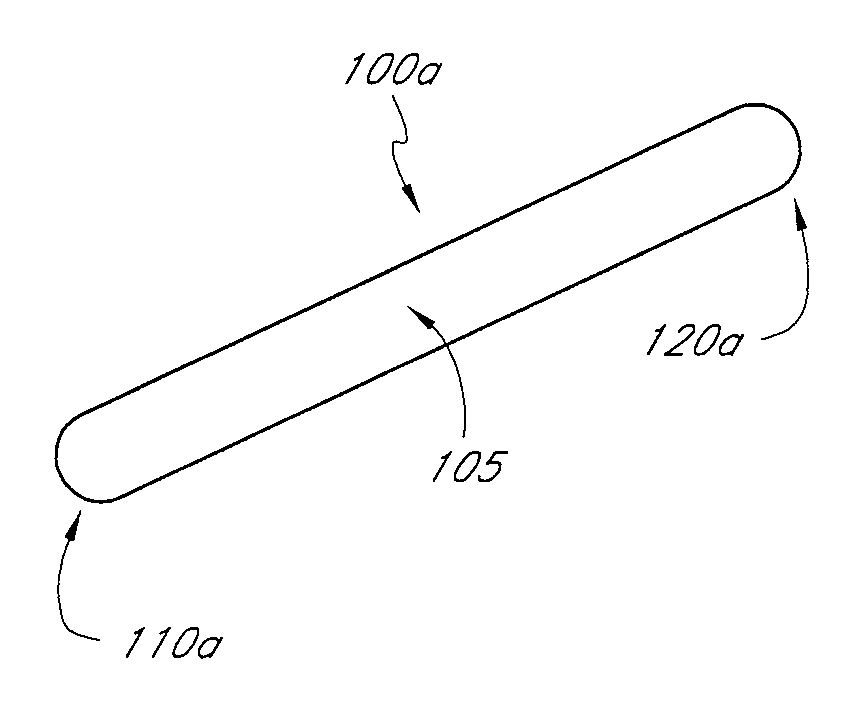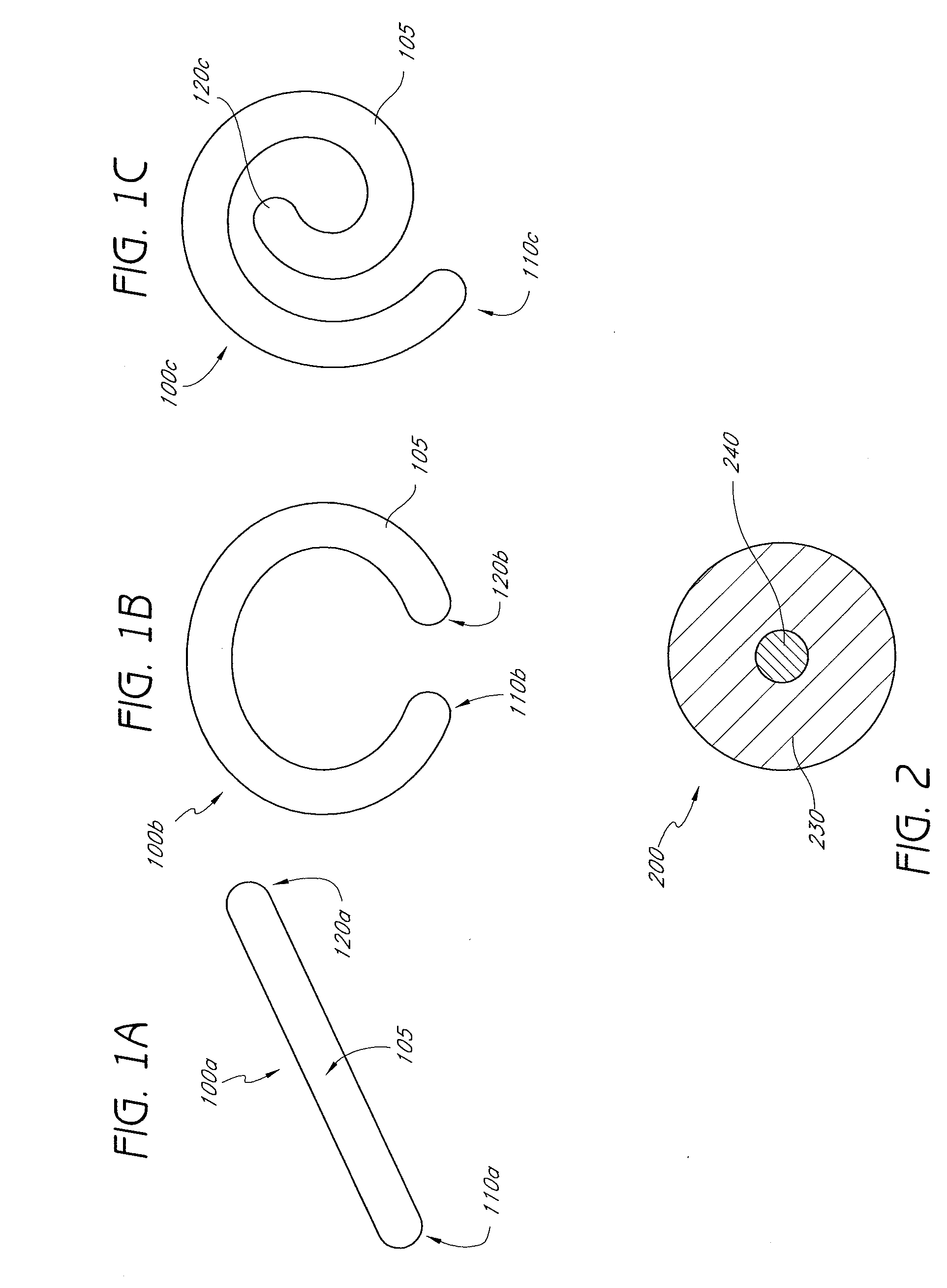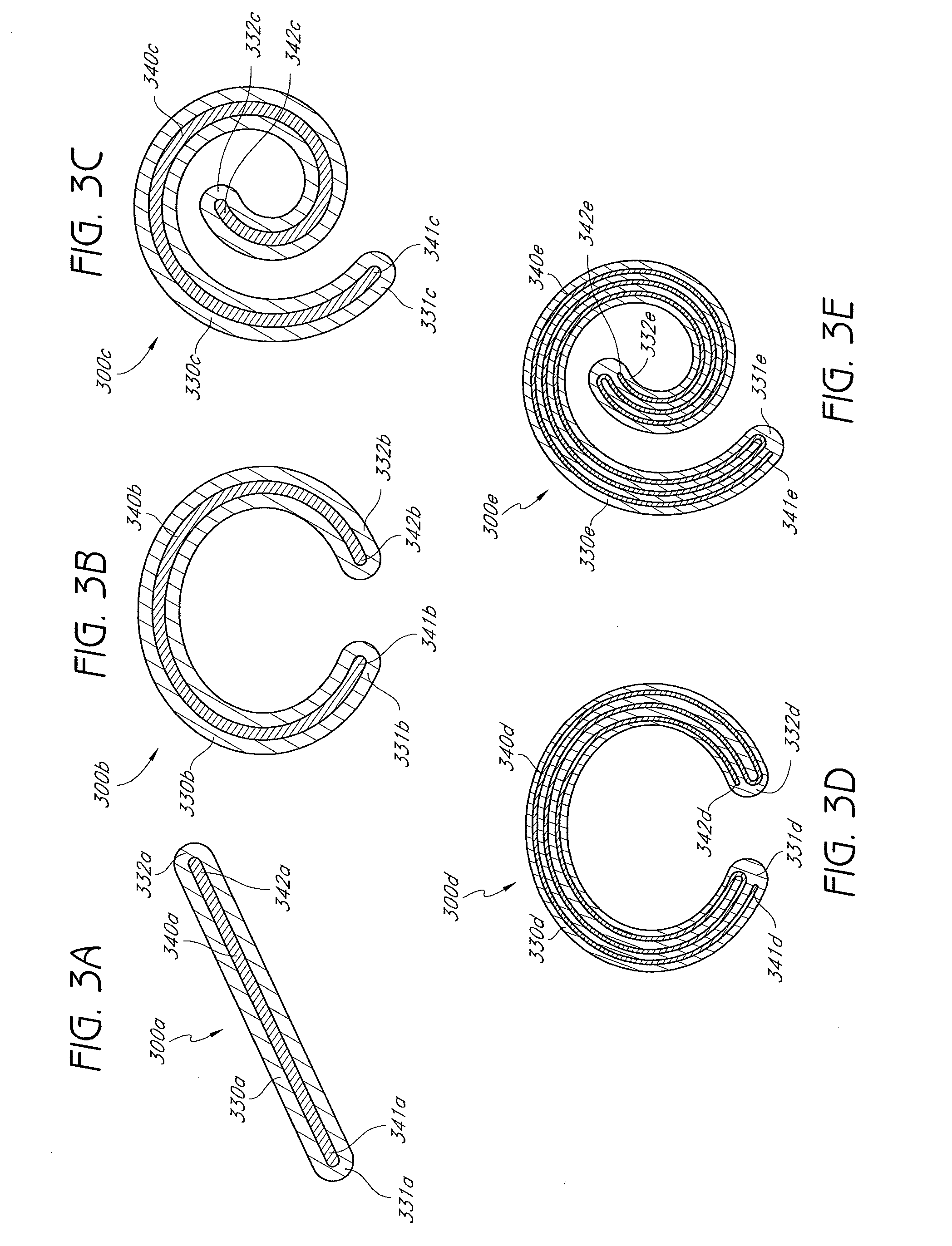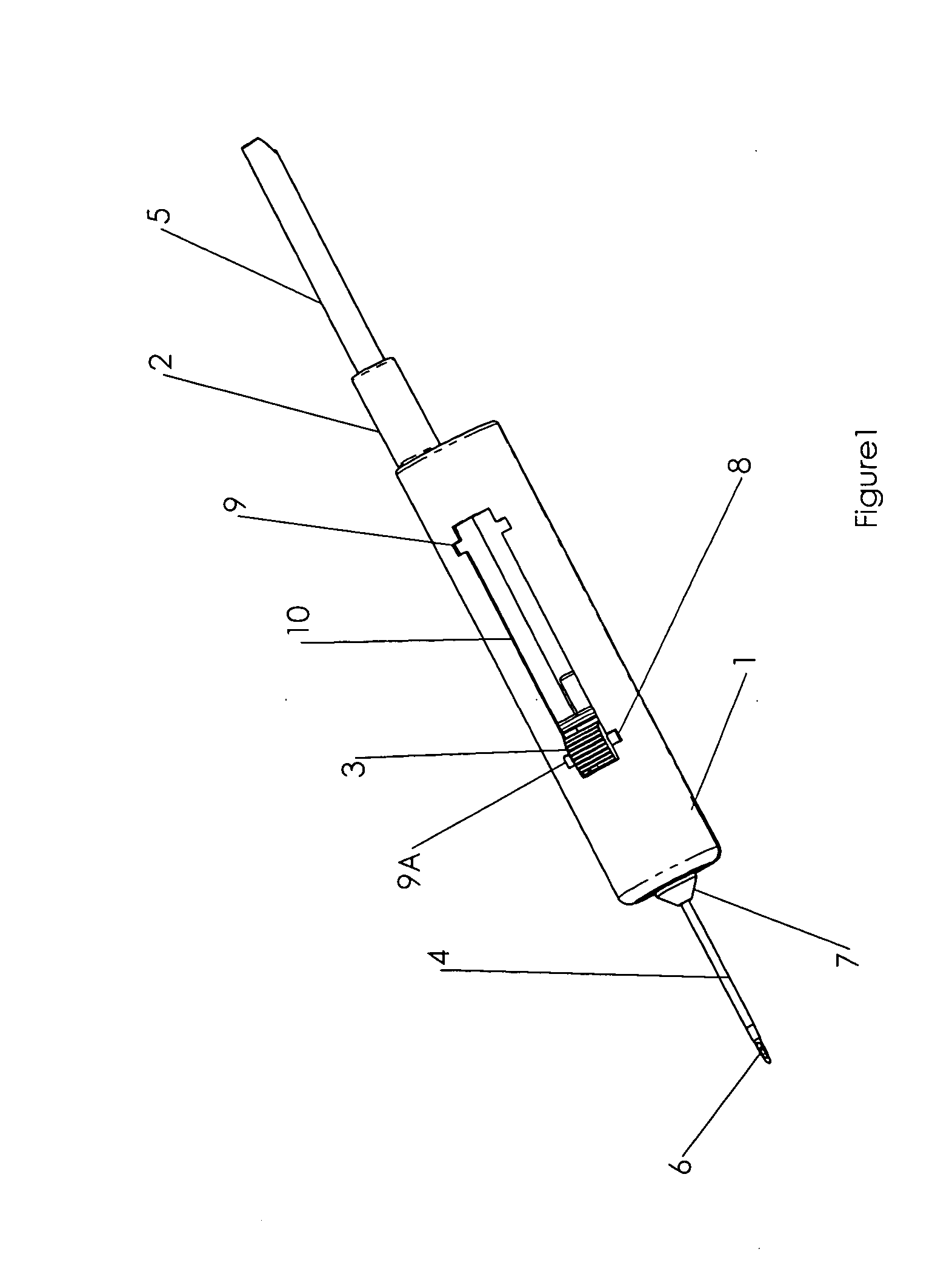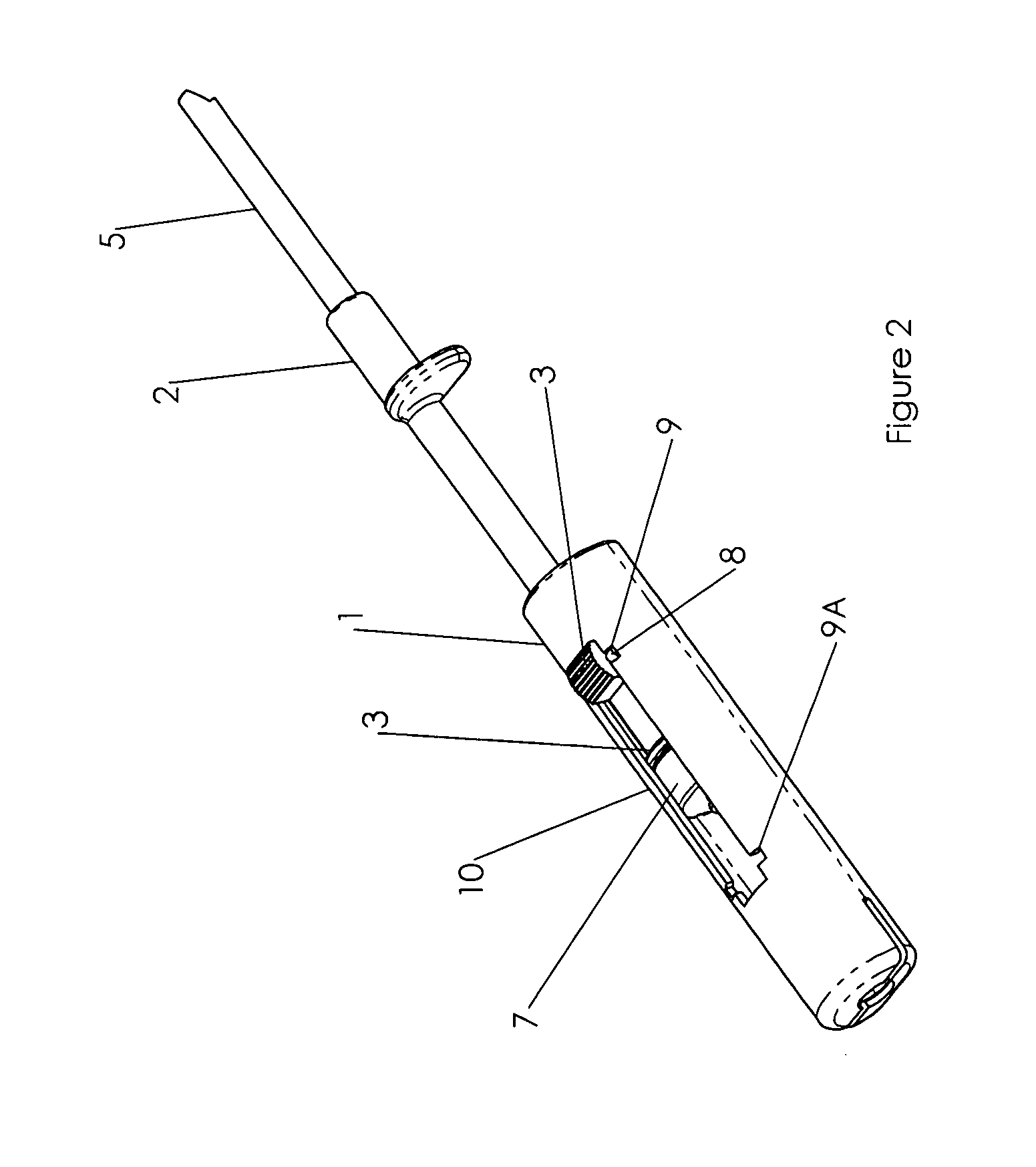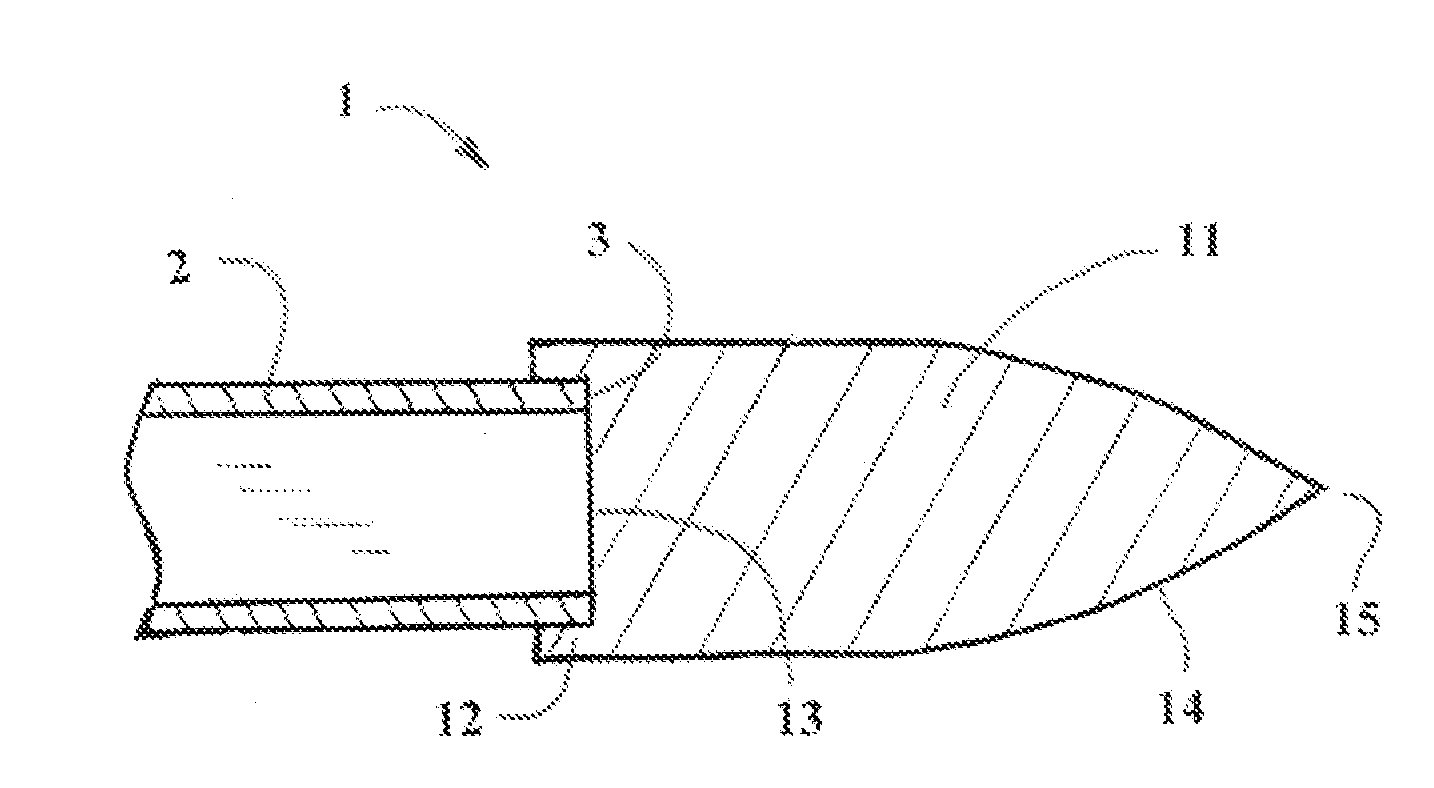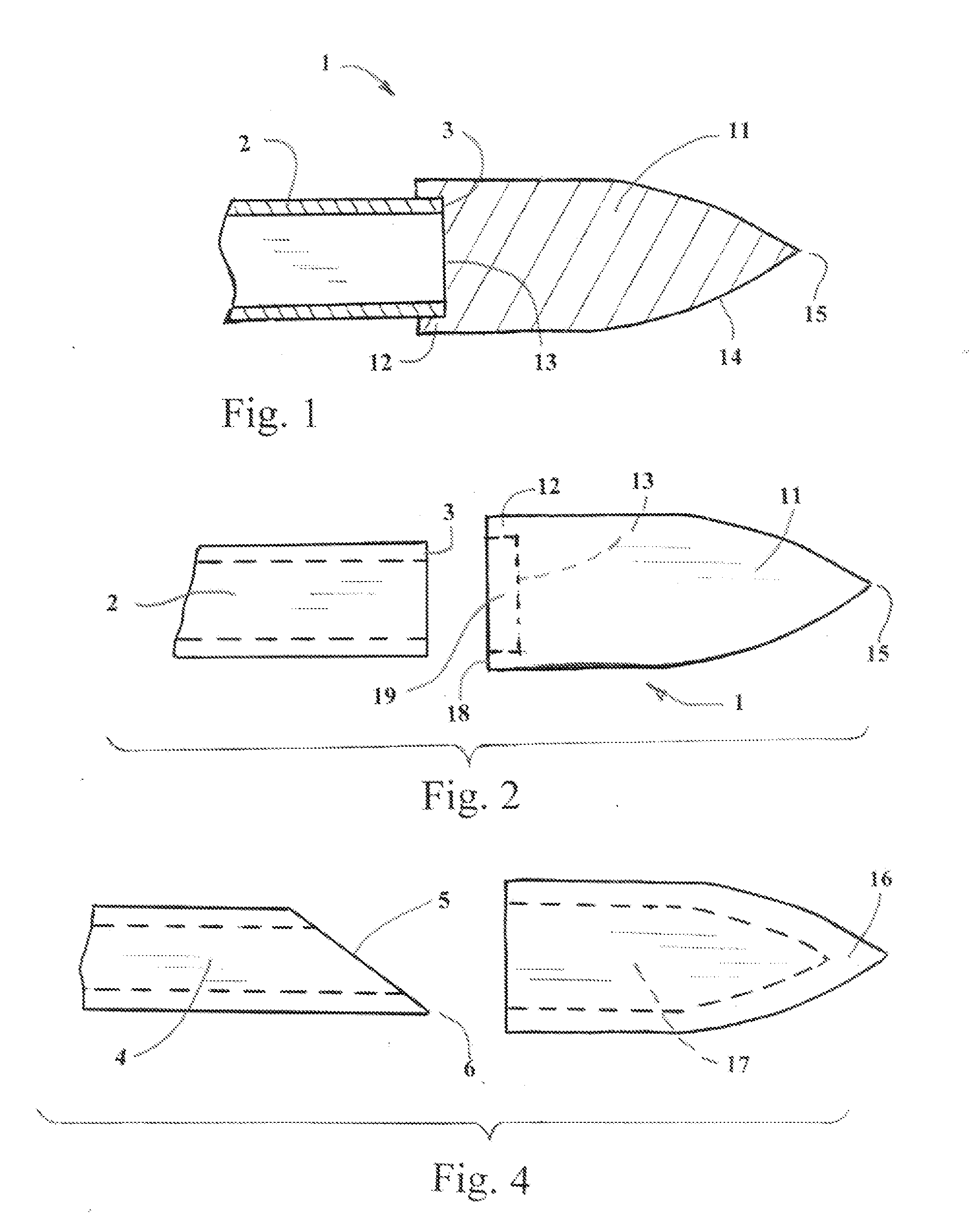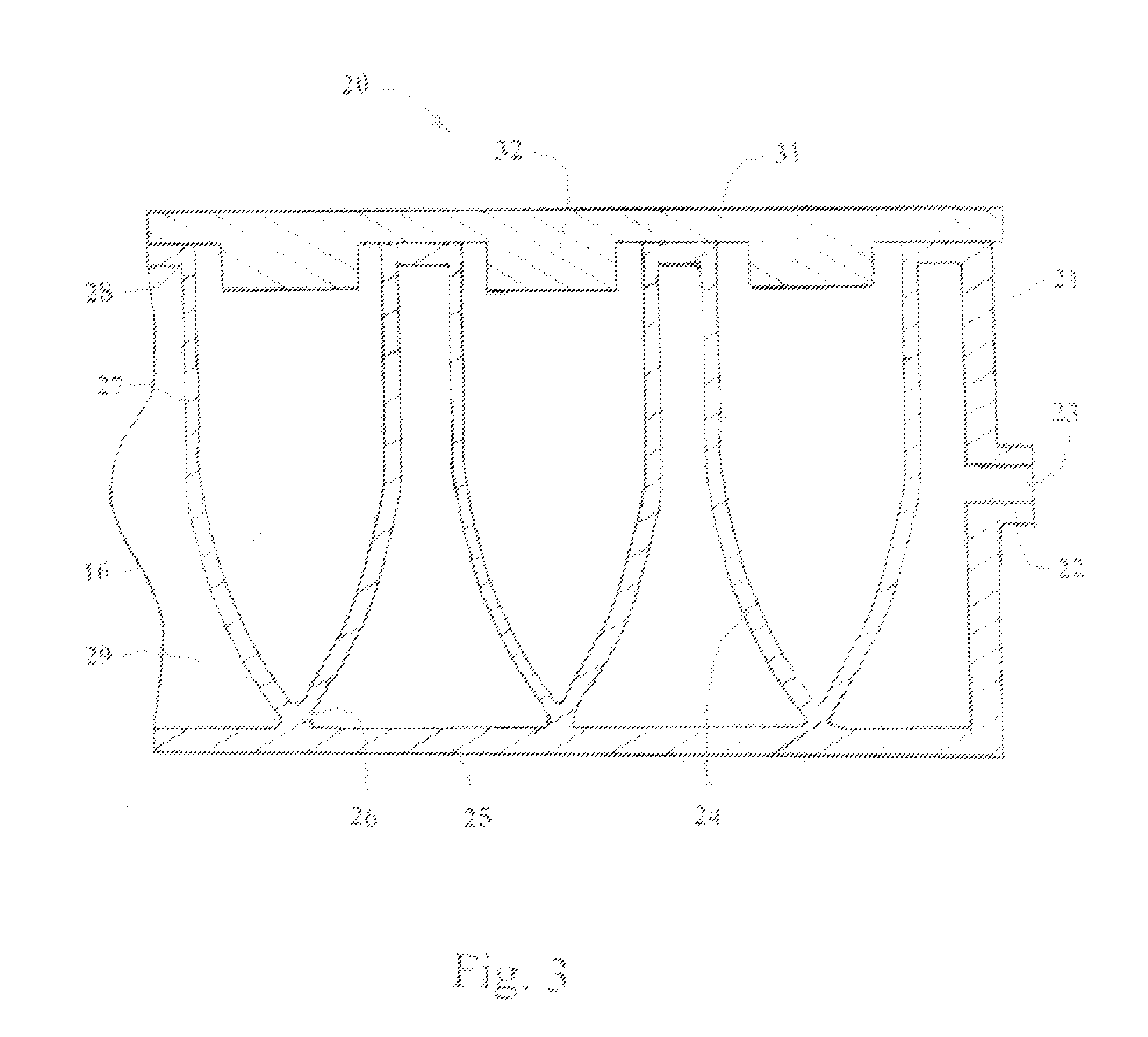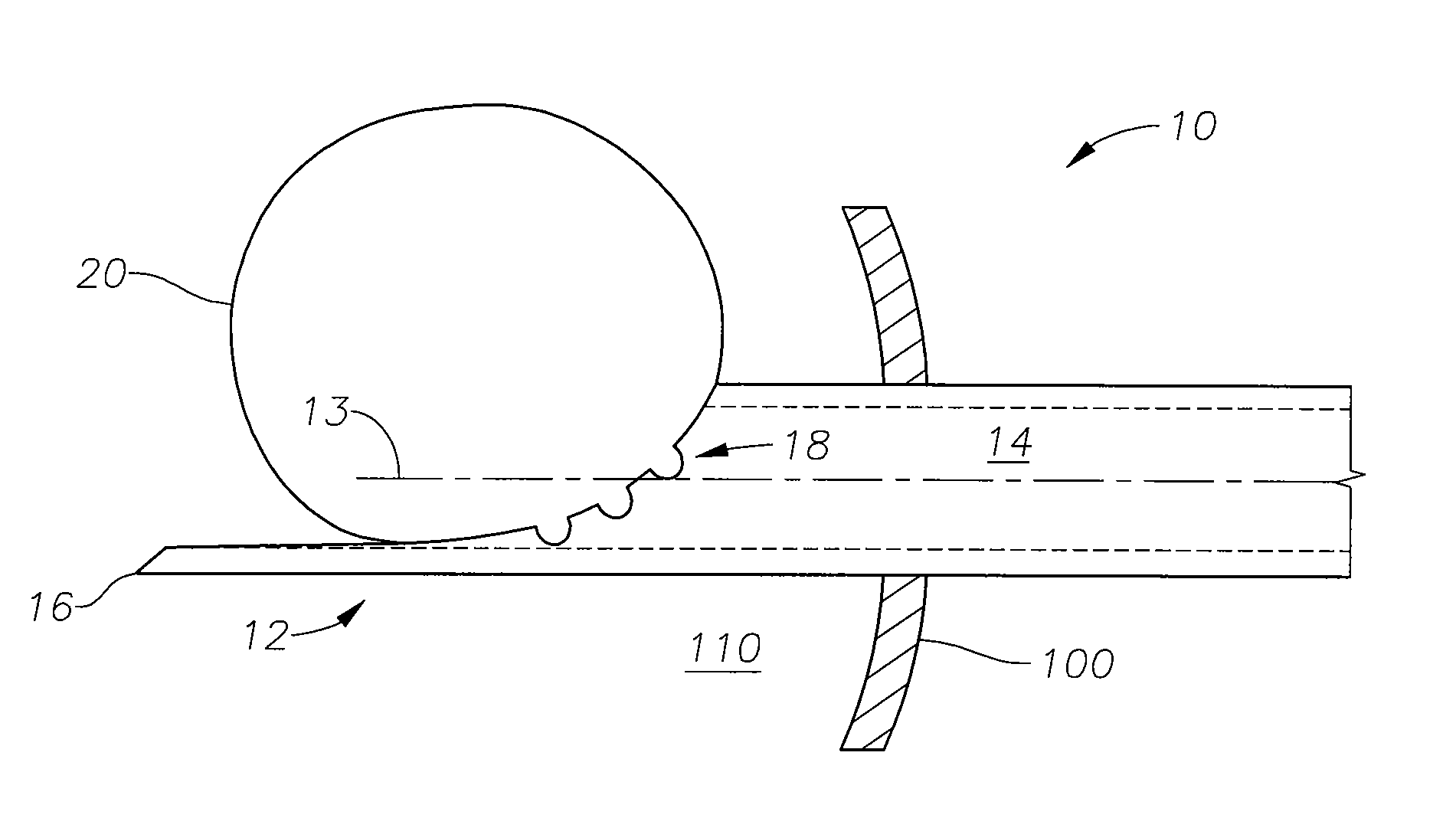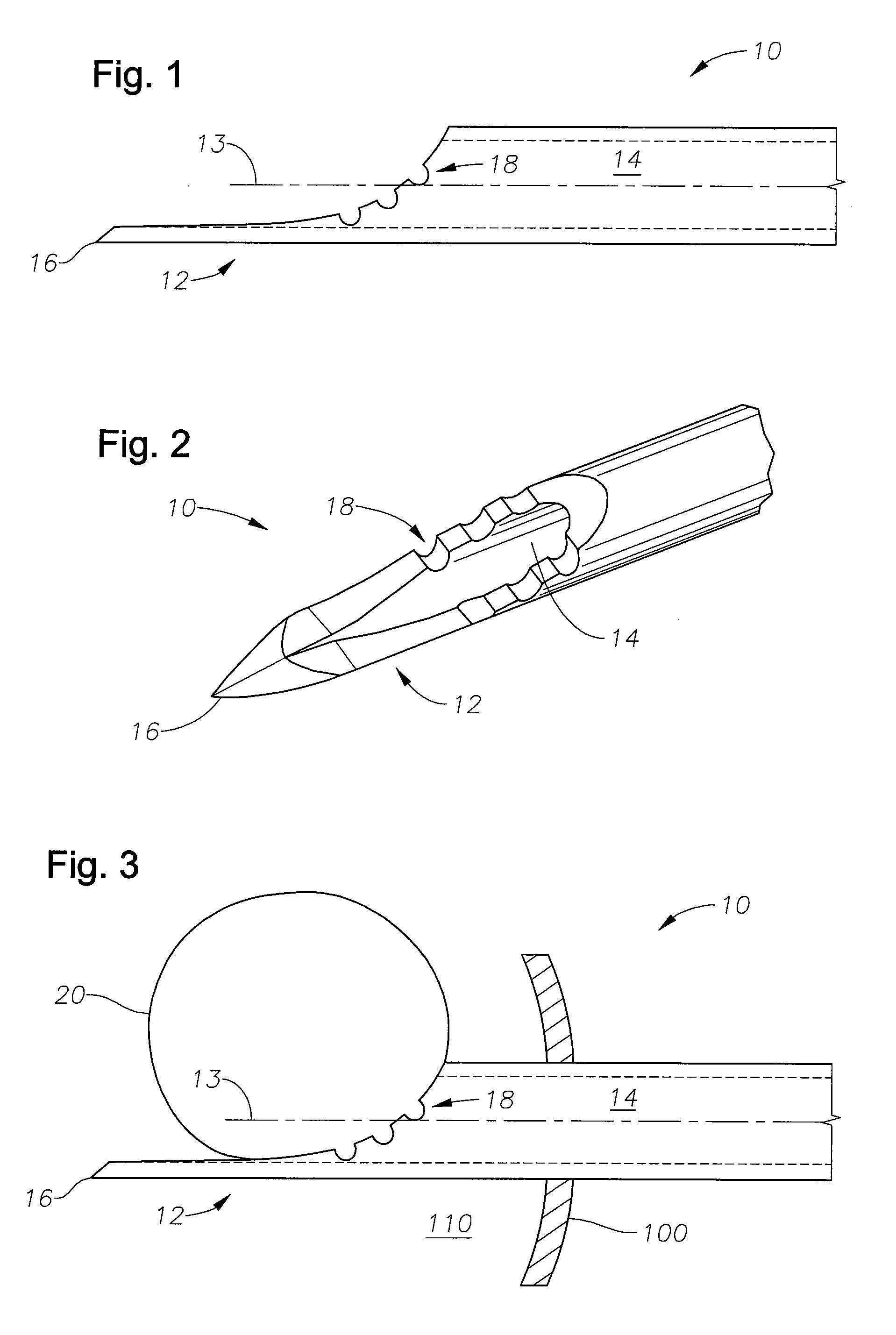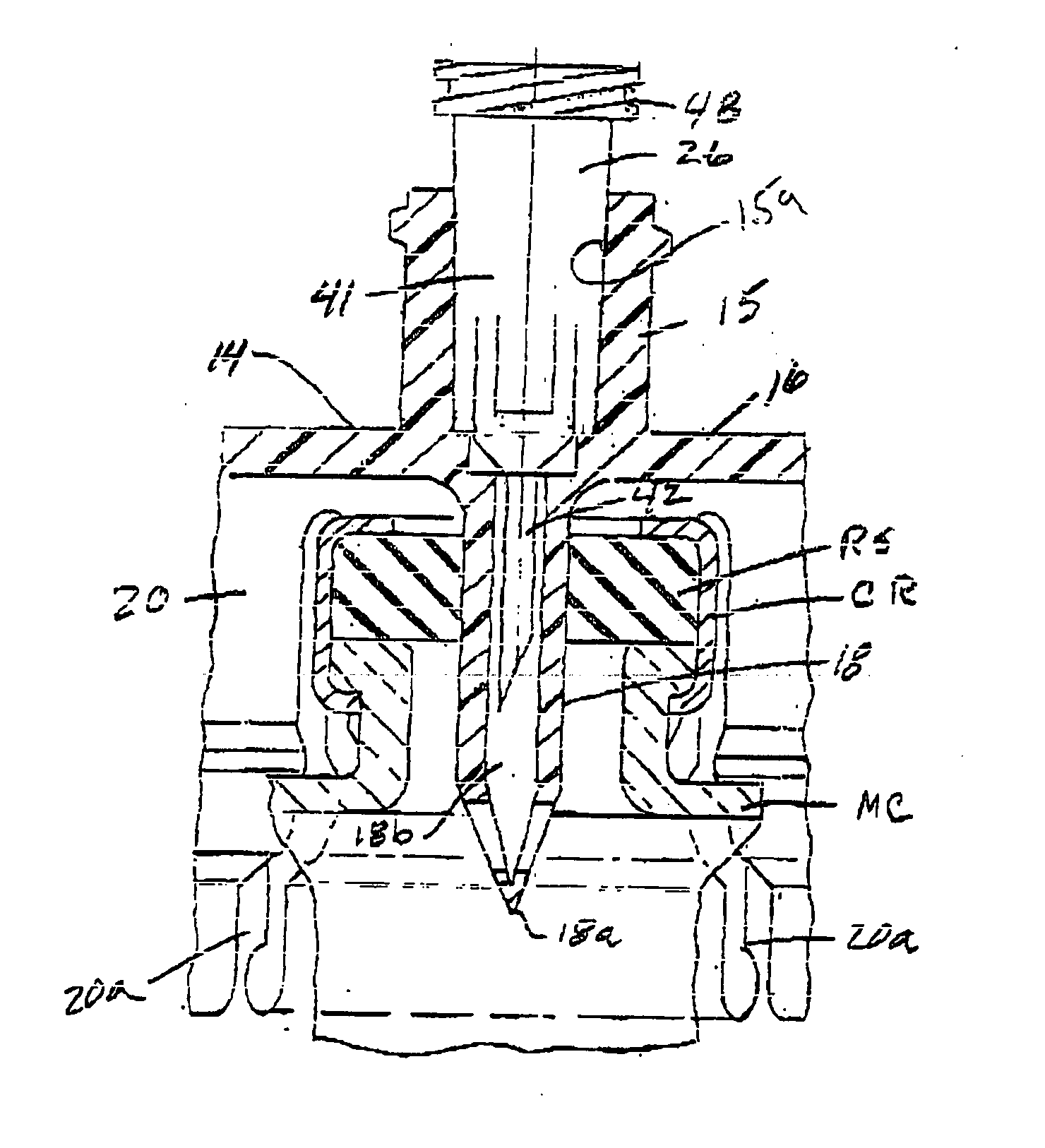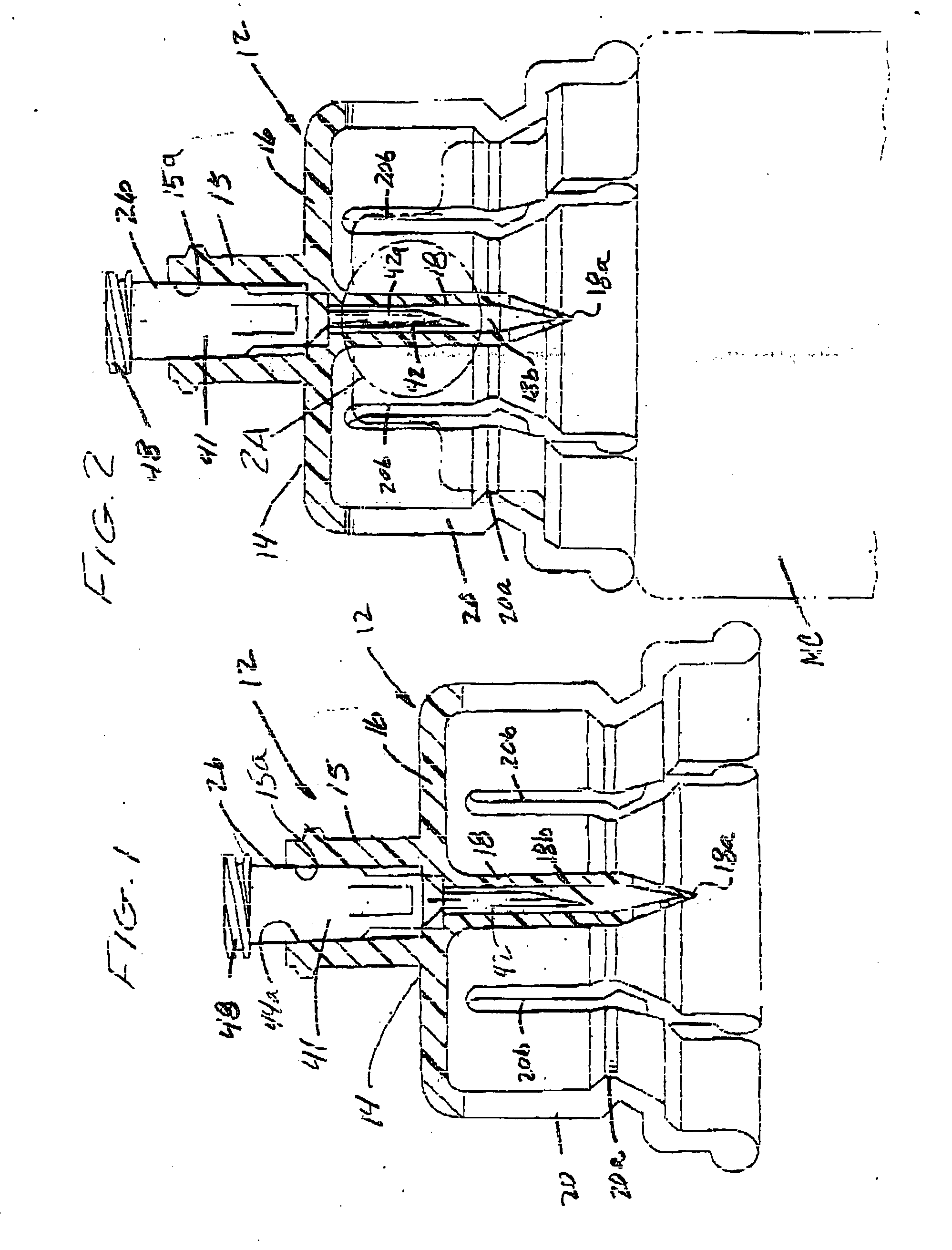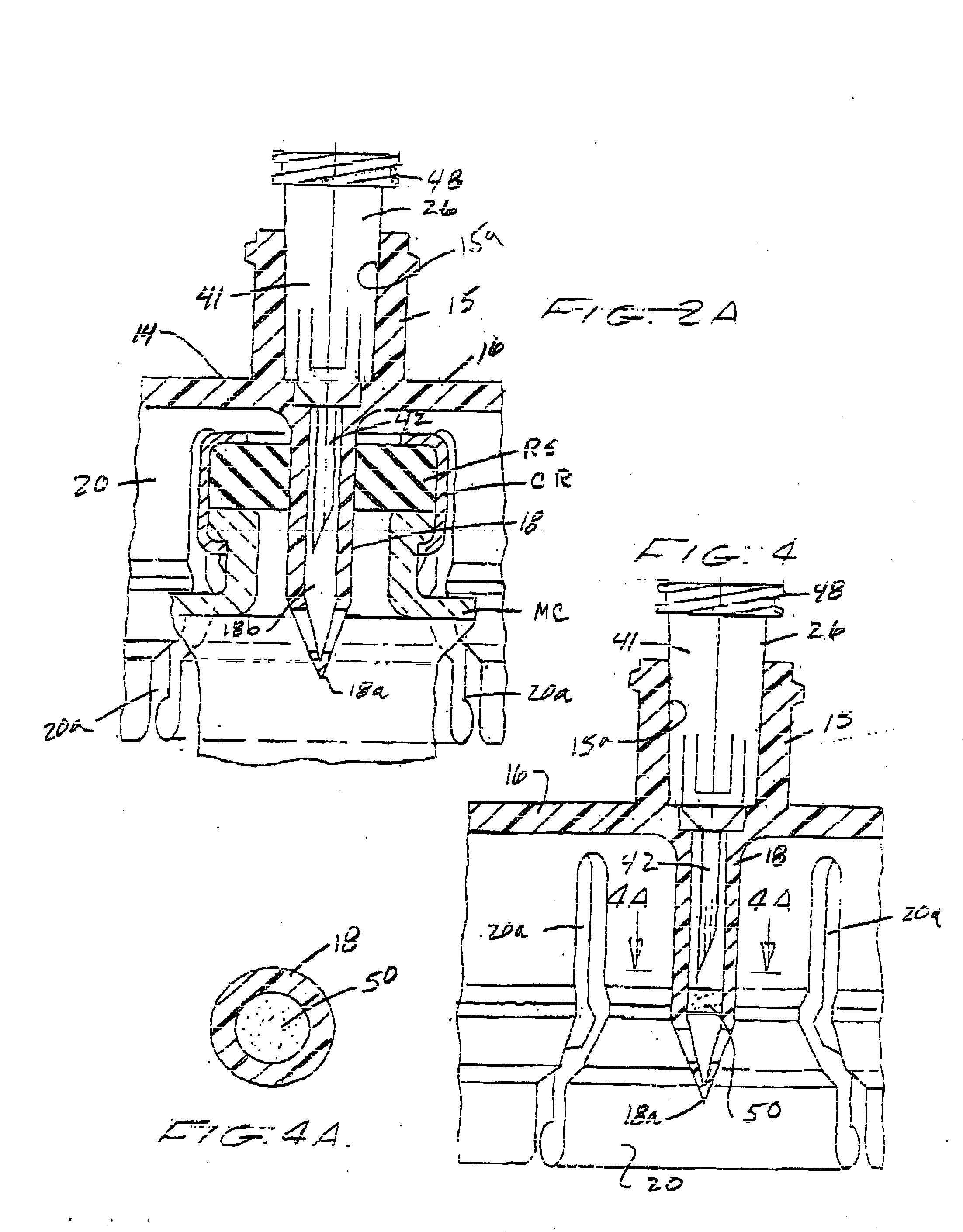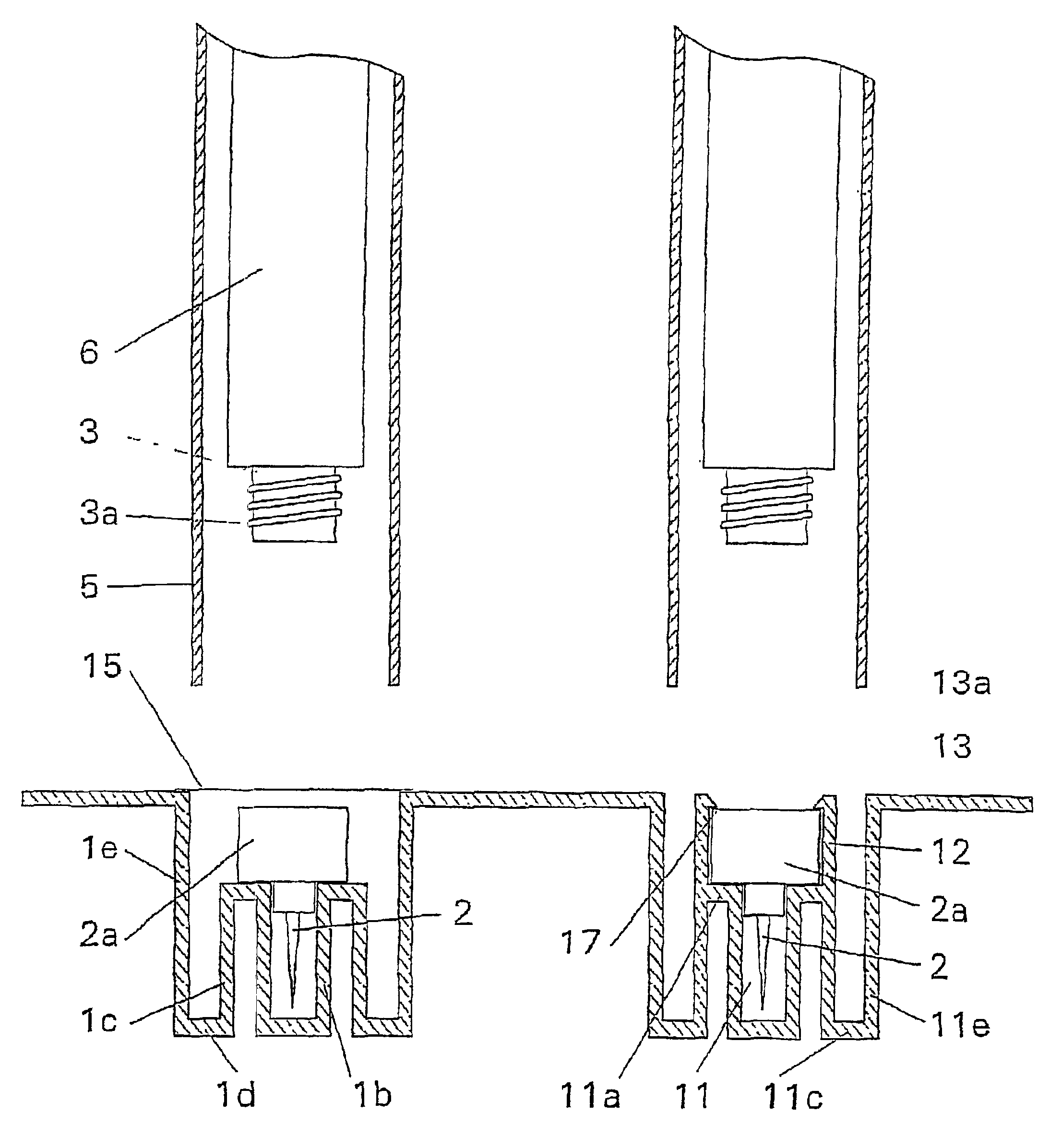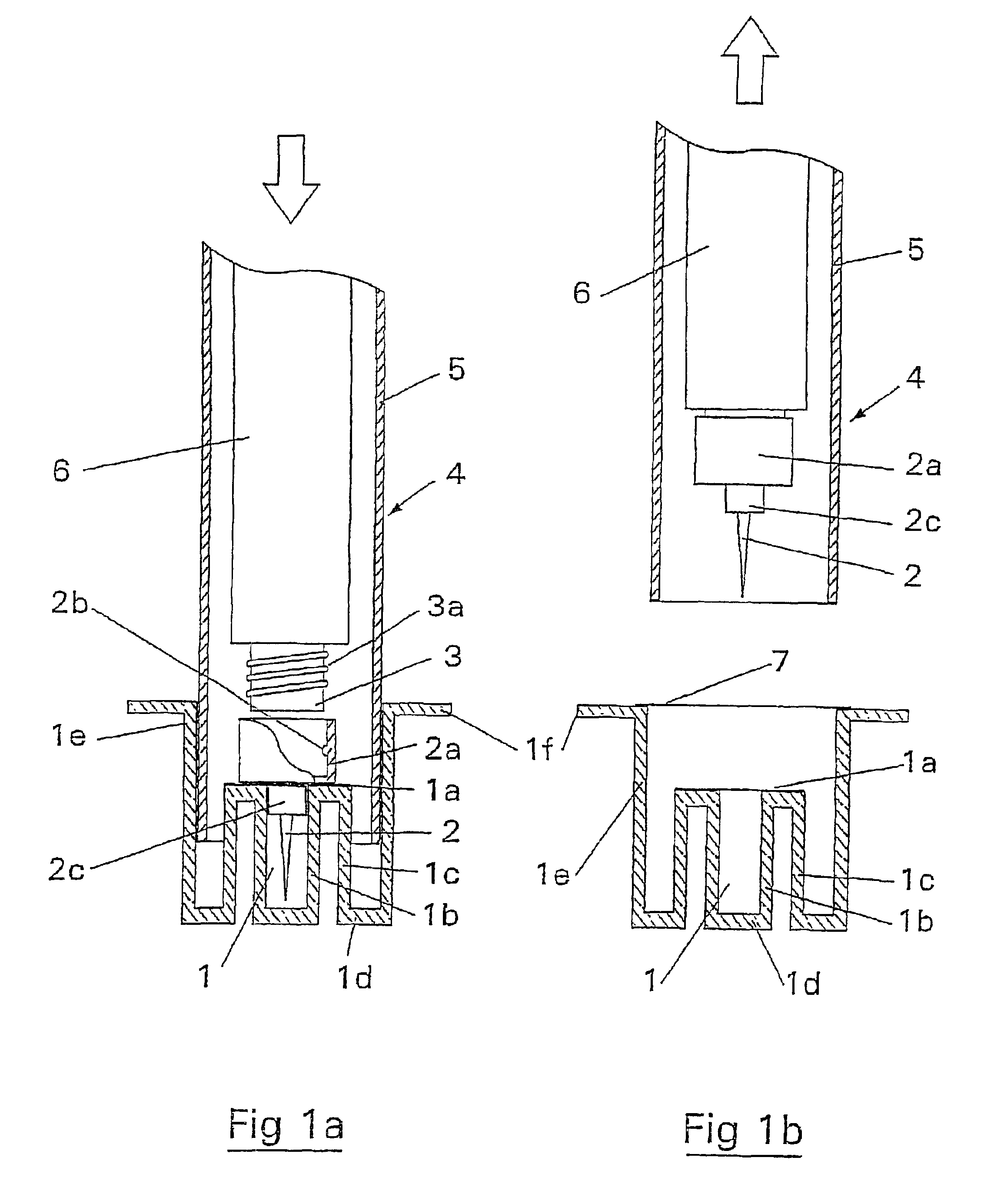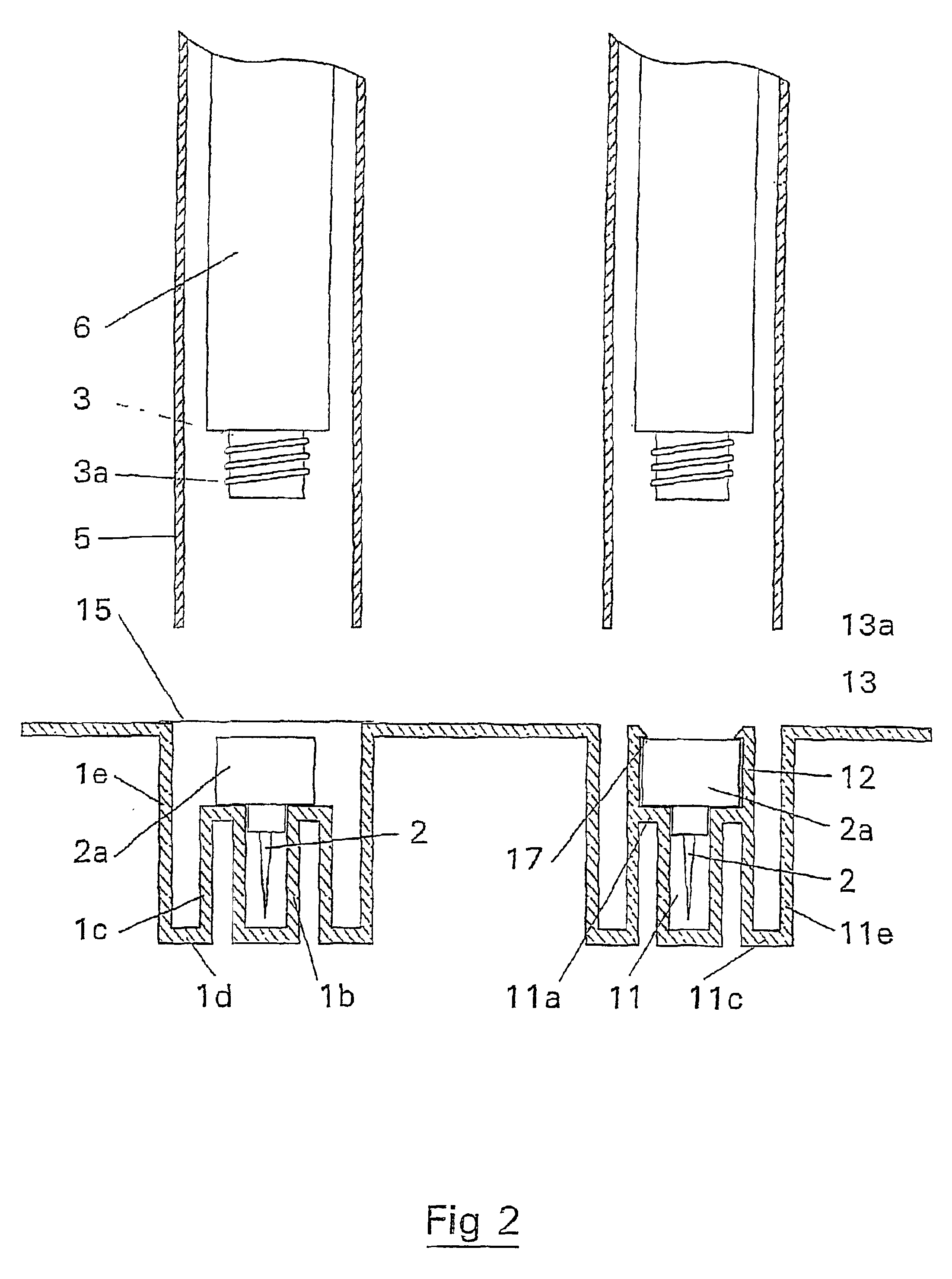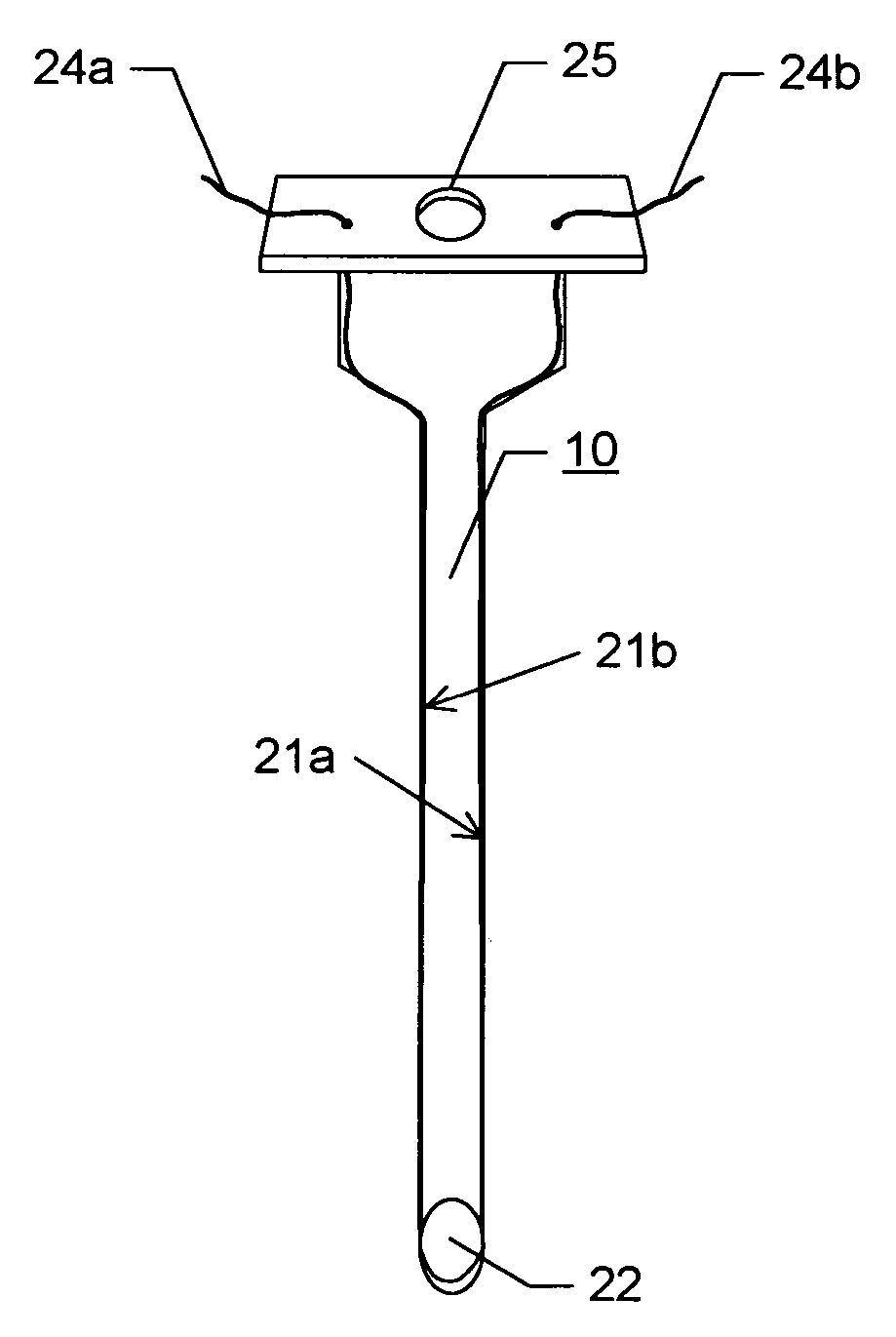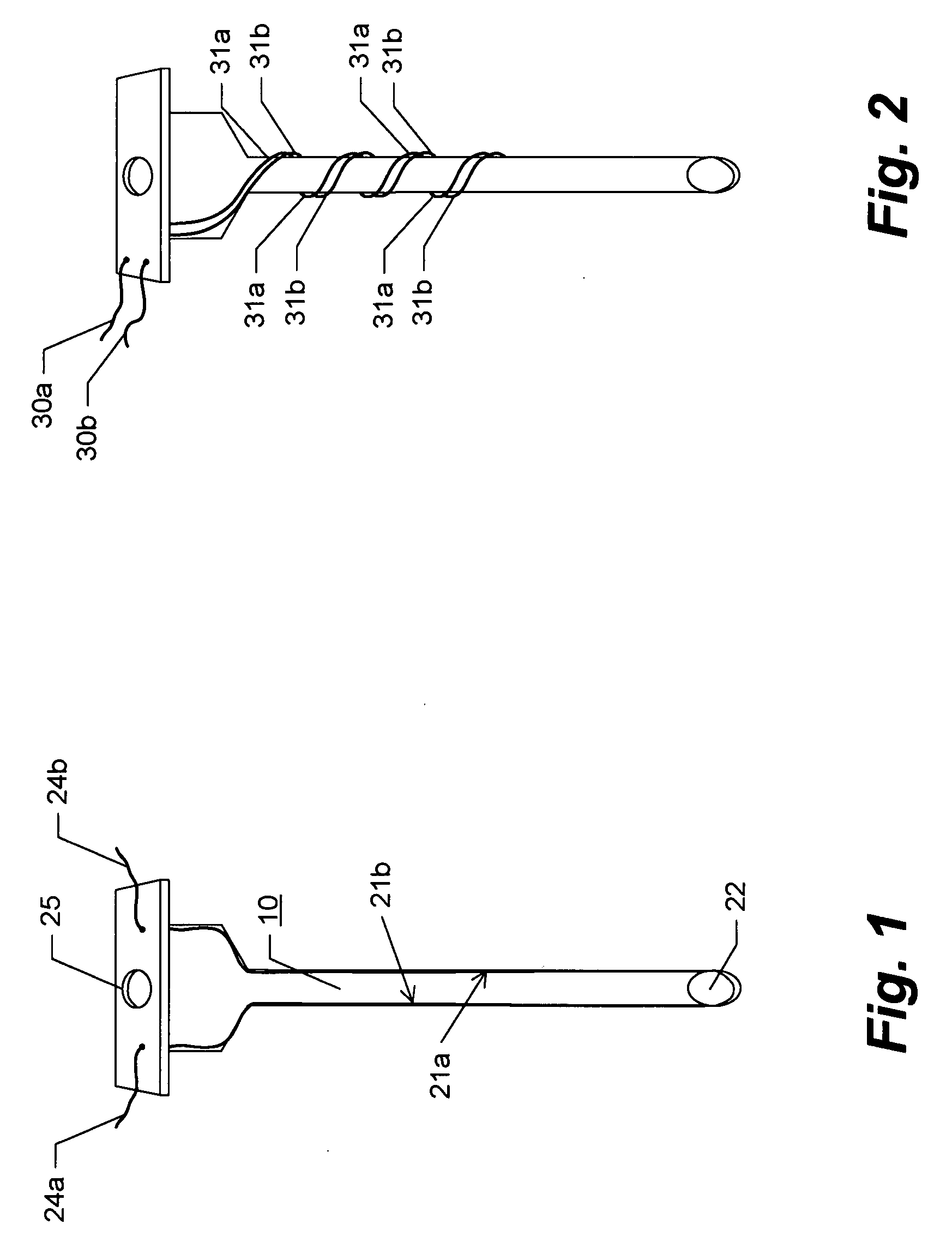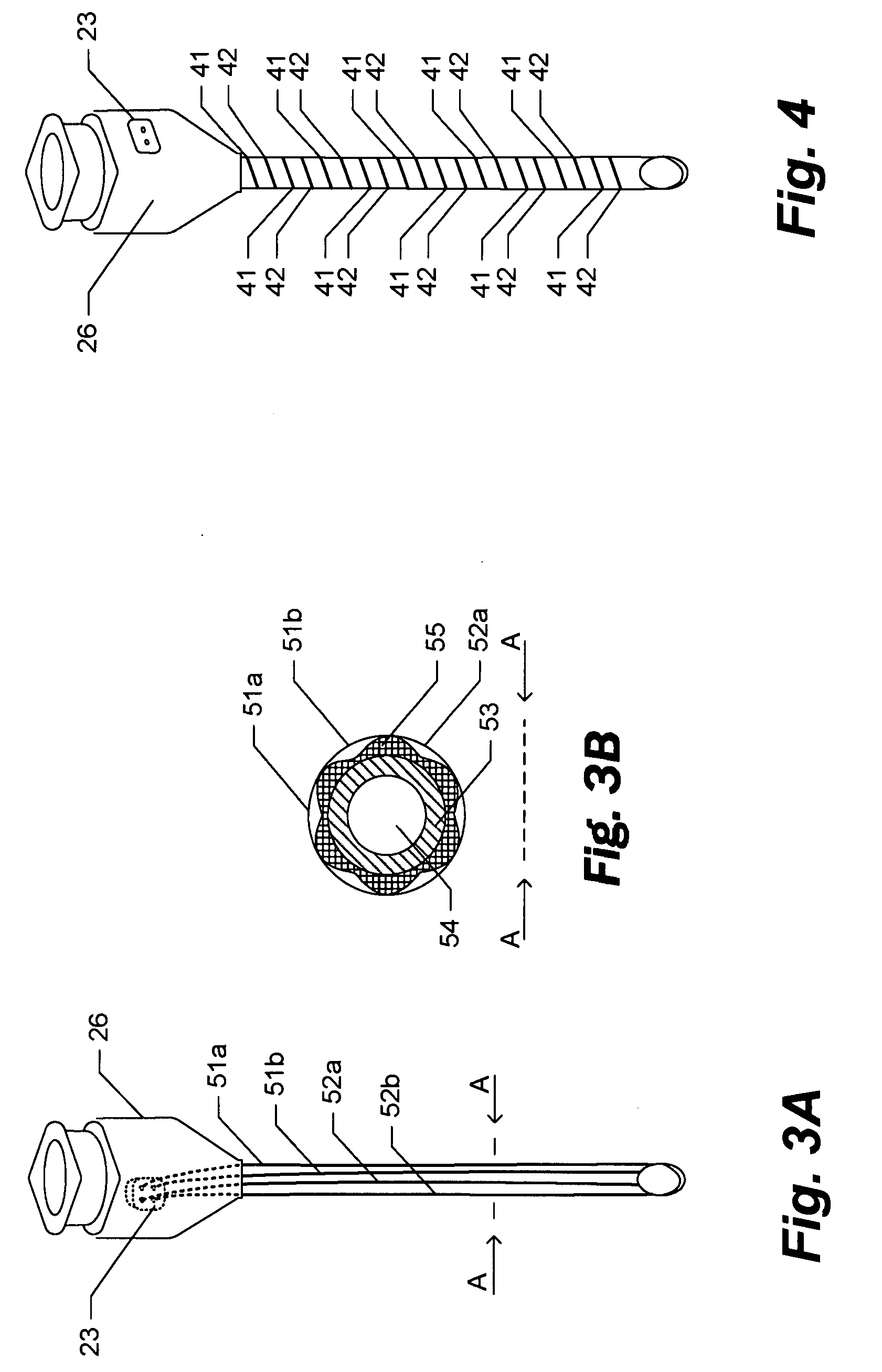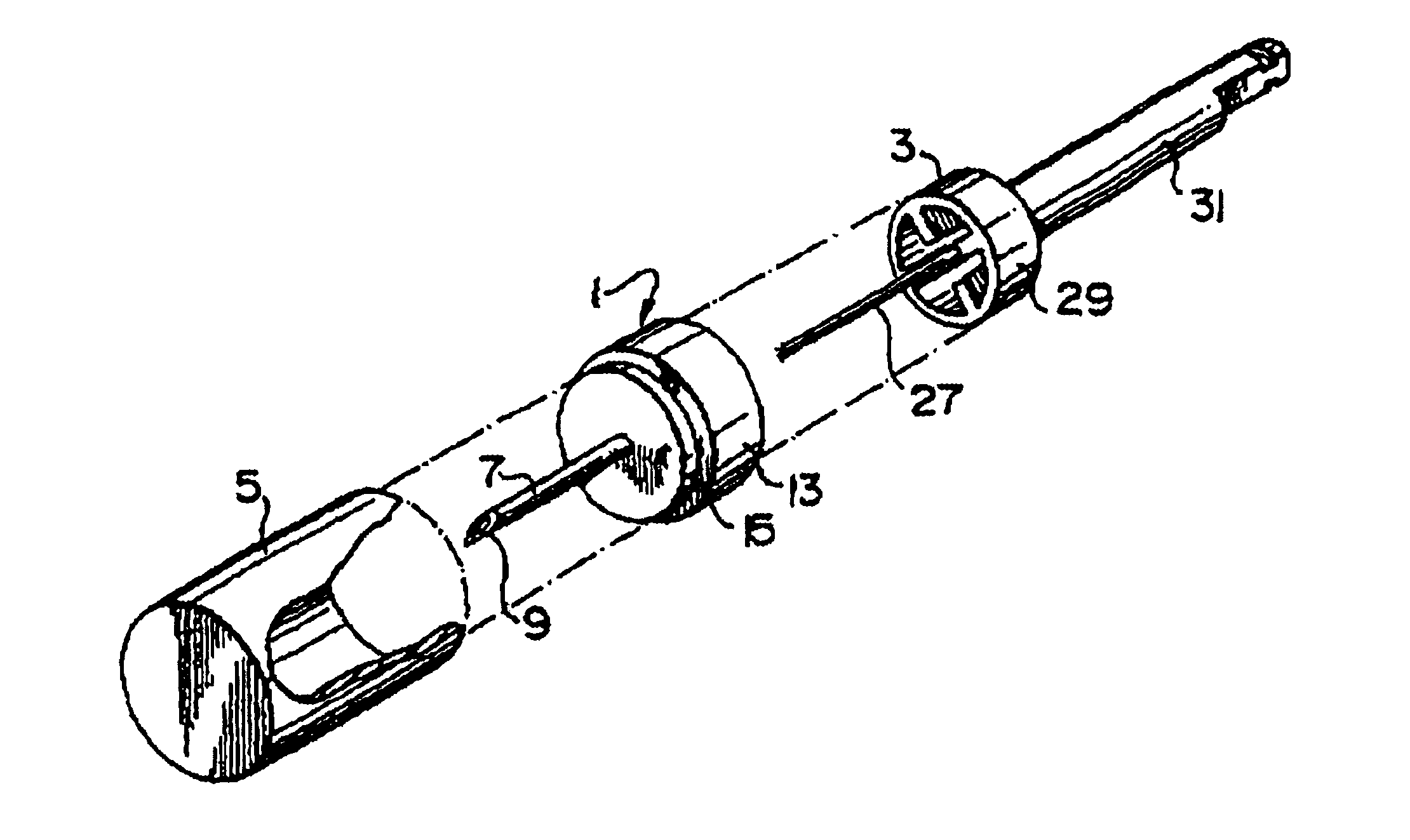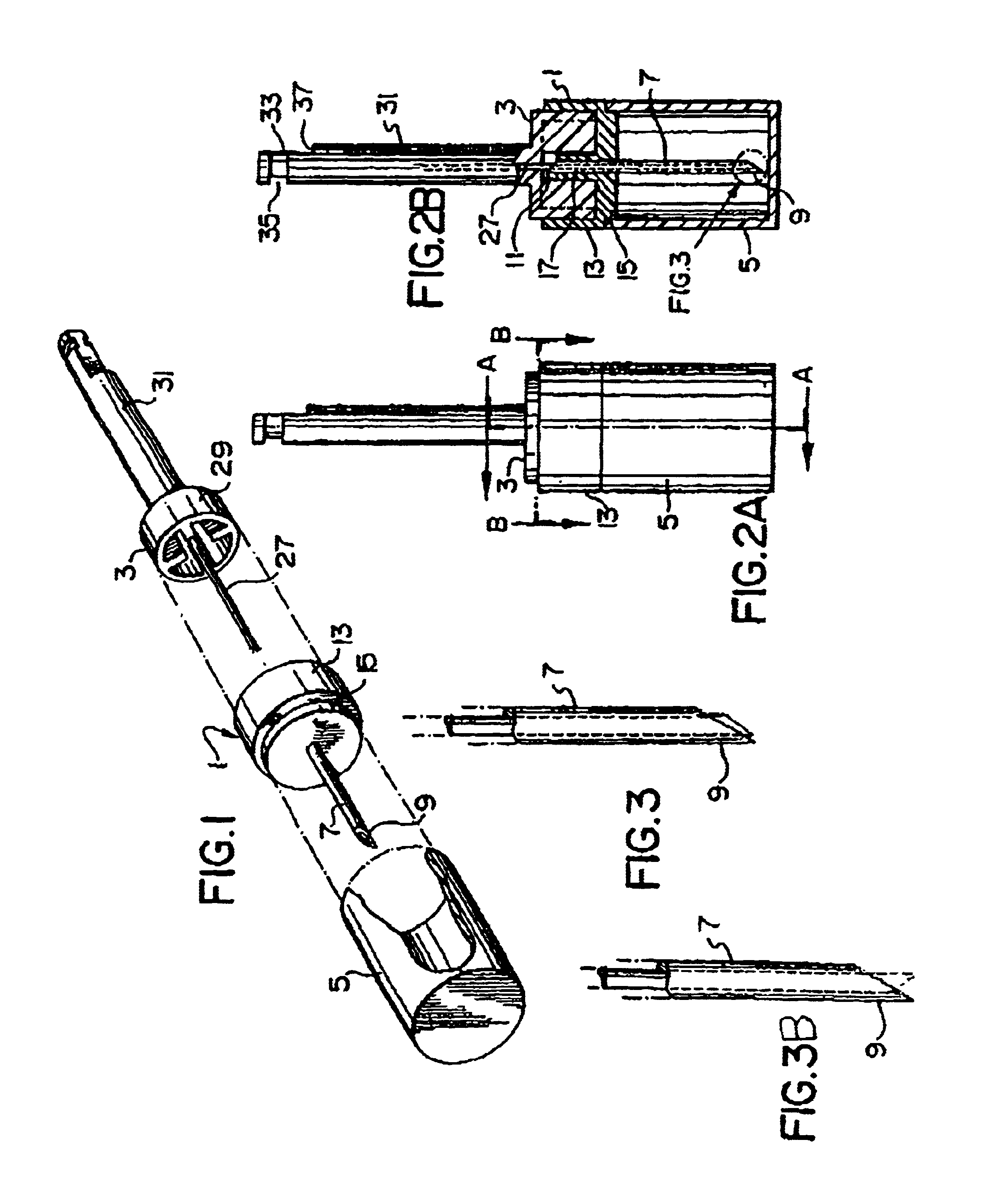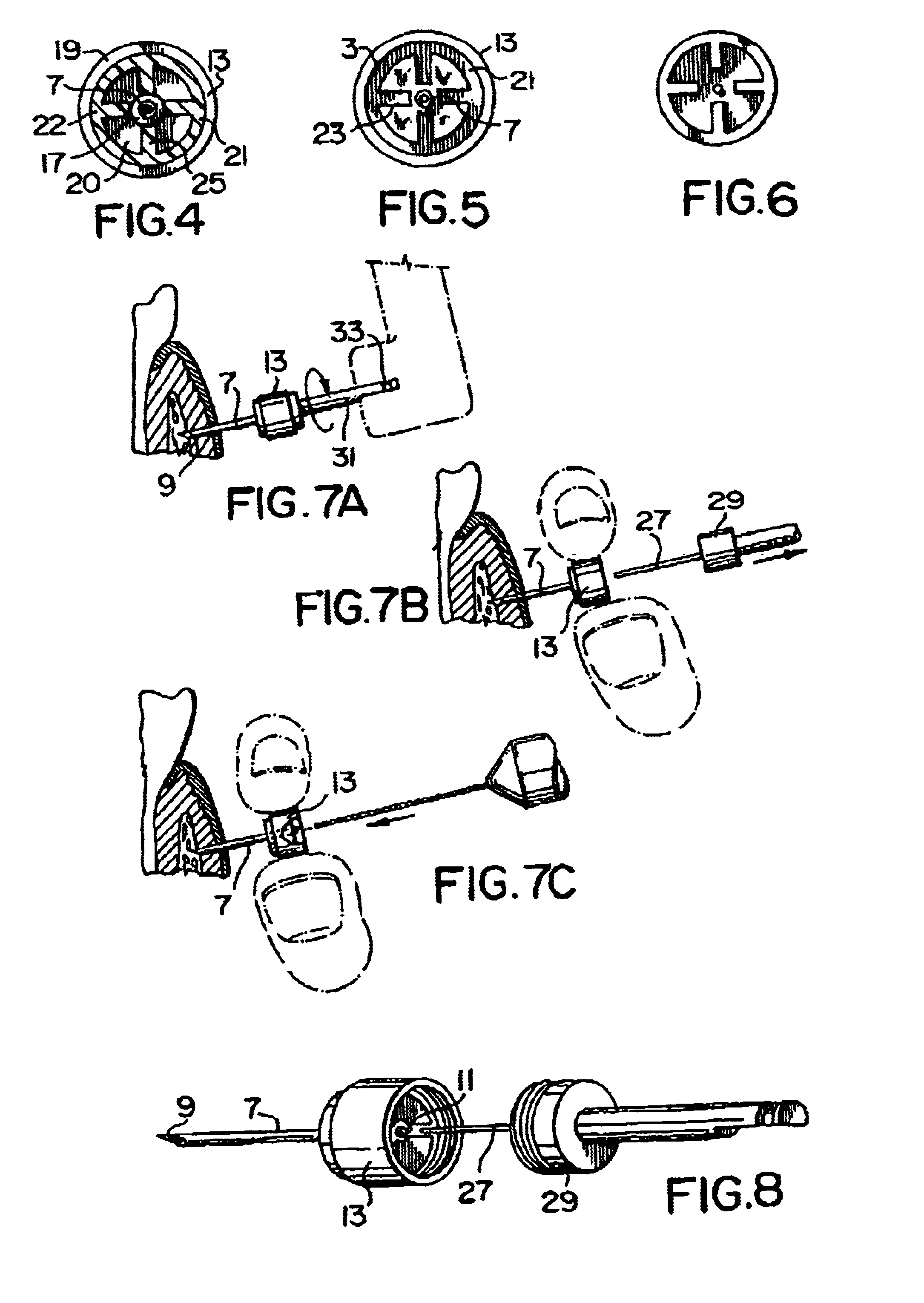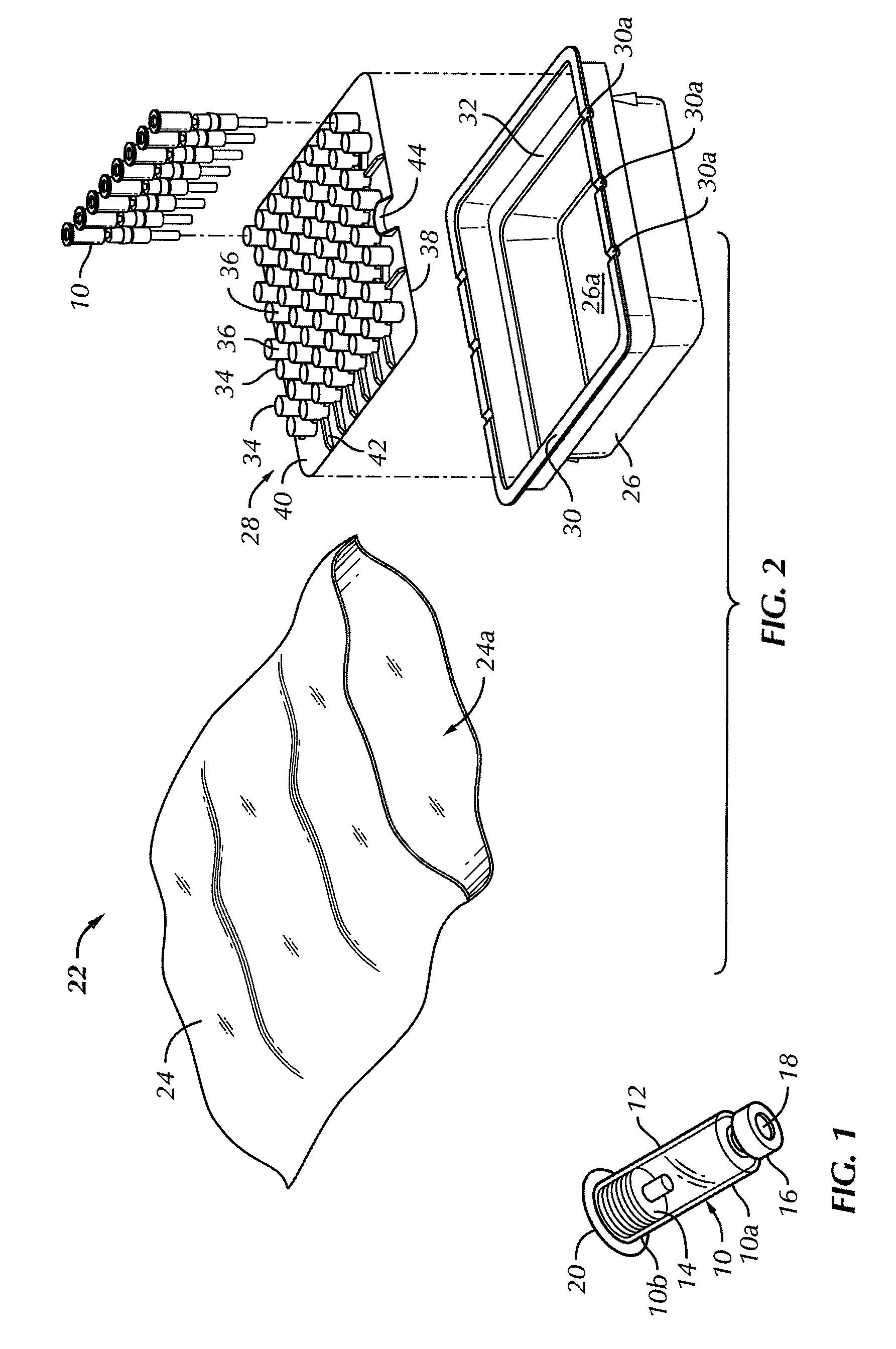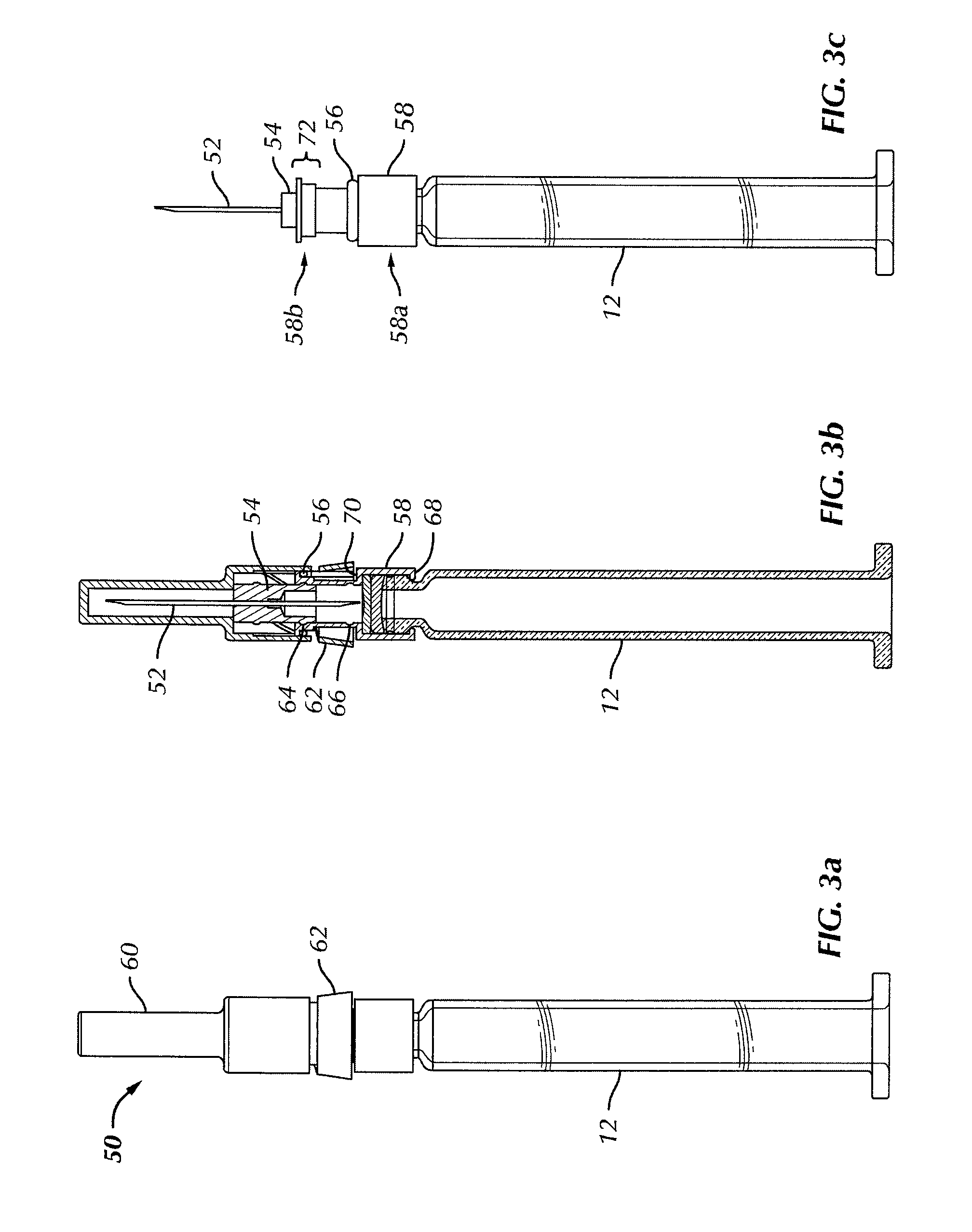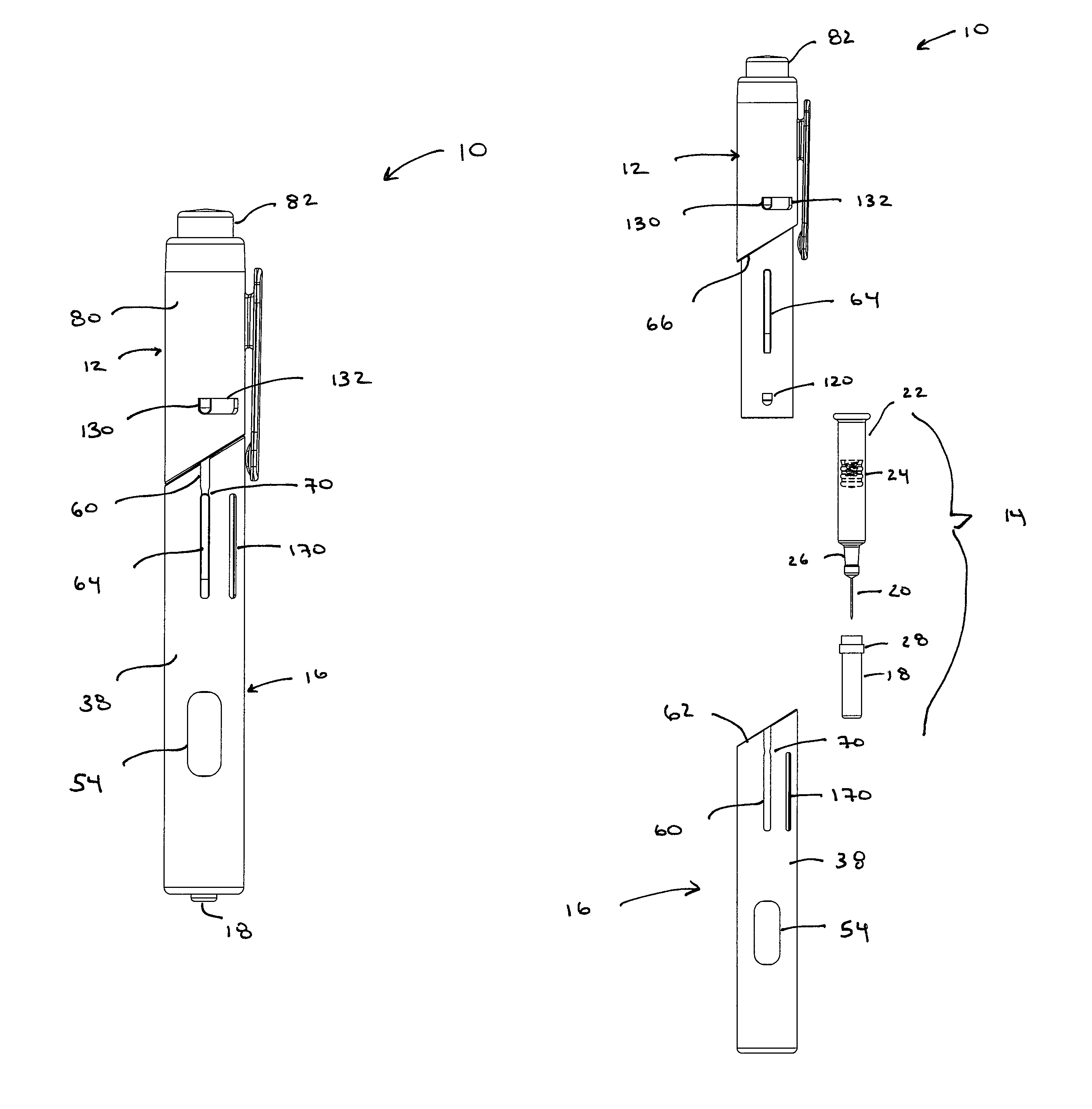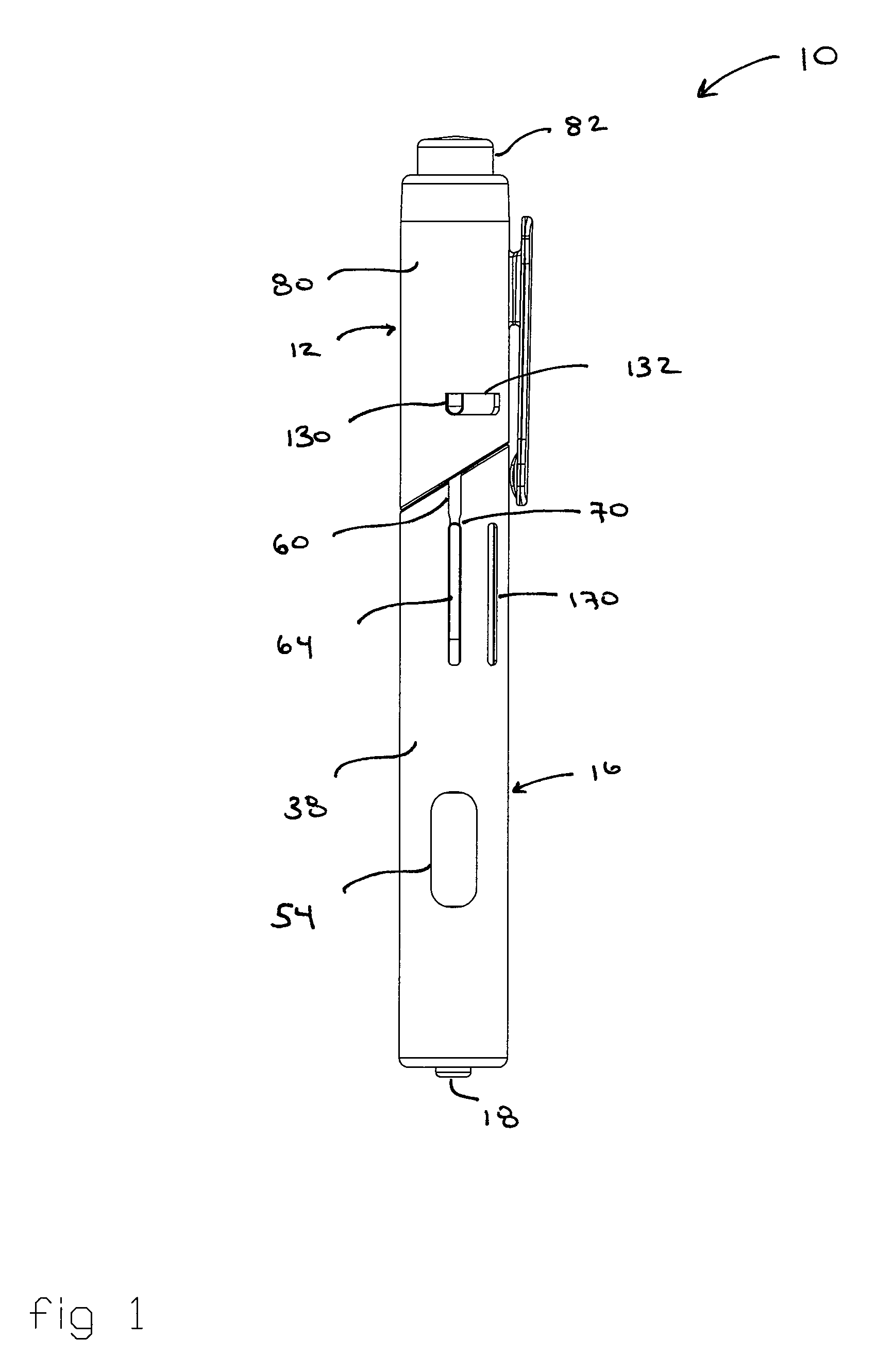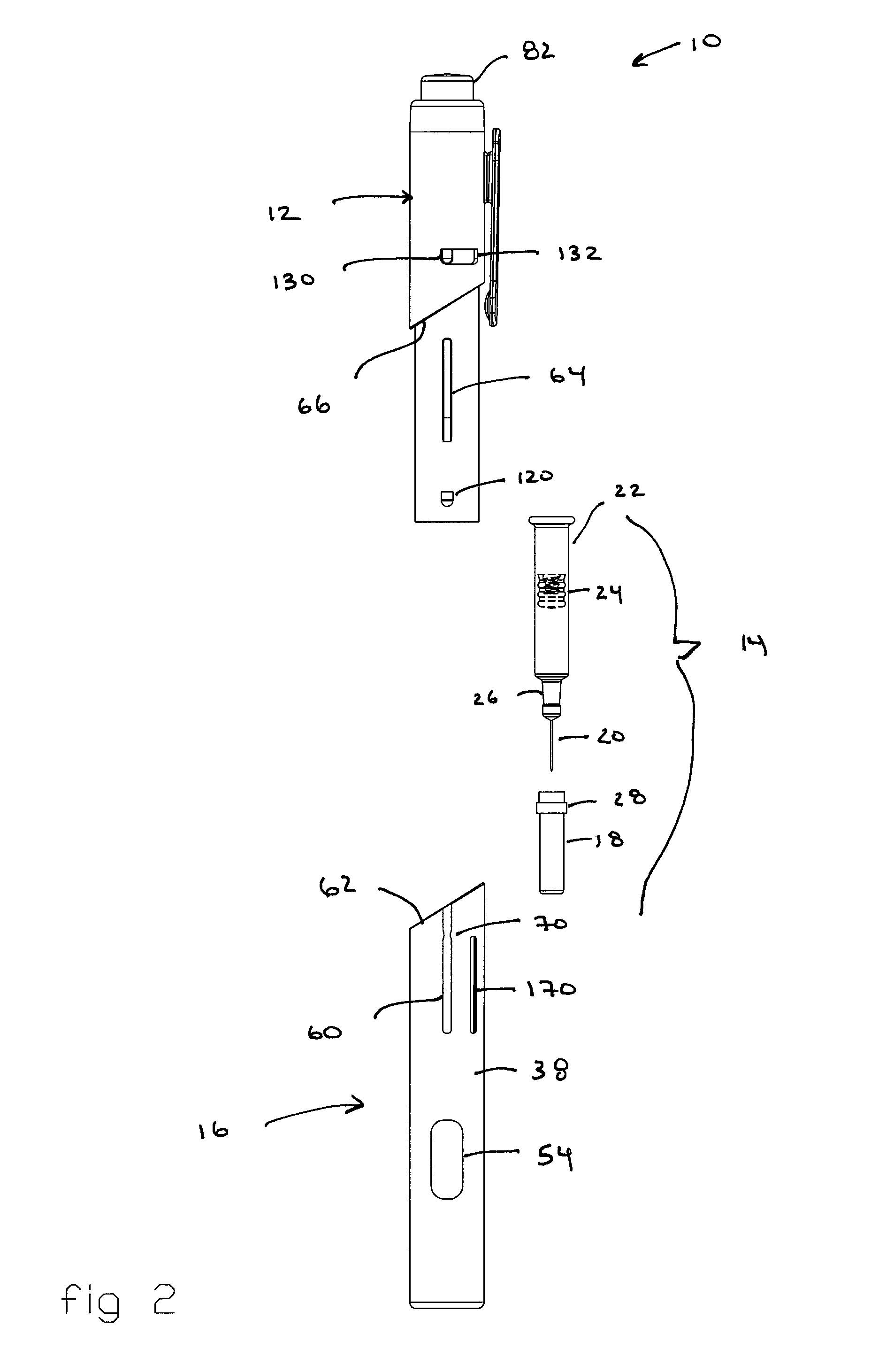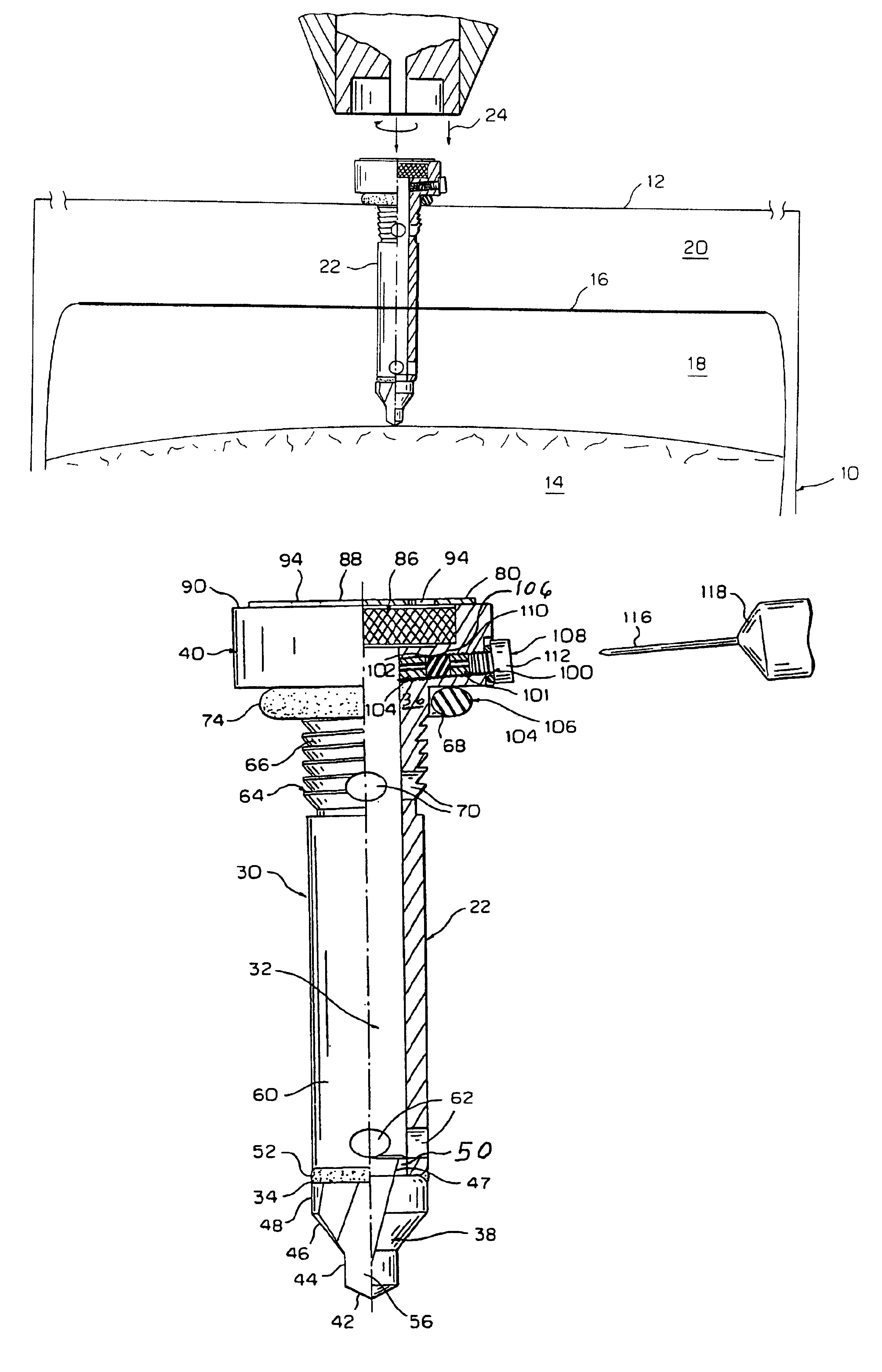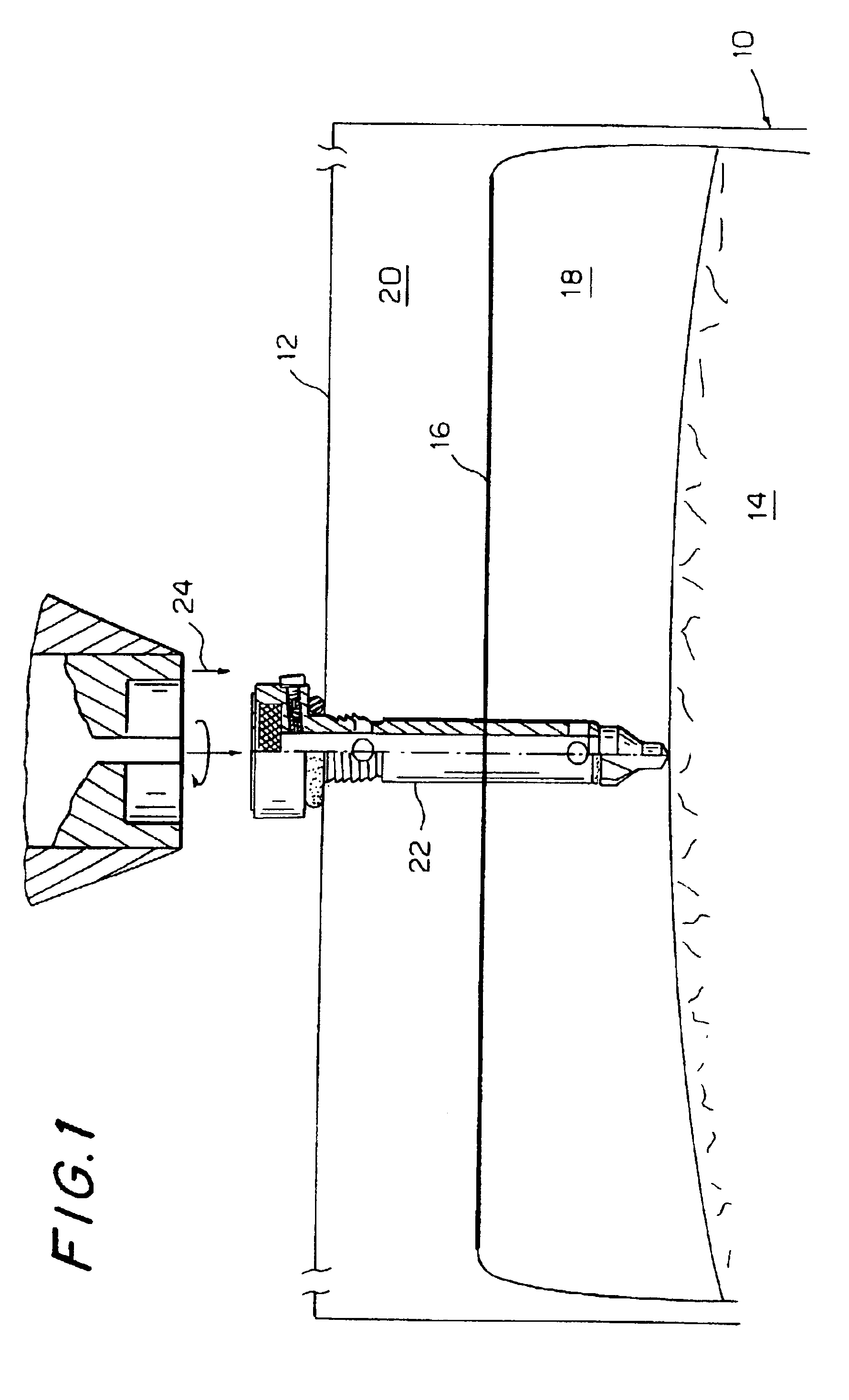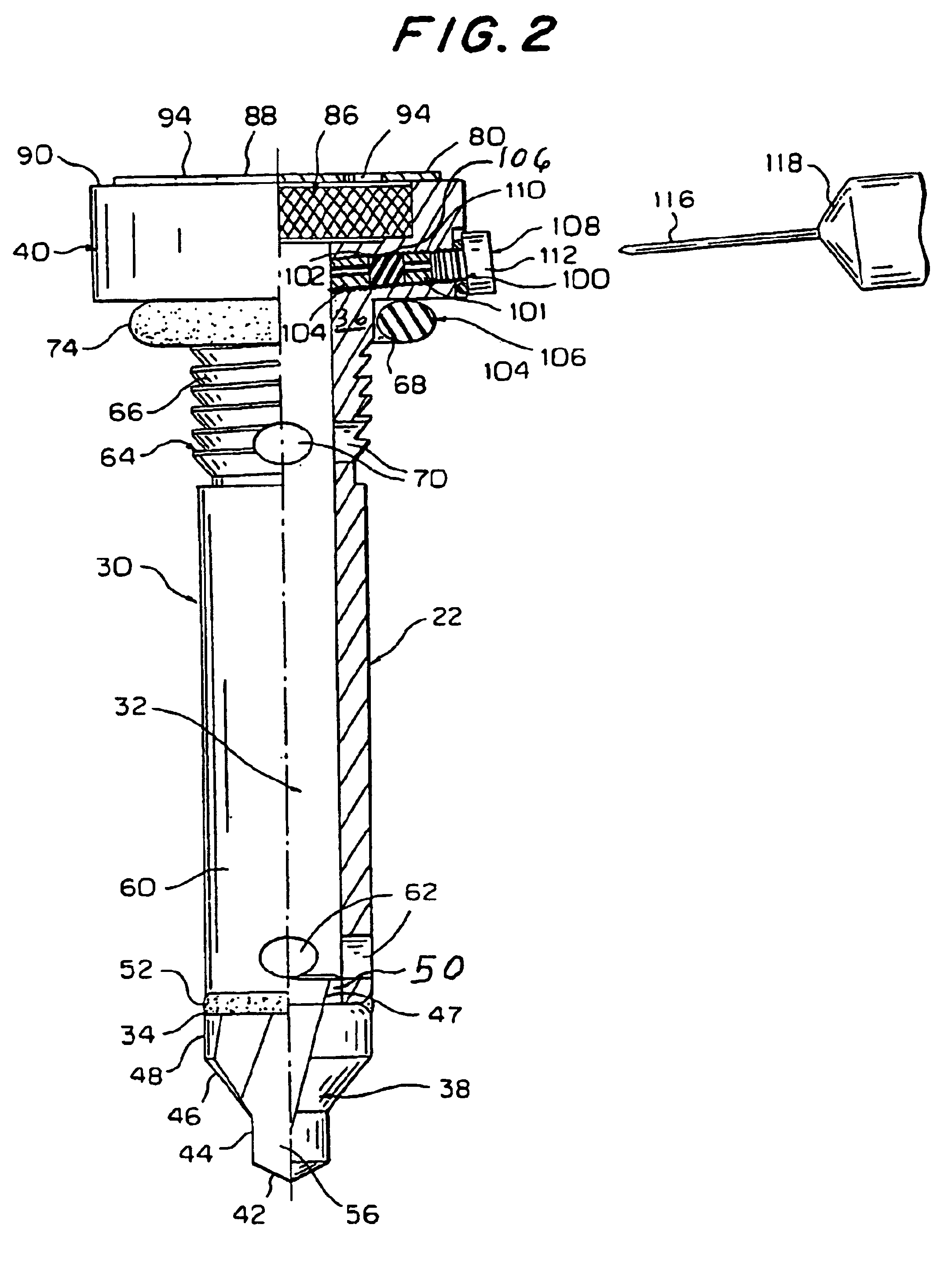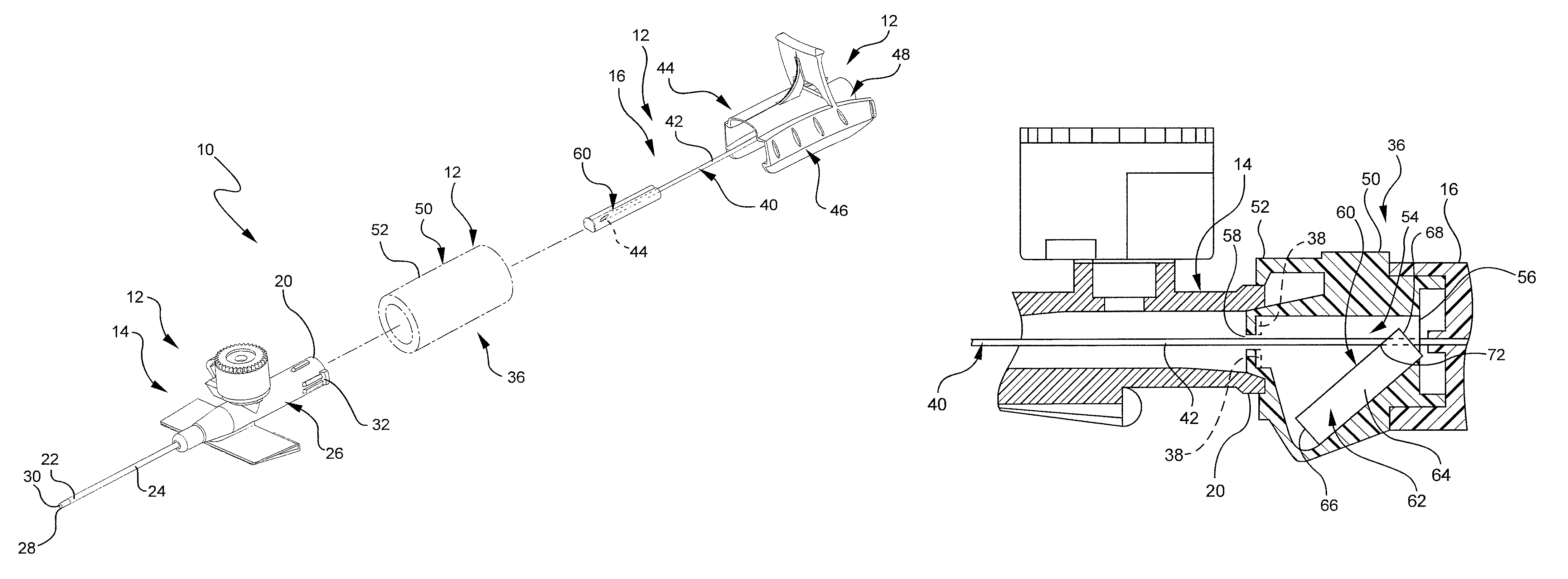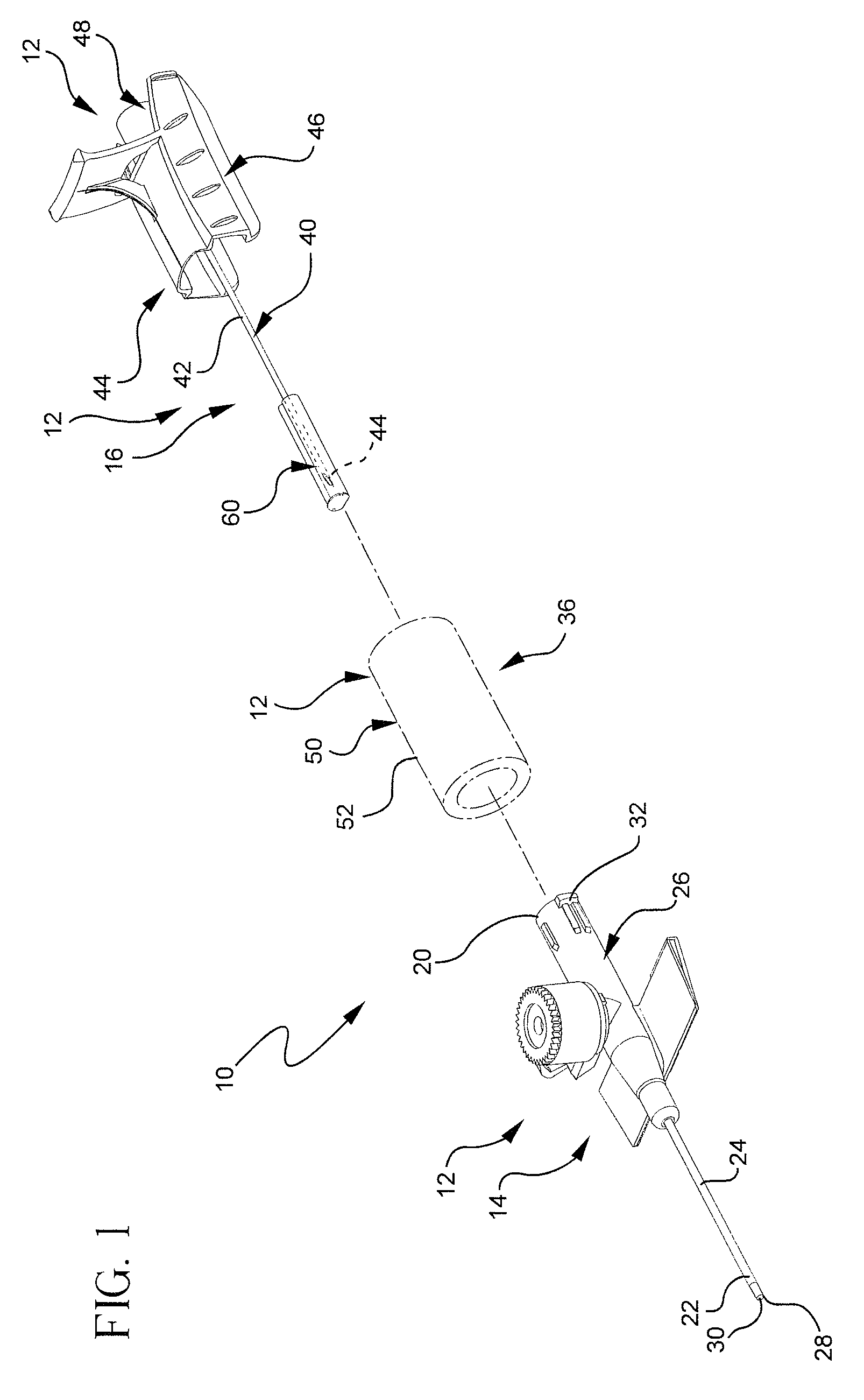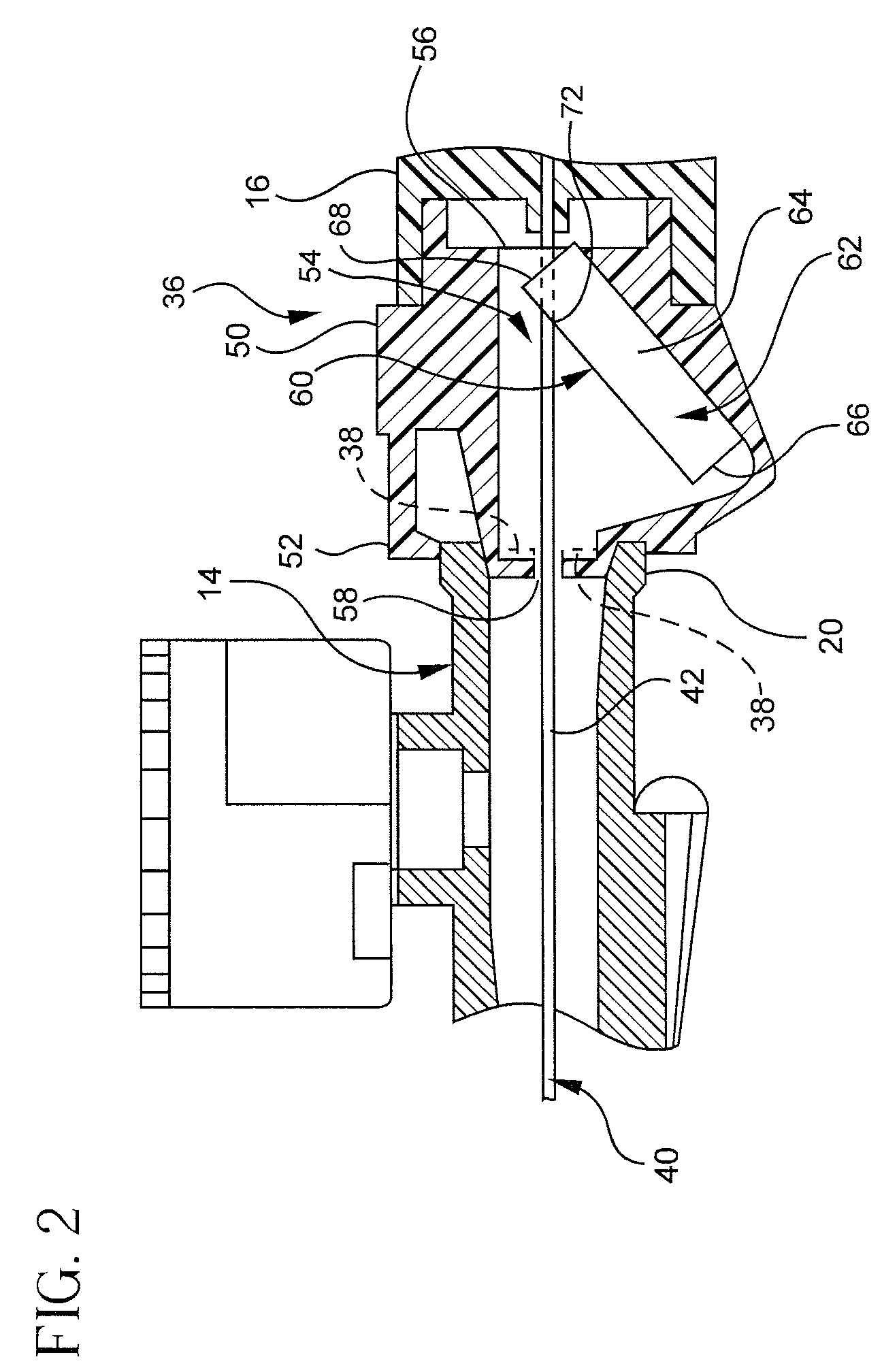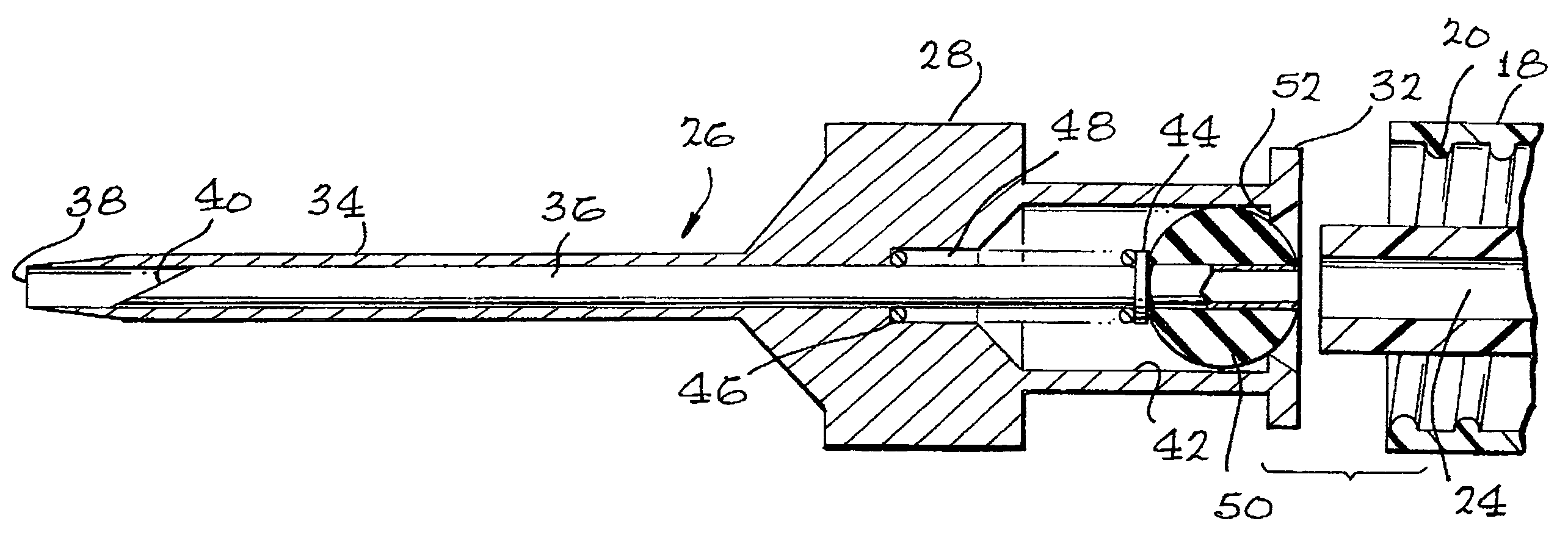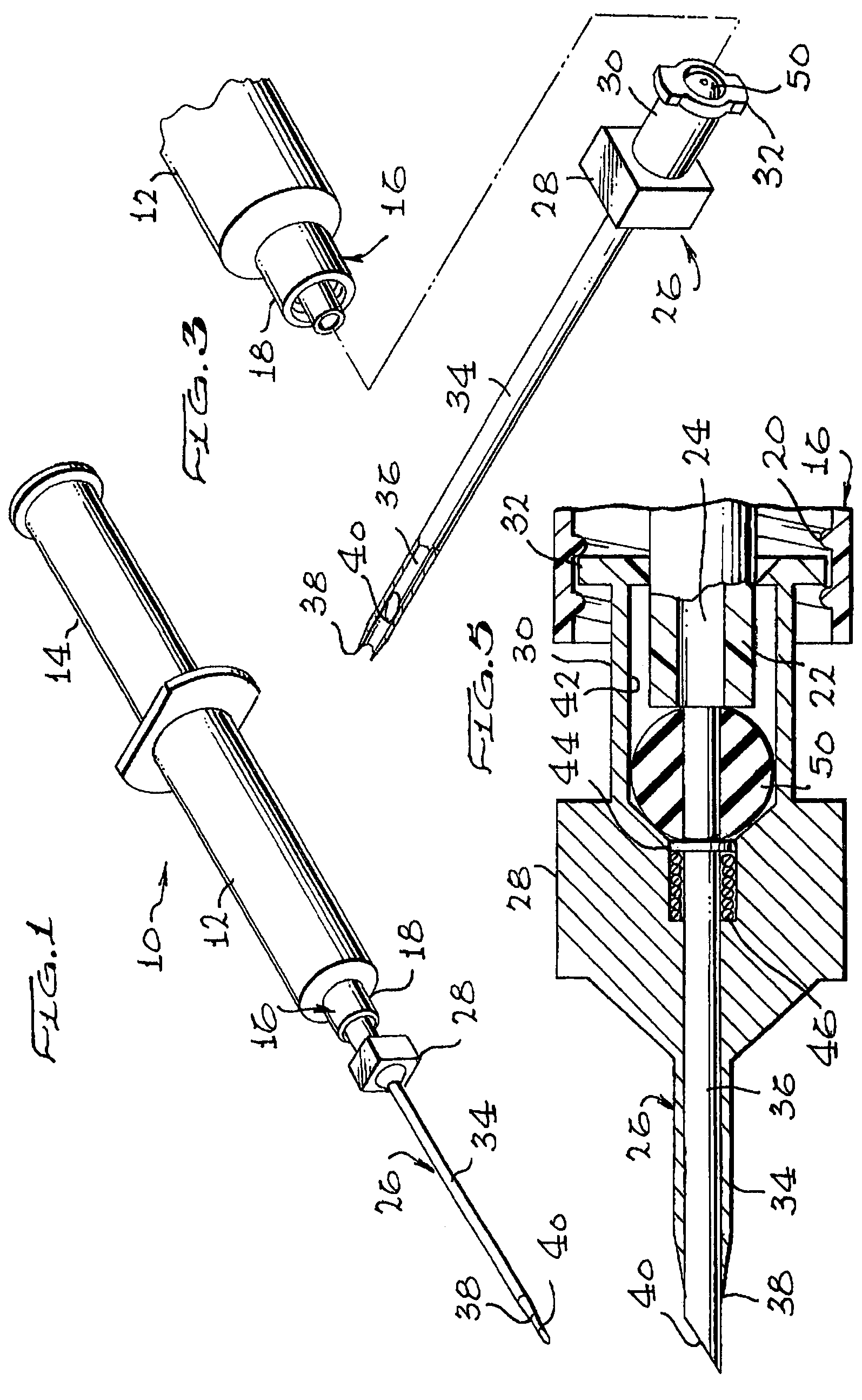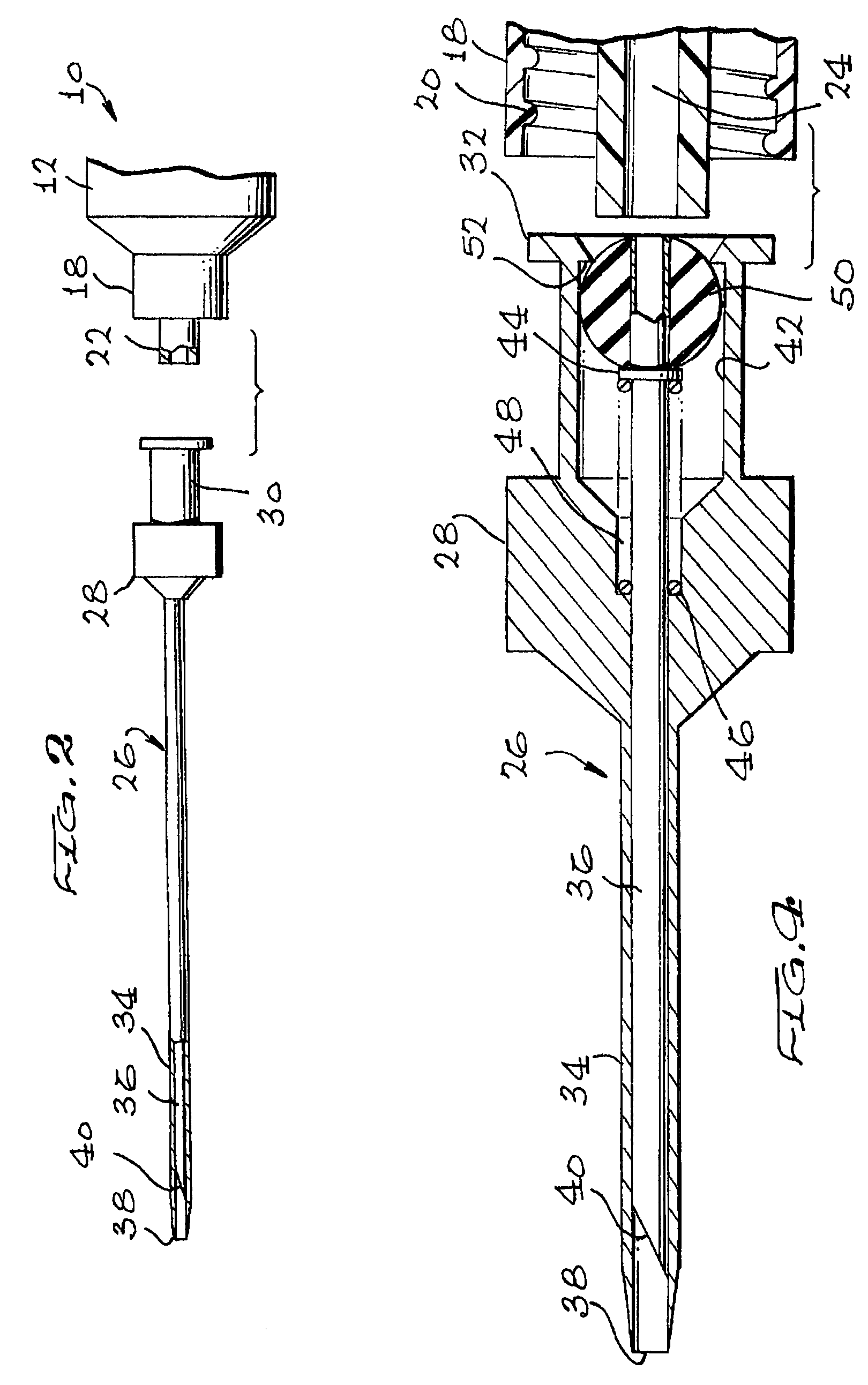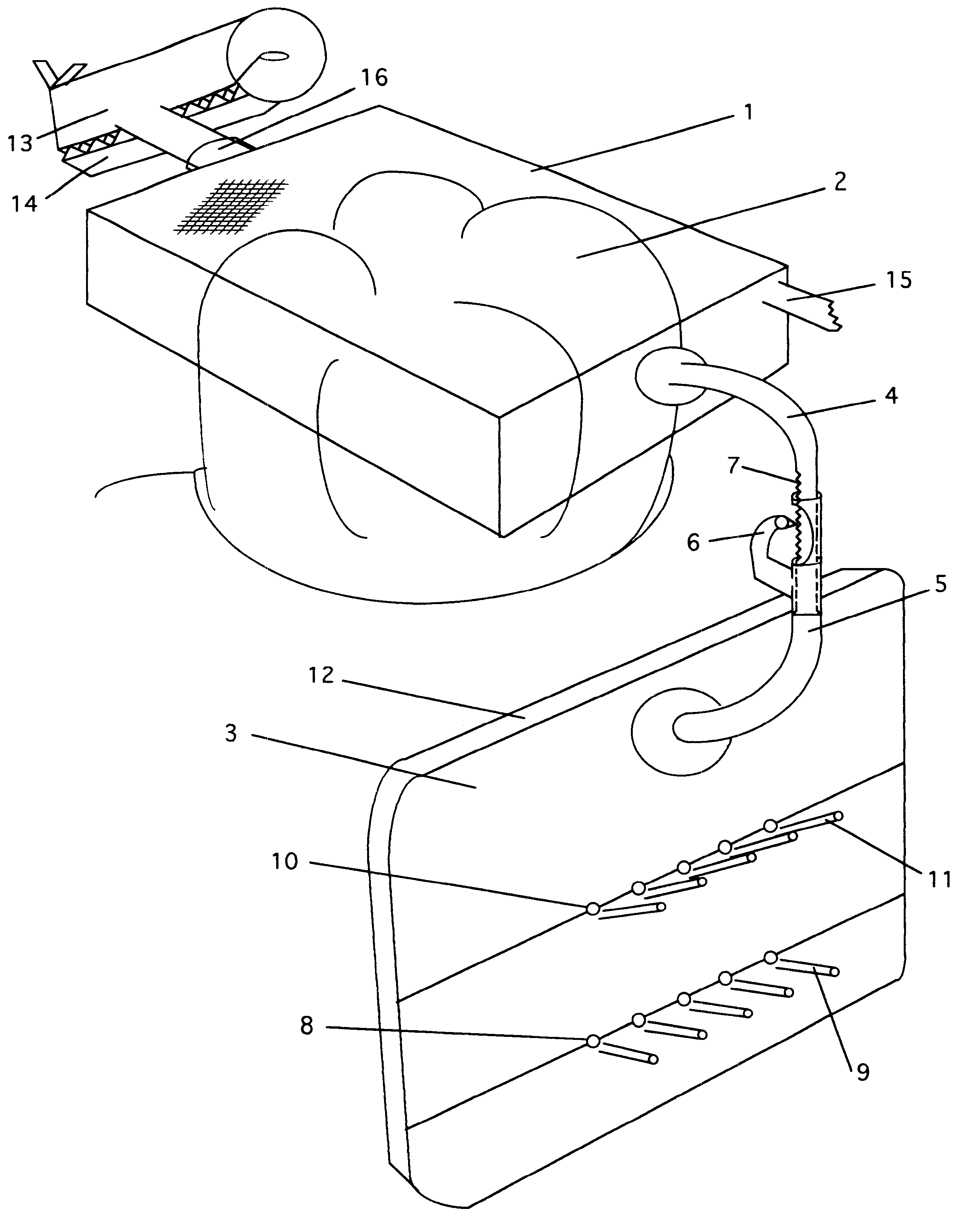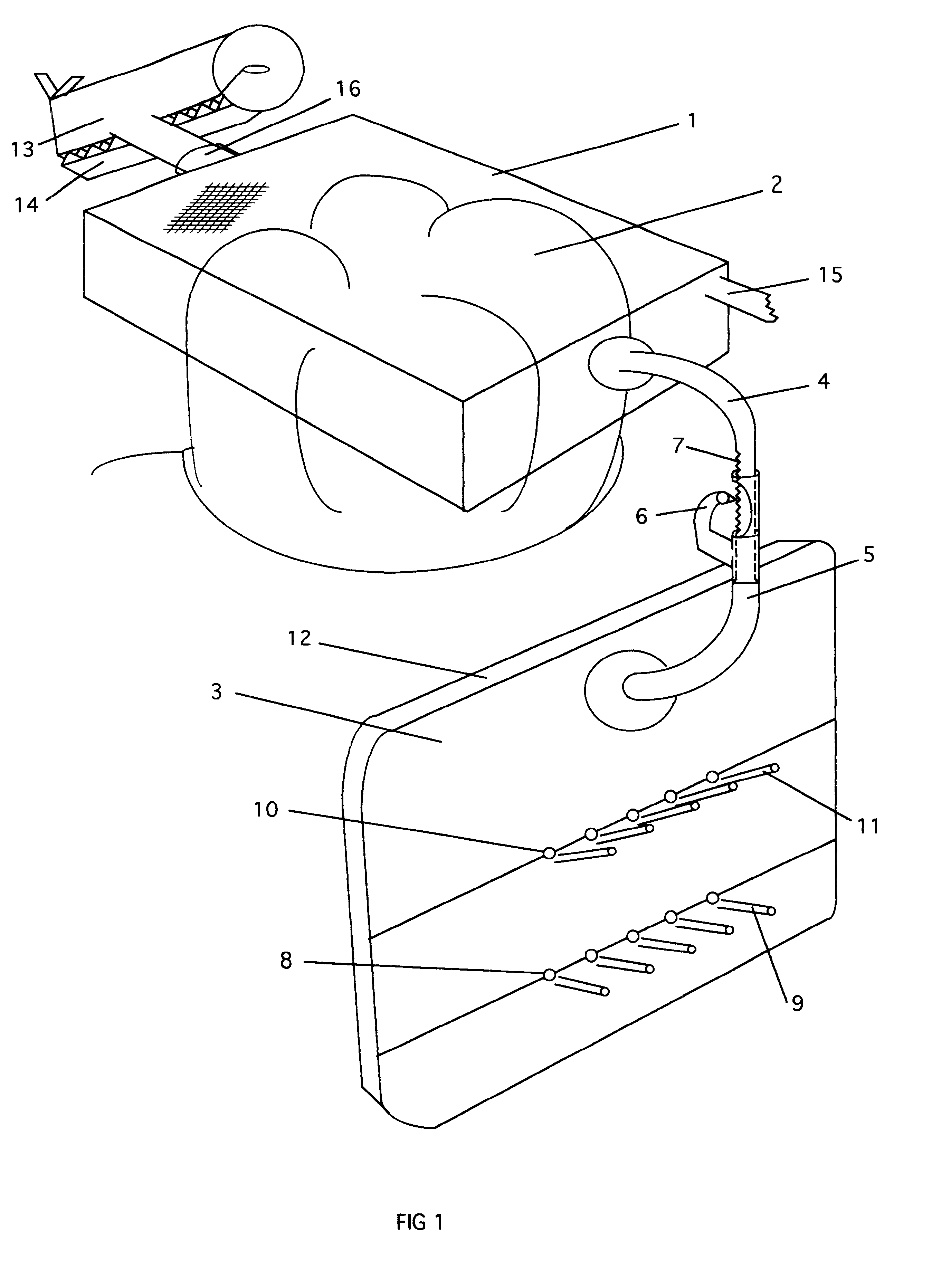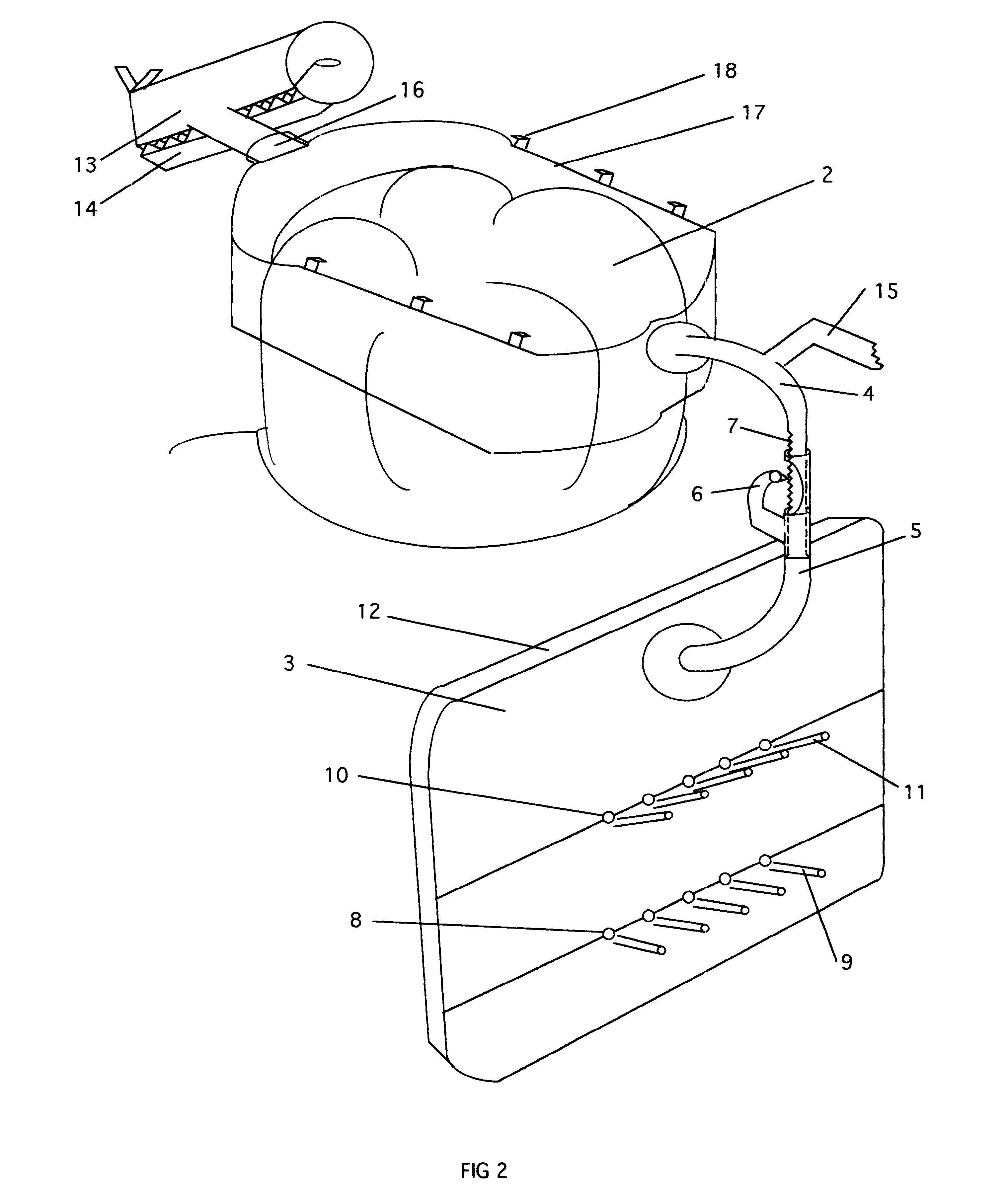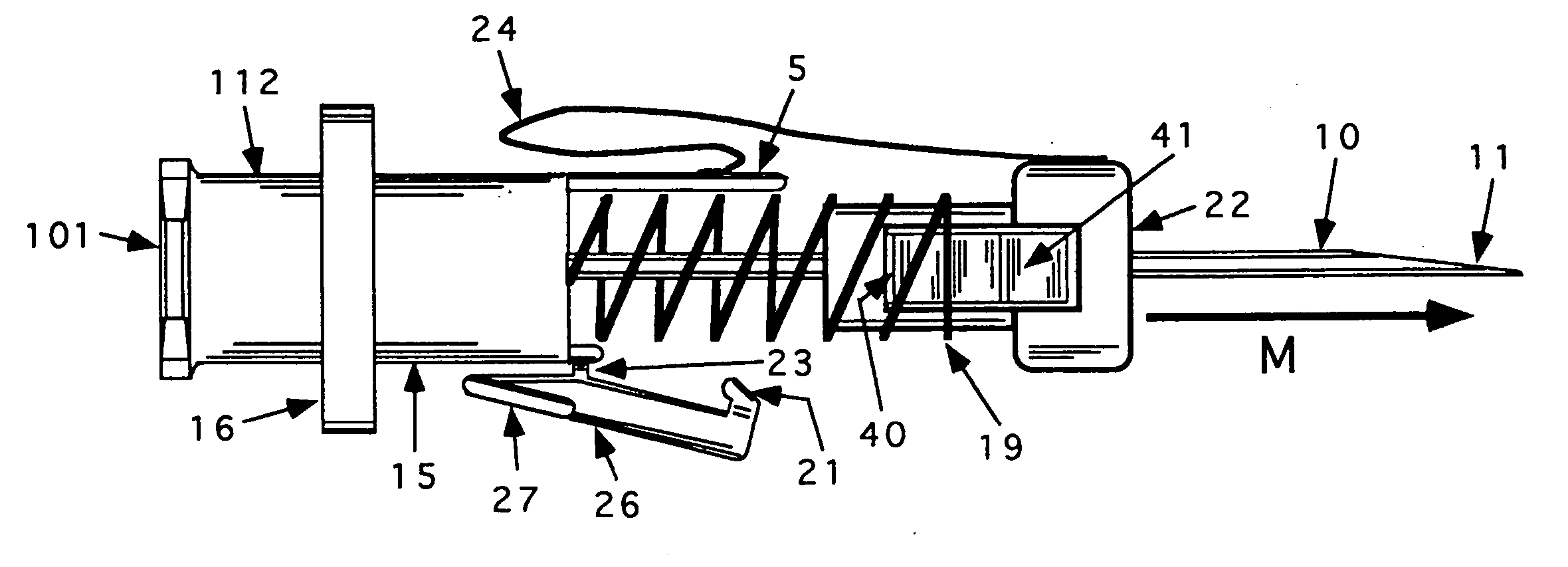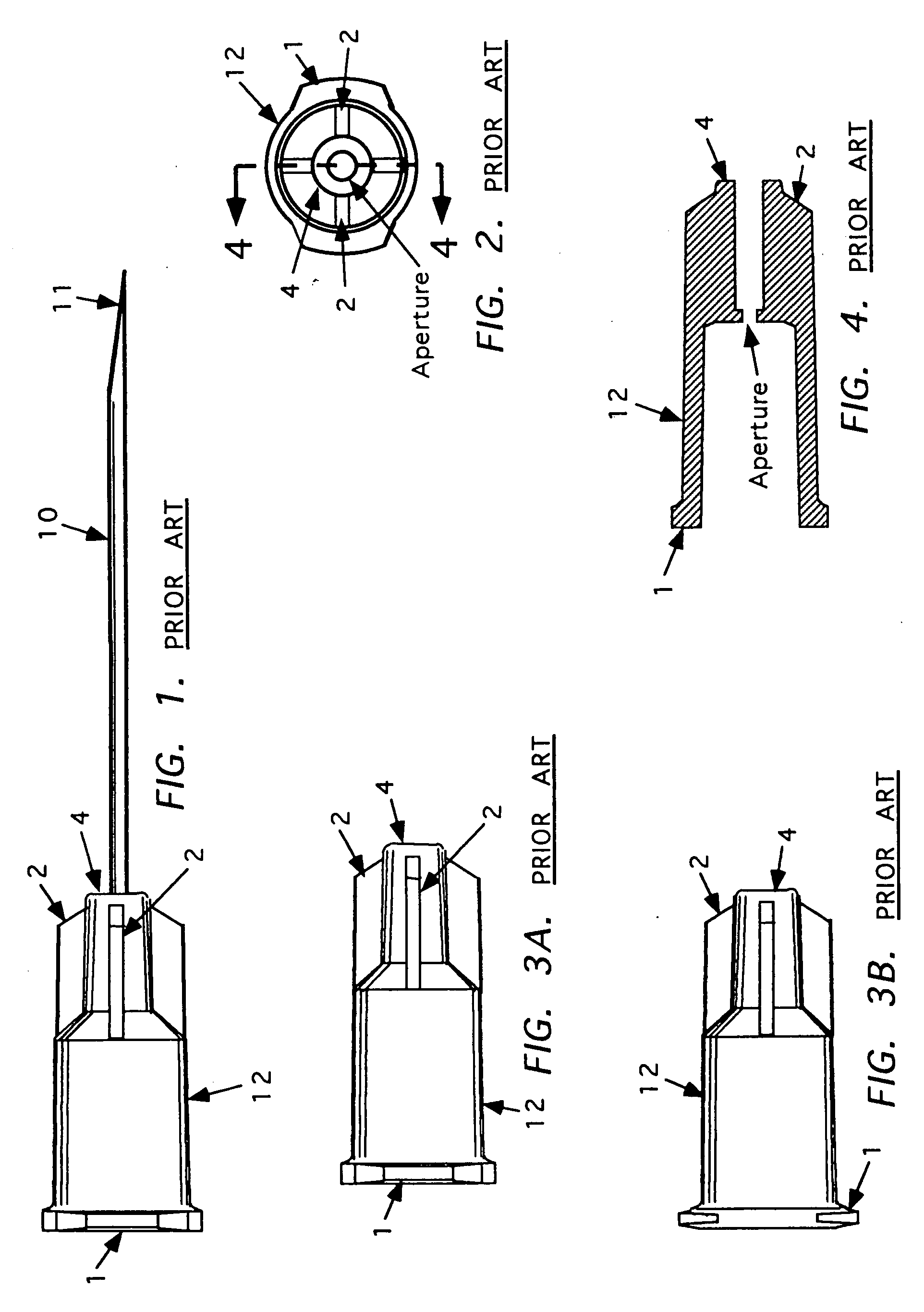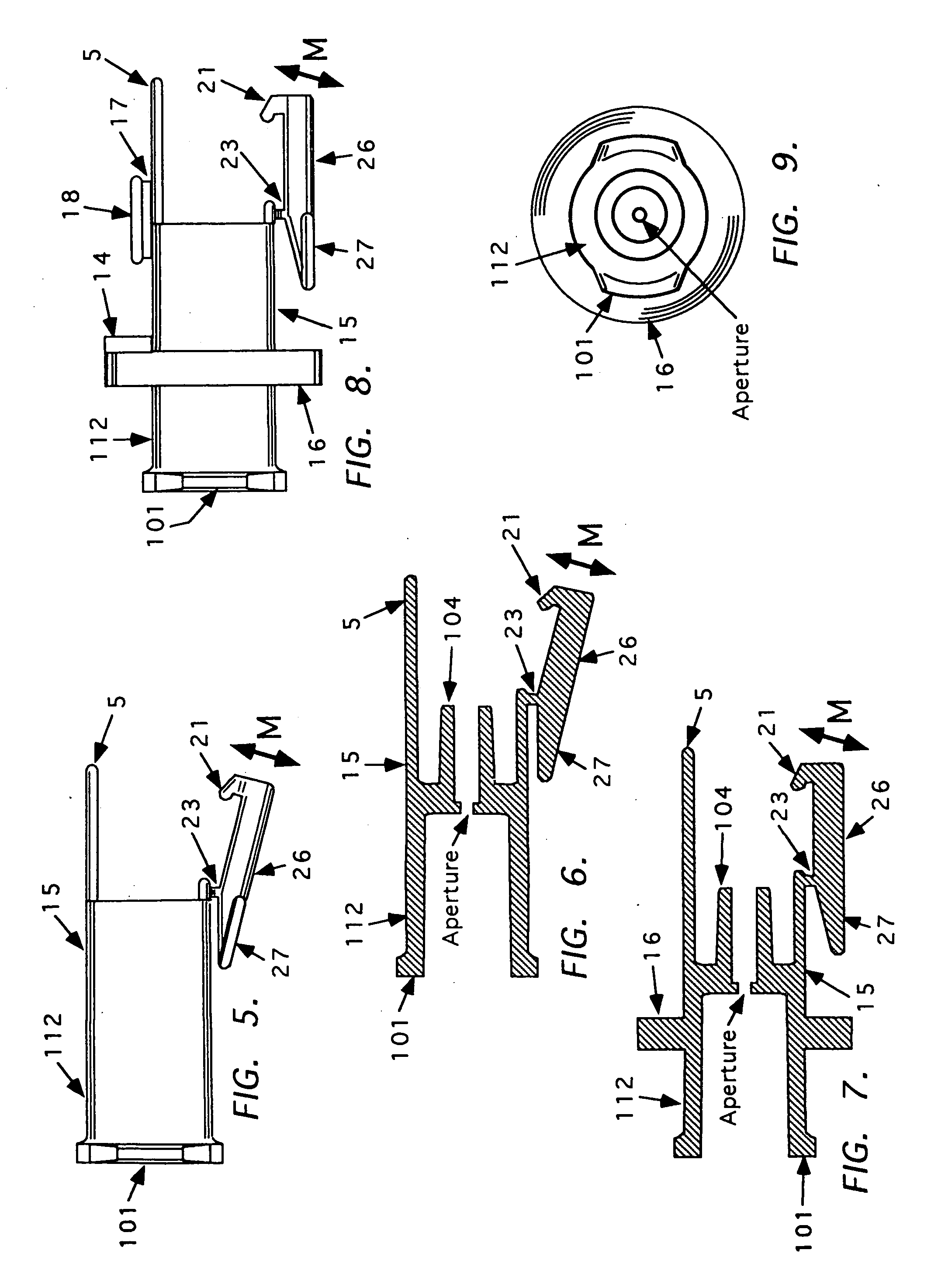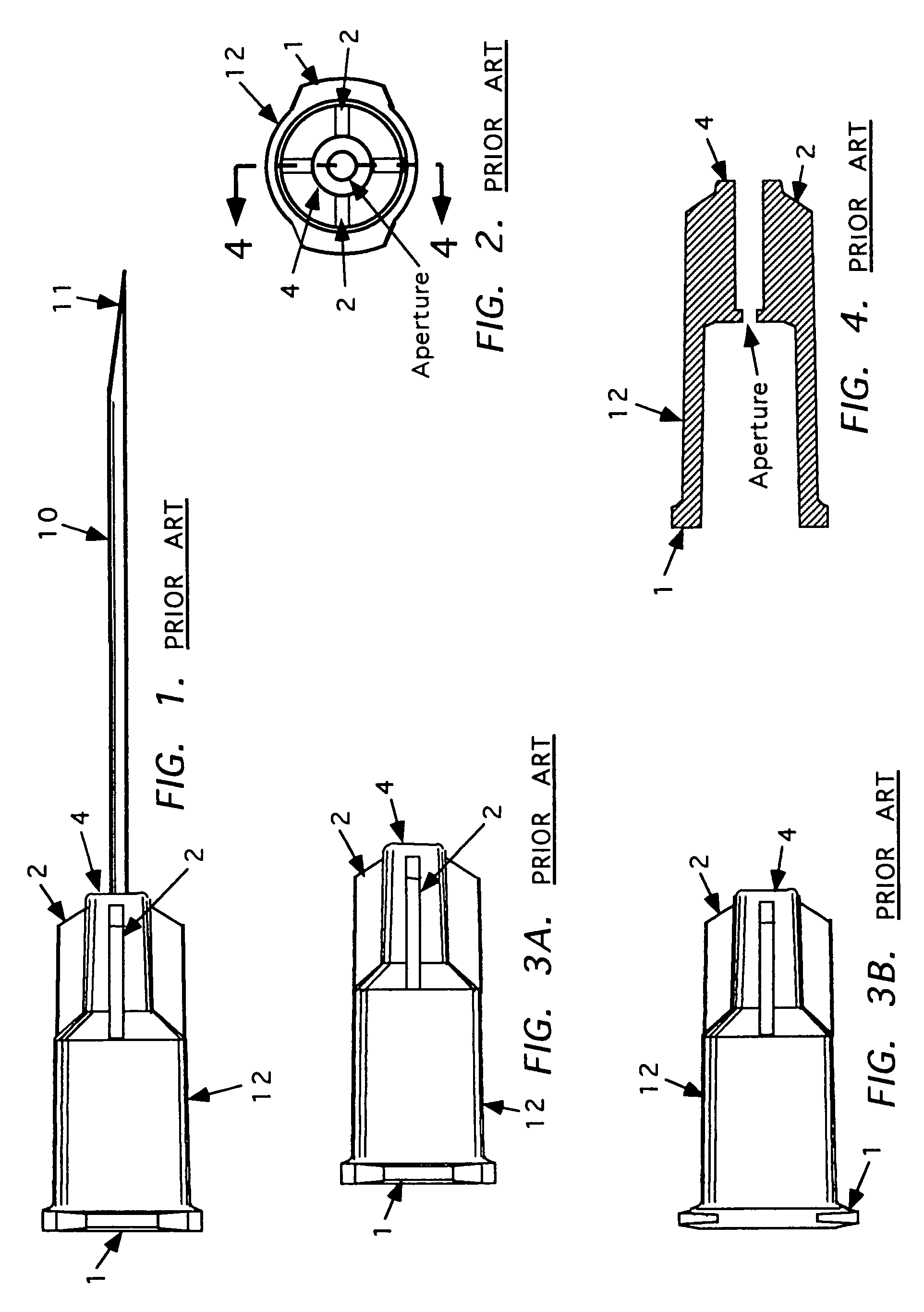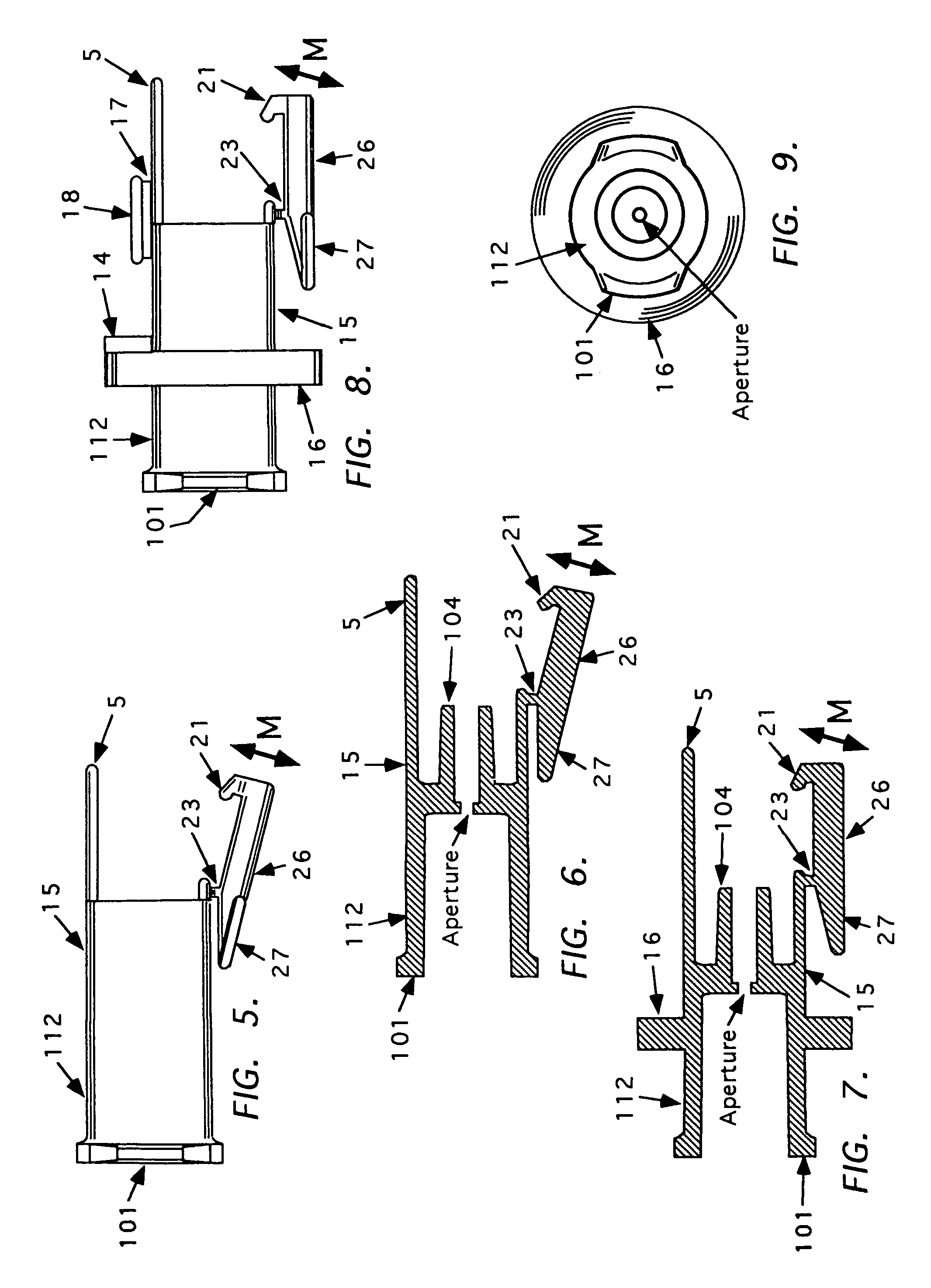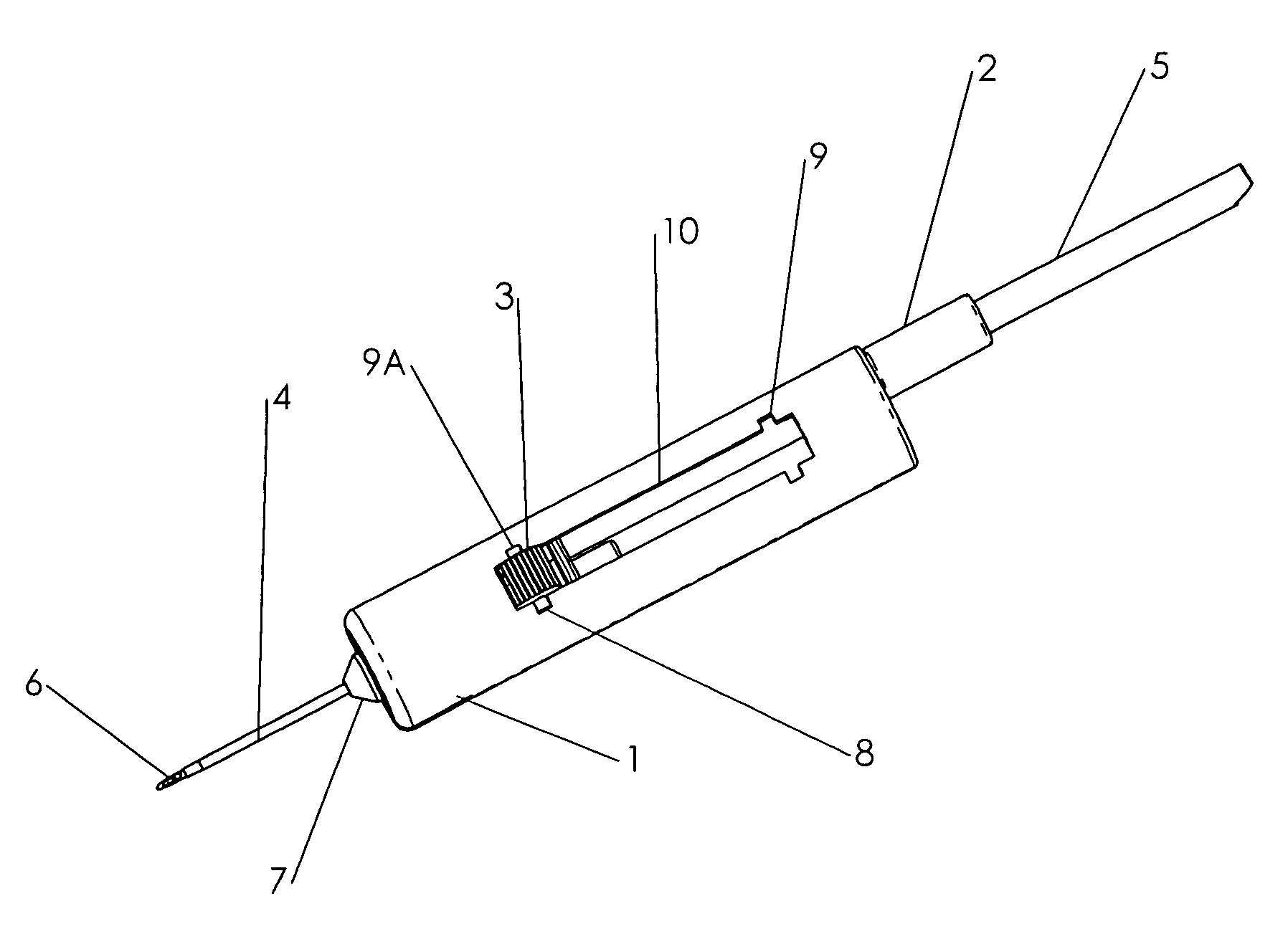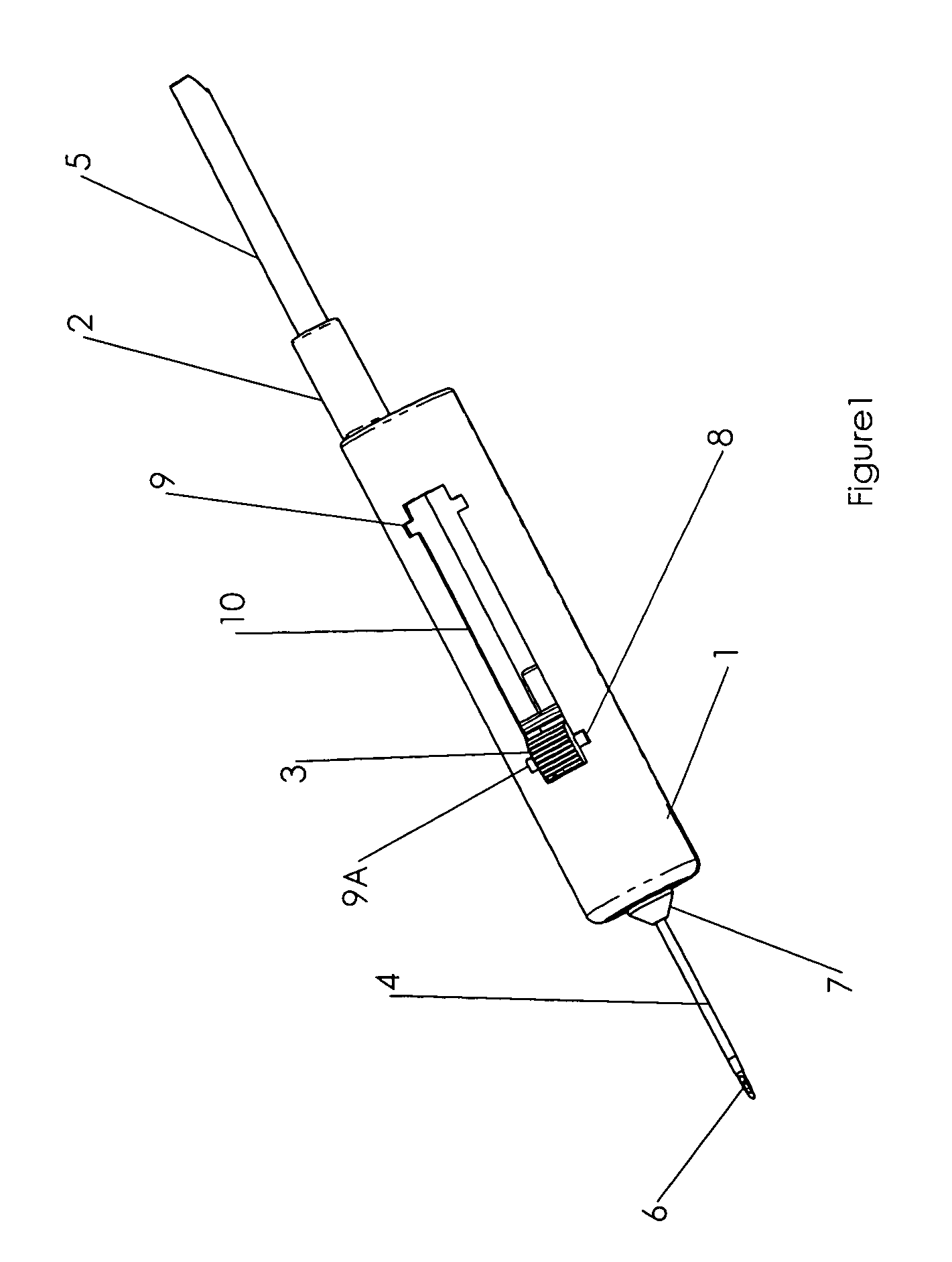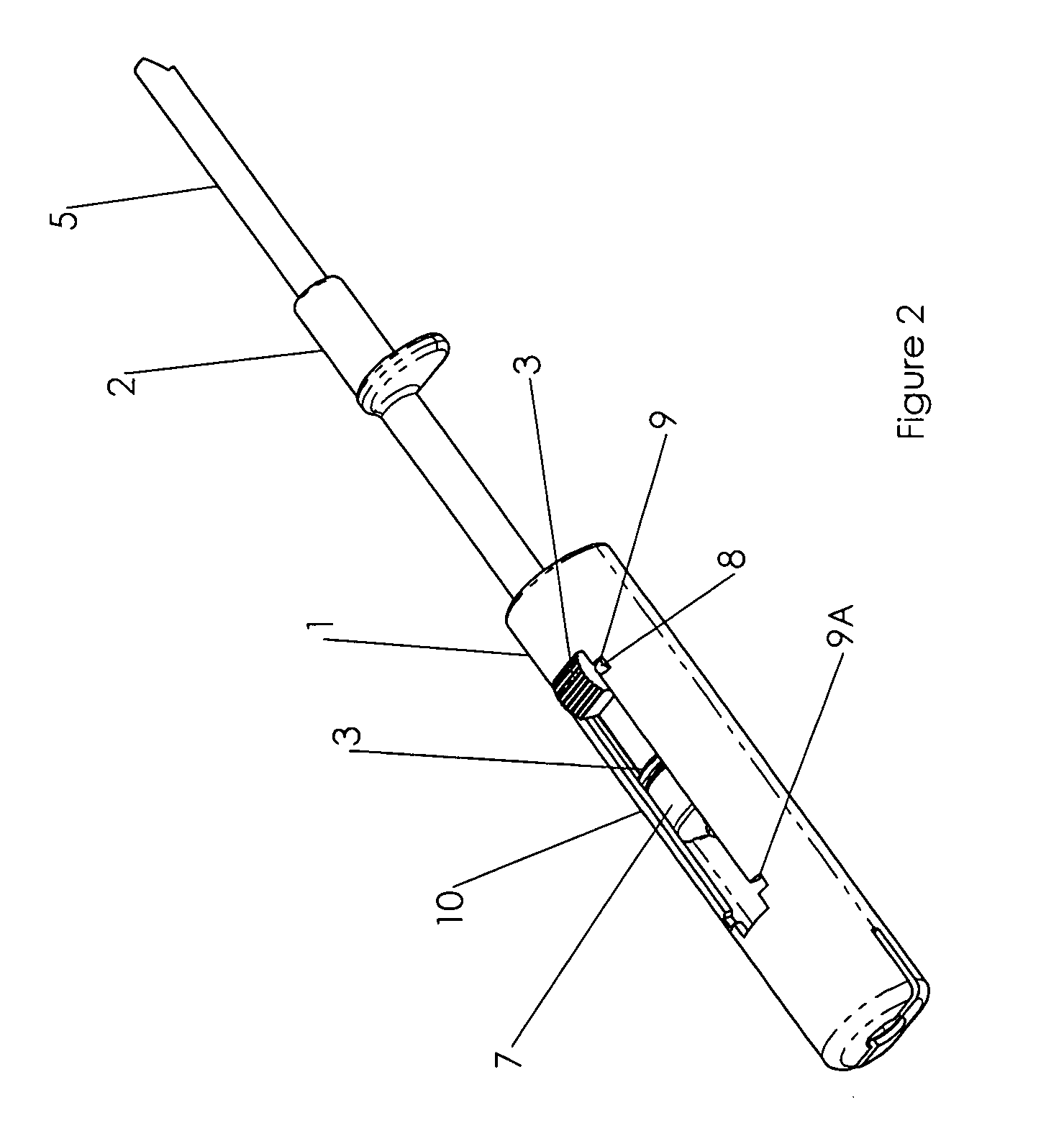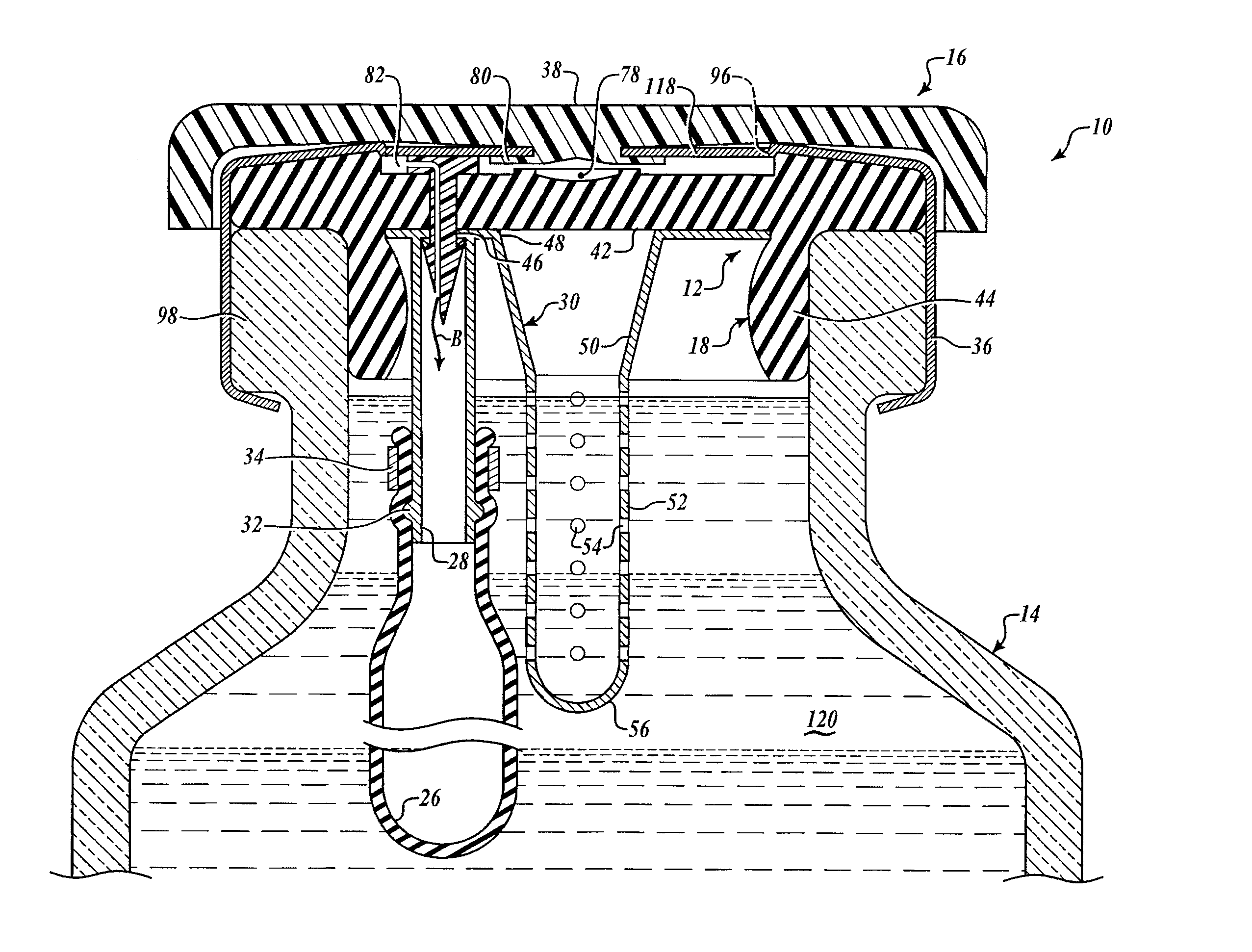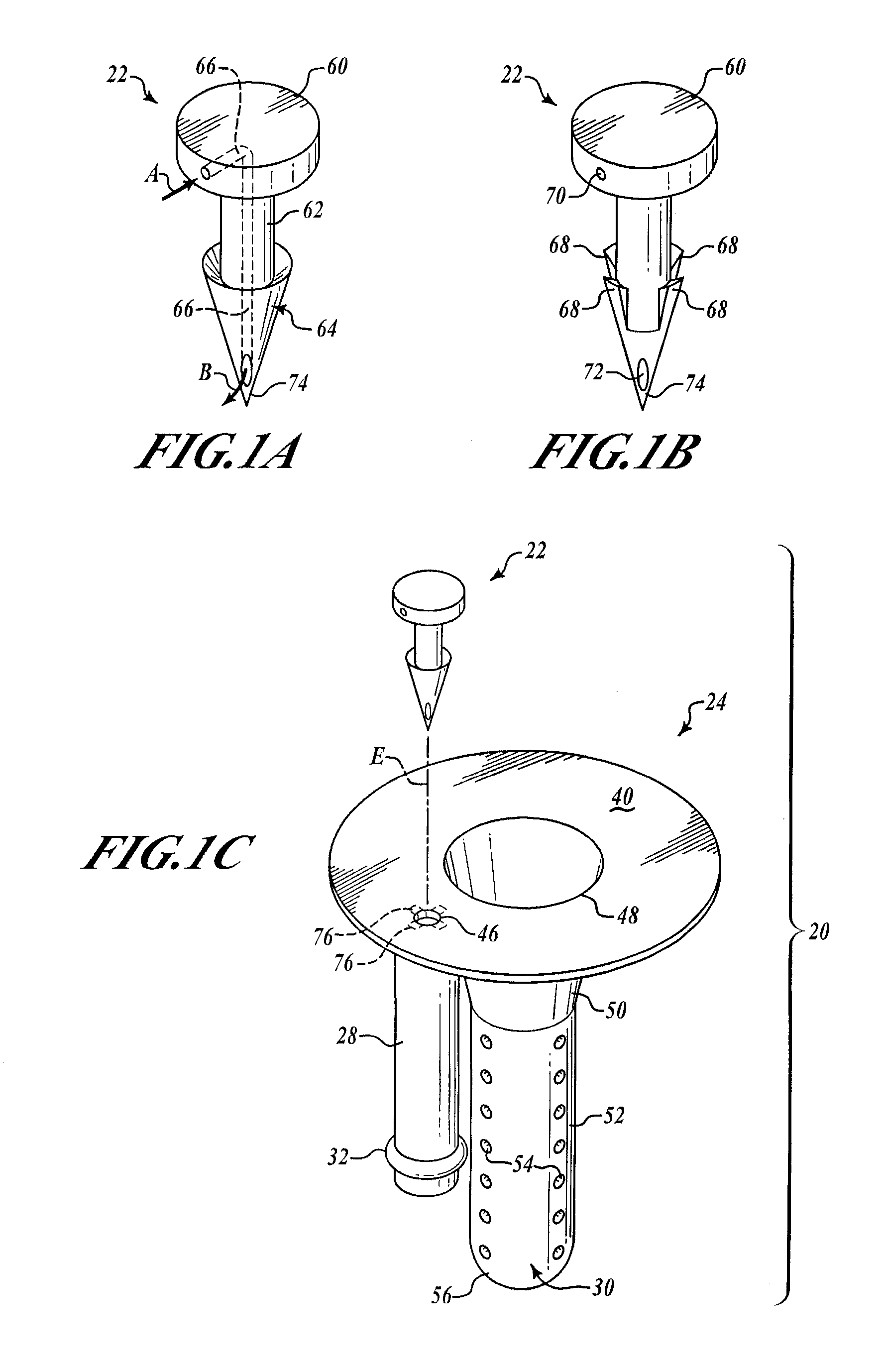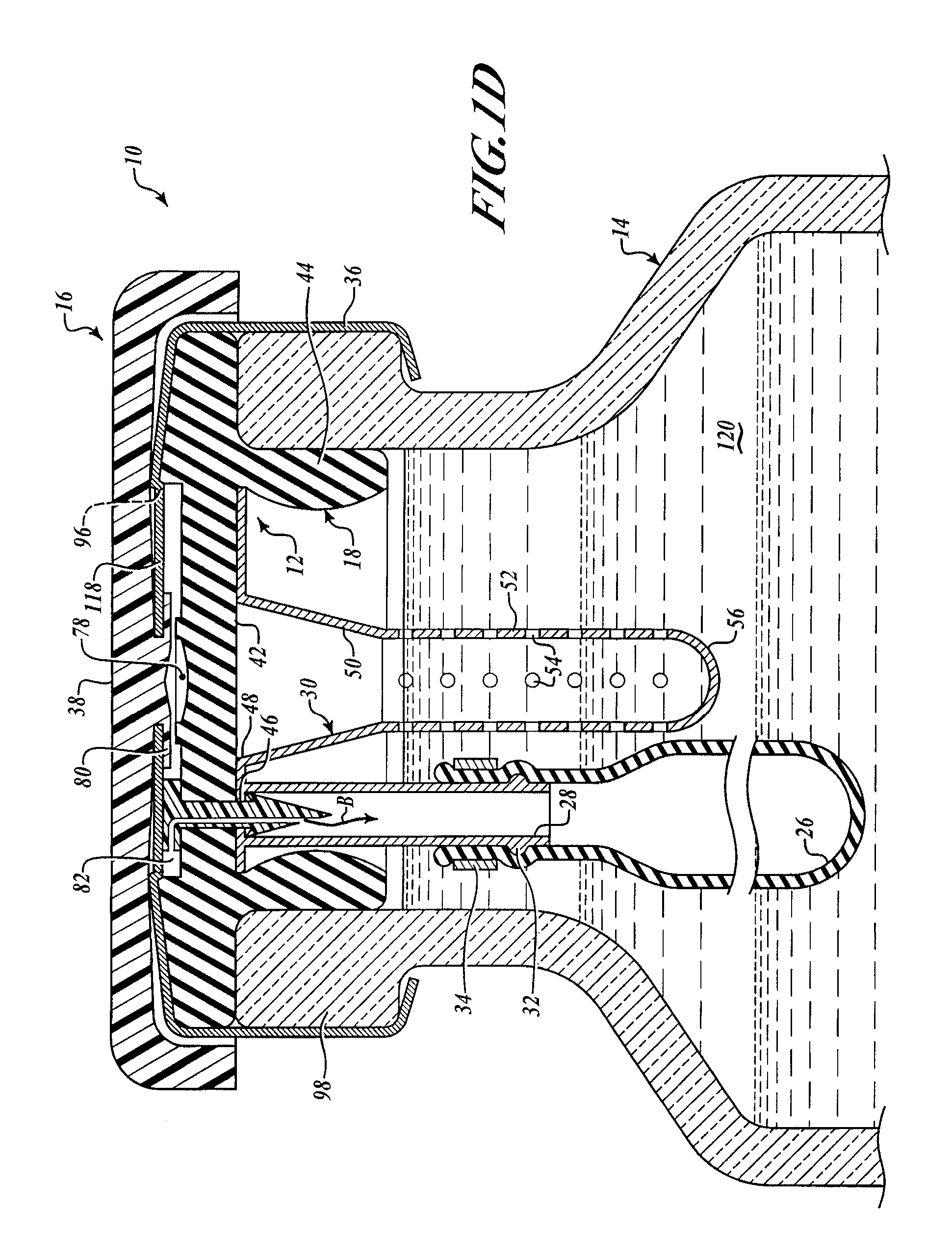Patents
Literature
276 results about "Hypodermic needle" patented technology
Efficacy Topic
Property
Owner
Technical Advancement
Application Domain
Technology Topic
Technology Field Word
Patent Country/Region
Patent Type
Patent Status
Application Year
Inventor
A hypodermic needle (from Greek ὑπο- (under-), and δέρμα (skin)), one of a category of medical tools which enter the skin, called sharps, is a very thin, hollow tube with a sharp tip that contains a small opening at the pointed end. It is commonly used with a syringe, a hand-operated device with a plunger, to inject substances into the body (e.g., saline solution, solutions containing various drugs or liquid medicines) or extract fluids from the body (e.g., blood). They are used to take liquid samples from the body, for example taking blood from a vein in venipuncture. Large-bore hypodermic intervention is especially useful in catastrophic blood loss or treating shock.
Needle tip guard for percutaneous entry needles
A needle tip protective device for use with percutaneous entry needles. In one embodiment, the needle tip protective device includes a needle guard slidably mounted on a hypodermic needle, the latter having a needle tip located at the distal end thereof, and a change of profile formed medially there along. The needle guard is movable along the hypodermic needle and engageable with the change in profile formed thereon. The engagement with the change in profile is configured to correspond with the ability of the needle trap to entrap the needle tip once the needle trap has advanced the sufficient distance distally along the hypodermic needle. In further refinements, the needle trap may be biased toward the distal needle tip of the needle.
Owner:B BRAUN MELSUNGEN AG
Automatic injection and retraction devices for use with pre-filled syringe cartridges
ActiveUS20070135767A1Safe disposalEasy to disassembleAmpoule syringesAutomatic syringesHypodermic needleEngineering
An automatic injection and retraction device having a longitudinal axis is provided that includes an injection assembly, a retraction assembly, and a pre-filled syringe cartridge. The injection assembly has an activation-prevention feature moveable between an on position and an off position. The retraction assembly has a needle guard that is removable in a direction along the longitudinal axis upon application of a removal force. The pre-filled syringe cartridge has a hypodermic needle with a needle sheath thereon. The retraction and injection assemblies are secured to one another so that the pre-filled syringe cartridge is in the retraction assembly with the needle sheath secured to the needle guard. The retraction and injection assemblies are configured so that, upon application of a twisting torque to the injection and retraction assemblies, the activation-prevention feature moves from the on position to the off position simultaneous with applying the removal force to the needle guard.
Owner:WEST PHARMA SERVICES OF DELAWARE
Spring launched needle safety clip
A hypodermic needle assembly configured such that the movement of a needle shield into position to block the needle tip occurs as a direct consequence of a longitudinal force applied by insertion of a syringe plunger is provided. The hypodermic needle assembly according to the present invention includes a needle, a needle hub, and a safety spring clip assembly, the safety spring clip assembly being configured to automatically launch from the needle hub and slide along the needle to shield the needle tip, thus preventing accidental contact with the needle tip. Additional mechanisms for launching the safety spring clip are also provided, which include using a trigger ring for rotating and launching the safety spring clip. Methods for making and using the hypodermic needle assemblies are also disclosed.
Owner:B BRAUN MELSUNGEN AG
Medical device container
InactiveUS20080108951A1Easy constructionReduce manufacturing costInfusion needlesRigid containersHypodermic needleHypodermoclysis
A storage system for a needleless pen delivery device syringe and a hypodermic needle adapted for attachment to and use with the pen delivery device syringe. A tubular sleeve has a first hollow chamber for receiving therein the needleless pen delivery device syringe, and a hollow cap has a second hollow chamber for receiving therein the hypodermic needle. The cap is adapted to affix to the sleeve to form a continuous tubular housing, and the sleeve is adapted to receive the pen delivery device syringe only when the needle is not attached to the syringe. Alternative exemplary embodiments provide means for storing other related accessories or additional spare needles.
Owner:JERDE STEVEN
Cardiac event microrecorder and method for implanting same
ActiveUS7294108B1Facilitate subcutaneous implantationElectrocardiographyHeart defibrillatorsElectricityHypodermic needle
A cardiac event microrecorder comprising a hermetically sealed housing is shaped and dimensioned to facilitate the subcutaneous implantation of the microrecorder in a human patient by injection through the lumen of a hypodermic needle. The housing comprises a tubular central section of an electrically insulating material, the central section having spaced apart extremities. An electrically conductive sense electrode is secured to and seals each extremity. The housing may have an interior enclosing (1) electrical circuitry for processing, storing and telemetering data representing physiologic information detected by the sense electrodes; (2) a primary cell or rechargeable battery for electrically powering the electrical circuitry; and (3) an inductively couplable charger where a rechargeable battery is used. Also disclosed are a method of subcutaneously implanting a cardiac event recorder in a patient's thoracic region, and a handheld mapping device for determining an optimum location and orientation for the cardiac event microrecorder to be implanted.
Owner:PACESETTER INC
Auto-injection syringe having vent device
An auto-injection syringe is provided that includes an injection assembly and a retraction assembly operatively securable to the injection assembly. The retraction assembly includes a hypodermic needle having a needle hub, an end cap having a lower seal through which a portion of the hypodermic needle can pass, a retraction spring disposed between the needle hub and the end cap and maintained in a partially compressed condition therebetween, an upper seal urged against a facially sealing surface of the retraction assembly by the force of the retraction spring on the needle hub so that a sealed area is defined between the upper and lower seals, and a vent device in fluid communication with the sealed area for pressure equalization between the sealed area and an exterior of the retraction assembly.
Owner:WEST PHARMA SERVICES OF DELAWARE
Electromechanical Manipulating Device for Medical Needle and Syringe with Sensory Biofeedback and Pain Suppression Capability
ActiveUS20140142507A1Facilitate actionDistract patientAutomatic syringesInfusion needlesBattery state of chargeDistraction
In an aspect, a medication delivering injector which includes a housing having opposing proximal and distal ends and an accessible internal cavity for inserting and removing a medicament container such as a syringe. The injector is designed to hold and manipulate a medication delivery device such as a large variety of standard and non-standard medical syringes with fixed or attached needles, assembled such that centrally located is a cylinder containing a liquid medicament and attached either permanently or removably to the distal end of the cylinder, is a hypodermic needle or cannula in fluidic communication with the cylinder. The needle can be from one-half inches to one-and-one-half inches in length in the illustrated embodiment and other sizes are possible by changes in scale of the injector. At the proximal end of the cylinder is an opening with an inserted seal or bung with an attached rod thus constituting a plunger. The central medicament containing cylinder could also be a standard medicament cartridge. Hereinafter, both are referred to as a “syringe”. A lid or access cover which, in an open position permits insertion and removal of the syringe into / from the housing in a horizontal fashion thus providing ease of loading. The syringe is inserted with the needle end toward the distal end of the housing and the plunger toward the proximal end of the housing. A movable carriage is disposed in the proximal end of the housing and slides in the axial direction forwards and rearwards such that a syringe, whose proximal end is gripped by the carriage, so moves with the carriage such that the needle exits the housing at the distal end of the housing and pierces the tissue of the patient prior to dispensing of the medicament, and then is retracted after the medicament has been dispensed by retraction of the carriage. Attached to the carriage is an actuator which pushes on the syringe plunger causing the medicament contained within the syringe cylinder to be dispensed through the needle into the patient's tissue. In one embodiment suitable for both removable needle and fixed needle syringes, the proximal end of the syringe including the syringe finger flange is gripped by an elastomeric flange grip which resides within the carriage, while the syringe distal end resides in and is supported by a “syringe guide” which is attached to the carriage and thus moved with it. In another embodiment which is so made to accommodate syringes with removable needles and their safe disposal, the syringe flange at the proximal end of the cylinder is gripped by an elastomeric flange grip which resides in the carriage as described above, while the syringe distal end is supported by a needle which resides in a removable disposable needle shield. The needle guide is biased toward the carriage and thus, the syringe body is compressed and guided as the carriage moves forward and rearward.Both the movement of the carriage and the actuator are controlled by servo motors which are controlled by electronics and a microcontroller so operating such that speeds and accelerations are controlled smoothly and gently so as to avoid the stop / start motion of motors controlled by limit switches and simple electronics or the vibration and abruptness such as result from injectors powered by compressed springs or gas. Furthermore, the forces are adaptive to the loads imposed and the requirements necessary for the proper dispensation of medicaments with high viscosity or sensitivity to shear forces.The housing, approximately midway between proximal and distal ends, is affixed by a hinge such that the device can be folded in half to provide for a more compact device to be stored and transported.On the distal end of the housing are electrical sensor pads in communication with the microcontroller such that contact with the patient's skin and the angle at which the injector is held against the skin and the steadiness with which the injector is being held can be ascertained. Within the housing are a haptic vibrator and an audio speaker, both producing a vibration which is variable in pitch in such a manner that biofeedback is provided to the injector user as to the pressure, angle and steadiness with which they are holding the injector against the skin. This facilitates the action of injection oneself in the gluteus muscle where visual feedback isn't available to the patient.Multiplexed onto the electrical sensor pads, is a TENS (Transcutaneous Electrical Nerve Stimulation) generator which is operational (at the user's choice) just before and during the injection to interrupt or quench the pain of tissue perforation often accompanied with needle injections.Contained on the surface of the housing such as on the access cover, is a display such that user menus, device state, directions, and battery charge status, etc. are displayed. Also contained on the surface of the housing, on the proximal half, are buttons which control the menus and selections that are shown on the display. These selections provide for the user to set such parameters as hypodermic insertion speed and medicament dispensing speeds, the preferred mode of user biofeedback which can include: speech mode (which can be accompanied by musical themes and ringtones, plus variable pitch tone and haptic vibration), MP3 mode (which has speech muted but includes musical ringtones and variable pitch tone and haptic vibration), and haptic mode (which is haptic vibration and audio tone queues needed for injector position biofeedback and readiness), plus mute mode (which provides no audio but the haptic vibration remains), and none, which provides no vibrational biofeedback, yet the display information always remains available.Also contained on the surface of the housing on the distal half, is an “injection initiate” button which causes the sequences required for performance of an injection to occur if said button is “enabled”.Contained within the electronics and its operating program is the ability to audibly play pre-recorded human speech in any language such that: directions in the form of consecutive steps which are required to load the medicament container (syringe) into the device, consecutive steps to perform an injection, steps to remove and properly dispose of parts, to alert of device status and menu choices, etc. can be played through the audio speaker. Also contained within the electronics and program is the ability to play musical ringtones as a distraction during the needle insertion and injection or when a scheduled injection alarm is reached, or calming human voice exhibiting bedside manner during the needle insertion and injection.Also contained within the electronics and software is a real-time clock-calendar which can store a patient's injection schedule and play a musical ringtone as an alarm as each scheduled injection becomes due. Also contained within the electronics and software are the ability to communicate with a personal computer through a USB port, which can also charge the injector's rechargeable battery. The battery in one embodiment, consists of three AAA batteries which can be rechargeable or non-rechargeable. The USB port in combination with an application running on the personal computer, is used to download the injection schedule into the real-time clock-calendar and to download ringtones and musical themes of the user's choice and to download foreign language sets for the pre-recorded human language feature.The injector can be further equipped with the capability to aspirate the tissue by drawing back on the plunger thus creating a vacuum into which fluids will flow. These fluids enter the syringe cylinder where they can be checked for the presence of blood by optical absorption in the red spectrum. This information is useful in the instances where intramuscular injections are to be given with drugs whose ‘Full Prescribing Information’ instructs the patient to aspirate and check for blood in the syringe which indicates that the puncture of a vein has occurred, and if so detected, to abort the injection and then re-inject into a different location.
Owner:INTELLIPEN INC
Automatic retraction Huber needle safety enclosure
An automatic retraction Huber needle safety enclosure which is designed principally for a Huber needle. A Huber needle is a hypodermic needle that is in the shape of a right angle. The safety enclosure has an internal chamber which is formed between a housing and a lid with the lid being movable relative to the housing between a closed position and an open position. The Huber needle is mounted within the internal chamber. The Huber needle is movable between an extended position and a retracted position. With the Huber needle in the extended position, the Huber needle is capable of being inserted within the body of a human or animal. With the Huber needle in the retracted position, the tip of the Huber needle is to be totally confined within the internal chamber. A wing assembly is attached to the housing which functions to facilitate securement of the safety enclosure to the body of the animal or human and forming an enclosure with the wing assembly folded in abutting juxtaposition.
Owner:CR BARD INC
Irrigation dressing with a tubular dam
An irrigation dressing is provided including a hollow inflatable tubulardam with a central opening adapted to surround the wound of the individual. A semi-hard resilient clear plastic window is attached to the dam, such that the central opening is completely enclosed on a front surface of the dam. The dressing includes an inner peripheral ridge and an outer peripheral ridge extending beyond a bottom or back body-engaging surface of the dam which facilitates drawing a vacuum. A plurality of connectors are attached to a front planar face surface of the clear plastic window. At least one connector is pivotable about an axis parallel to the front planar surface of the window. A self-sealing plug is disposed inside the dam so that the dam can be inflated to selected pressures using an associated hypodermic needle or the like.
Owner:ANGIODYNAMICS INC
Hypodermic needle guard
InactiveUS6916311B2Easy to manufacturePrevent movementGuide needlesInfusion syringesHypodermic needleCompression member
Owner:ARROW INT INC
Ice coated hypodermic needle
An ice coating is placed on the hypodermic needle to cool the flesh during insertion. The ice coated front end is sharp, for penetration. The ice coating can be formed by cooling the needle and dipping it in water or molding ice onto the needle. A refrigeration chamber or cryogenic chamber can be used to cool the needle. The mold for forming an ice coating can be cooled by a cryogenic fluid or refrigerant being conducted into coils of the mold surrounding heat conducting mold walls that are used to form the ice coating on the needle. The water can be sterilized with disinfectant included.
Owner:SUN WILLIAM Y
Percutaneously deliverable orthopedic joint device
InactiveUS20080255664A1Slow deteriorationRelieve painInternal osteosythesisSpinal implantsHypodermoclysisHypodermic needle
A percutaneously implantable orthopedic device is a shape-changing joint prosthesis with a generally arcuate or generally rectilinear configuration which is delivered through a delivery device in a substantially straightened or slightly curved configuration into a joint in a patient. The generally arcuate configuration may include an open ring or spiral shape. The generally rectilinear configuration may include a polygon or zig-zag shape. The delivery and retrieval device can be a syringe, hypodermic needle or cannula. The orthopedic device is moveable into its generally arcuate or generally rectilinear configuration in the joint by manipulation or a shape memory set. The orthopedic device acts as a soft compliant bearing surface or cushion that minimizes the bone-on-bone wear from articulation and loading.
Owner:ARTICULINX
Intravenous catheter device
A catheter device is disclosed which the hypodermic needle used for insertion is retracted into a protective sheath and left in place during use. An IV fluid flow path is provided that is blocked by the hypodermic needle prior to retraction but is opened by the retraction of the needle from the catheter. The insertion hypodermic needle is not discarded separately but only after the use of the whole catheter device to inject fluids.
Owner:SMITH P ROWAN
Ice tip hypodermic needle
An ice tip is placed on the front end of a hypodermic needle to cool the flesh during insertion. The ice tip front end is sharp, for penetration, and the rear is provided with a recess, for reception of a hypodermic needle front end. The mold for forming the ice tip can be cooled by a cryogenic fluid being conducted into a main mold surrounding a tip forming heat conducting mold that is used to form the ice tip pointed front end and the recessed rear end.
Owner:RIGGS & SUN CO
Arced Hypodermic Needle
InactiveUS20090030381A1Increase surface tensionEye treatmentInfusion needlesHypodermic needleActive agent
A hypodermic needle for delivering a bolus of a pharmaceutically active agent to the posterior chamber of the eye having a lancet disposed at the distal tip and a lumen disposed along a longitudinal axis within. The lancet may be formed by an angled linear cut coming to a point at the distal tip of the needle, or an arc-shaped cut beginning at the needle tip parallel to the longitudinal axis and gradually arcing upward to roughly perpendicular to the longitudinal axis. Additionally, cuts, grooves, channels, or teeth may be added to the surface of the lancet in a regular or irregular pattern for the purpose of increasing surface tension on the drug bolus.
Owner:ALCON RES LTD
Medicament administration apparatus
InactiveUS20050137523A1Simple designReduce manufacturing costInfusion syringesPharmaceutical containersHypodermic needleSurgery
An apparatus for removal of premixed drugs or reconstitution of lyophilized drugs and for the injection of the reconstituted drug into the patient. The apparatus includes a syringe assembly and an adapter assembly that can be removably connected to a medicament container containing a premixed drug or lyophilized medicament. The syringe assembly of the apparatus includes a body portion to form a liquid chamber between the forward end of the body portion and the piston and a syringe cannula assembly. The syringe cannula assembly, which can be removably interconnected with the body portion, comprises a cannula support and a hypodermic needle sealably connected to the cannula support. The adapter assembly comprises an adapter preferably molded from a moldable plastic that includes a top wall, an adapter cannula connected to and extending from the top wall and a variety of connectors connected to the top wall for removably interconnecting the adapter with the medicament container. The adapter assembly further includes syringe connector member connected to the top wall for removably interconnecting the syringe with the adapter in a manner to uniquely position the syringe cannula within the lumen of the adapter cannula wherein it is completely shielded from external contamination and prevent print damage and injury to the user.
Owner:WYATT PHILIP W +1
Storage container for at least one hypodermic needle
InactiveUS6880701B2HandlingGood adhesionDispensing apparatusOther accessoriesHypodermic needleAxial force
The connecting end of this storage container for at least one hypodermic needle has connectors complementary to the connectors on the tip of an injection instrument, one of the connectors having radial elasticity and devices for converting an axial force exerted between the needle and the injection instrument into at least one radial component which can deform the elastic connectors. The container has a housing fore the needle designed to hold this needle in a given position and an opening giving access to the housing. The shape and dimensions of the exterior wall bounding the housing are selected to create with the needle an ergonomic positioning and / or handling interface so as to facilitate the connection of the complementary connectors of the needle and the tip, respectively.
Owner:ARES TRADING SA
Device and method for single-needle in vivo electroporation
Described is a device and method for administration of molecules to tissue in vivo for various medical applications, the device comprising a single hypodermic injection needle and at least two spaced elongate electrodes which provide for the ability, when the needle is inserted into tissue, such as skin or muscle, to pulse tissue with a non-uniform electric field sufficient to cause reversible poration of cells lying along or in close proximity to the track made by the needle upon its insertion into said tissue.
Owner:INOVIO PHARMA
Device for targeted, catheterized delivery of medications
InactiveUS6905486B2Reduce disadvantagesReduce problemsSurgical needlesMedical devicesHypodermoclysisHypodermic needle
Apparatus and method for catheterized delivery or infusion of medication and anaesthesia are disclosed. The perforating catheter is first used to perforate the periodontal ligament and / or the cortical plate of bone tissue, and is then left in place and used as a catheter for insertion of a hypodermic needle of smaller gauge to deliver medication or anaesthesia to a target area. The perforator is a bevelled needle for drilling into the ligament or bone tissue. For drilling, the device comprises an adaptor which transmits the rotational movement from a dental hand piece or the like to the bevelled needle. A cap is also included for protecting the bevelled needle during storage of the device. The adaptor may have a rod which extends axially into the bevelled needle when the device is assembled for drilling. The rod is used to prevent the debris resulting from drilling from blocking the passage in the bevelled needle. As well, the rod reinforces the needle and maintains the alignment between the perforator and the adaptor for improved drilling efficiency. An adapter is disclosed which couples with the catheter once in place easing access to supply medication to difficult to reach areas.
Owner:INTROSAN DENTAL PROD
Syringe cartridge system
The present embodiments provide for a syringe cartridge system that can be used in combination with multiple couplings and injection systems. The syringe cartridge system can be provided in a vacuum packaging assembly configuration. Alternatively, the syringe cartridge system can be provided with a coupler attached to a safety device, a hypodermic needle, or a Luer adaptor. The syringe cartridge system can also be used in combination with an automatic injector.
Owner:WEST PHARM SERVICES INC
Automatic injection and retraction devices for use with pre-filled syringe cartridges
An automatic injection and retraction device having a longitudinal axis is provided that includes an injection assembly, a retraction assembly, and a pre-filled syringe cartridge. The injection assembly has an activation-prevention feature moveable between an on position and an off position. The retraction assembly has a needle guard that is removable in a direction along the longitudinal axis upon application of a removal force. The pre-filled syringe cartridge has a hypodermic needle with a needle sheath thereon. The retraction and injection assemblies are secured to one another so that the pre-filled syringe cartridge is in the retraction assembly with the needle sheath secured to the needle guard. The retraction and injection assemblies are configured so that, upon application of a twisting torque to the injection and retraction assemblies, the activation-prevention feature moves from the on position to the off position simultaneous with applying the removal force to the needle guard.
Owner:WEST PHARMA SERVICES OF DELAWARE
Probe with integral vent, sampling port and filter element
A probe with an integral filtered vent and sampling port has a hollow shaft configured as a drill bit which in use passes through the lid of a drum containing waste products within a liner. The hollow shaft has a penetrating tip and at lest two radial bores, one of which is positioned to open to the space within the liner and the other of which is positioned to open to the space above the liner and between the liner and drum lid. The shaft has a head with a pocket which contains a filter element, the head also having a radial sampling port with a septa seal. In order to sample head space gases, a hypodermic needle is pushed through the septa seal into the longitudinal bore of the hollow shaft, and then withdrawn, allowing the septa seal to close behind the needle. The probe is especially useful for sampling nuclear waste stored within drums having liners. This is because the probe has a first radial port adjacent the penetrating tip thereof which samples gas within the liner and a second radial port disposed between the liner and lid for sampling gas which has escaped past the liner.
Owner:NUCFIL LLC
Tip shield for needle stick prevention
A vascular access system for preventing needle sticks includes a needle, a tip shield, and a housing. The needle may be a hypodermic needle or other conventional needle having a needle shaft terminating at a needle tip. The tip shield provides an enclosure defining a chamber. The enclosure includes a closed distal end and a proximal end that slidably engages the needle shaft. The enclosure further includes at least one side wall configured to slidably engage the needle shaft. The housing defines a passageway with respective proximal and distal openings through which the needle extends. The tip shield is also disposed in the passageway and is releasably retained therein. The needle and / or the tip shield is adapted to prevent the needle shaft from being completely withdrawn from the tip shield. The tip shield further secures the needle tip in the chamber upon withdrawal of the needle tip into the chamber.
Owner:BECTON DICKINSON & CO
Puncture closure
InactiveUS6036721AReduced strengthWithdrawn more easilySuture equipmentsSurgical veterinaryHypodermic needleEngineering
The present invention relates to a puncture seal for sealing a blood vessel having a puncture opening in a body of a human being or an animal. The seal comprises a pressure chamber which can be attached to the body in the area of the puncture opening and subjected to an overpressure, wherein the pressure chamber has a supporting wall in an area opposite to the body. In order to create a puncture seal, in which the pressure chamber can be reliably sealed once the hypodermic needle has been removed, a sealing element made of a material with a certain elastic return force, which is at least 1 mm thick is provided and placed in the area of the support wall to be punctured by the hypodermic needle.
Owner:C A P INC
Retractable hypodermic needle
InactiveUS7465294B1Inexpensive to buildEasy to useCatheterDiagnostic recording/measuringHypodermoclysisHypodermic needle
A needle assembly includes a sheath into which a hypodermic needle is withdrawn in a protected position. Installation of the needle assembly onto a Luer lock causes the needle to be thrust forward out of the sheath. A spring urges the needle to the withdrawn position. An elastomeric ball in the needle assembly provides sealing.
Owner:VLADIMIRSKY ROMAN
Dental cortical plate alignment platform
InactiveUS6592368B1Reduced risk of breakageReduce traumaImpression capsSurgical needlesOpaque markerCortical plate
This application relates to a dental apparatus for the initial and subsequent guidance of drills, hypodermic needles, or drug delivery devices into the cortical plate of human mandibular and maxillary bones. The invention comprises a thin platform with one or a plurality of angled or straight preformed perforations serving as entrance ports. Each port is optimally heralded by a radio-opaque marker to enable a view of the tooth root prior to drilling for a superior selection of a nerve deadening site and a whisker tubule visually displaying the drill's angle. The platform can be positioned on either the inner or outer side of the cortical plate, and is optimized for use with a dedicated indexing bite apparatus, a dedicated rubber dam style clamp, or by attachment to a RINN positioner or the like.
Owner:LVI GLOBAL
Needle tip guard for percutaneous entry needles
InactiveUS20060189934A1Effective shieldingGuide needlesAmpoule syringesHypodermic needleNeedle guard
A needle tip protective device for use with percutaneous entry needles. In one embodiment, the needle tip protective device includes a needle guard slidably mounted on a hypodermic needle, the latter having a needle tip located at the distal end thereof, and a change of profile formed medially there along. The needle guard is movable along the hypodermic needle and engageable with the change in profile formed thereon. The engagement with the change in profile is configured to correspond with the ability of the needle trap to entrap the needle tip once the needle trap has advanced the sufficient distance distally along the hypodermic needle. In further refinements, the needle trap may be biased toward the distal needle tip of the needle.
Owner:B BRAUN MELSUNGEN AG
Needle tip guard for percutaneous entry needles
A needle tip protective device for use with percutaneous entry needles. In one embodiment, the needle tip protective device includes a needle guard slidably mounted on a hypodermic needle, the latter having a needle tip located at the distal end thereof, and a change of profile formed medially there along. The needle guard is movable along the hypodermic needle and engageable with the change in profile formed thereon. The engagement with the change in profile is configured to correspond with the ability of the needle trap to entrap the needle tip once the needle trap has advanced the sufficient distance distally along the hypodermic needle. In further refinements, the needle trap may be biased toward the distal needle tip of the needle.
Owner:B BRAUN MELSUNGEN AG
Intravenous catheter device
A catheter device is disclosed which the hypodermic needle used for insertion is retracted into a protective sheath and left in place during use. An IV fluid flow path is provided that is blocked by the hypodermic needle prior to retraction but is opened by the retraction of the needle from the catheter. The insertion hypodermic needle is not discarded separately but only after the use of the whole catheter device to inject fluids.
Owner:SMITH P ROWAN
Vial assembly and method for reducing nosocomial infections
Vacuum break vial assembly and method for reducing the incidence of nosocomial infections, comprising a vial stopper having an apertured needle sheath, and a hole in the bottom of the vial fitted with a single or multi-part bladder-retaining plug / vent assembly. The vial has an aluminum cap holding a plastic flip-off top, removal of which permits access by hypodermic needle through the stopper into the needle sheath. No pre-pressurization of the vial by ambient contaminated air via the hypodermic can occur. Rather, the needle is inserted in the vial through the stopper and the medicinal fluid withdrawn. Air is inlet via a vent into the collapsed bladder secured in the bottom of the vial and the bladder expands to permit withdrawal of fluid into the hypodermic without vacuum lock. No air having pathogen vectors is introduced into the vial medicinal fluid, as the bladder isolates volume-compensating air from the medicinal fluid.
Owner:YANDELL MARION E
Features
- R&D
- Intellectual Property
- Life Sciences
- Materials
- Tech Scout
Why Patsnap Eureka
- Unparalleled Data Quality
- Higher Quality Content
- 60% Fewer Hallucinations
Social media
Patsnap Eureka Blog
Learn More Browse by: Latest US Patents, China's latest patents, Technical Efficacy Thesaurus, Application Domain, Technology Topic, Popular Technical Reports.
© 2025 PatSnap. All rights reserved.Legal|Privacy policy|Modern Slavery Act Transparency Statement|Sitemap|About US| Contact US: help@patsnap.com
